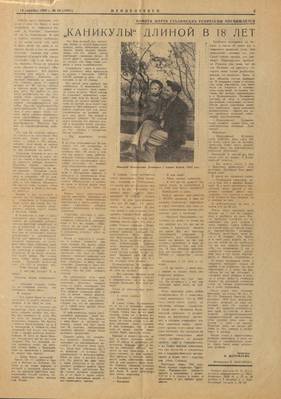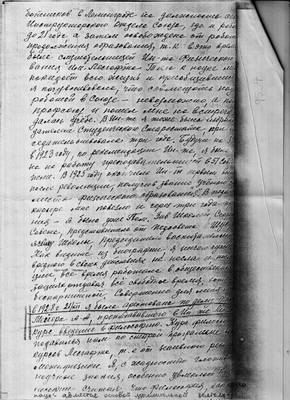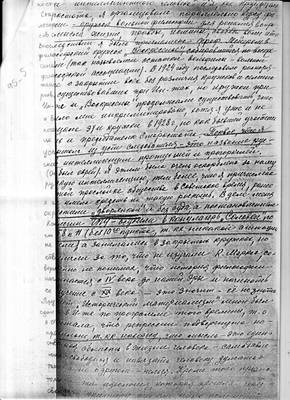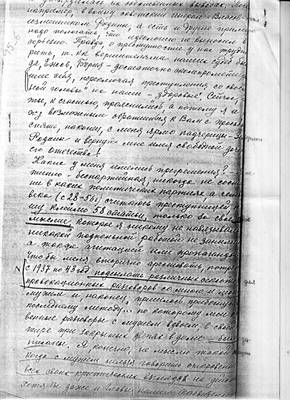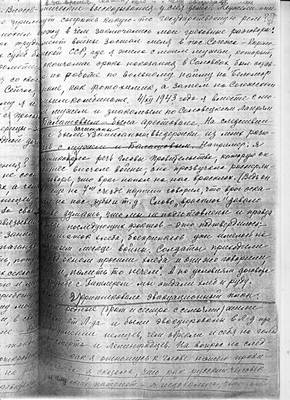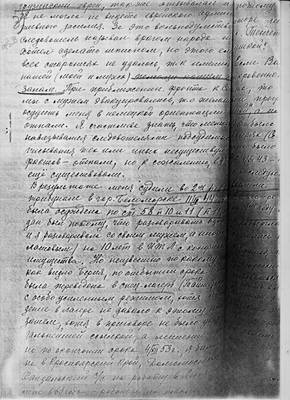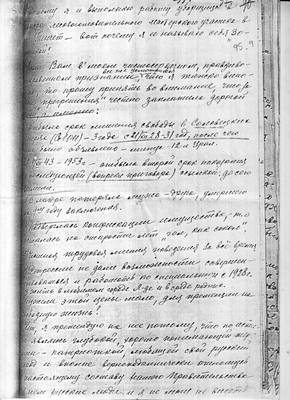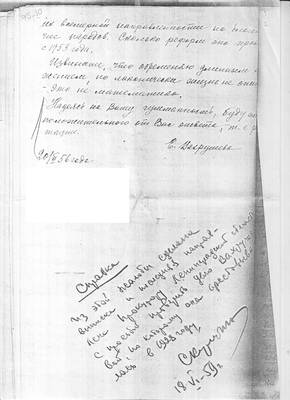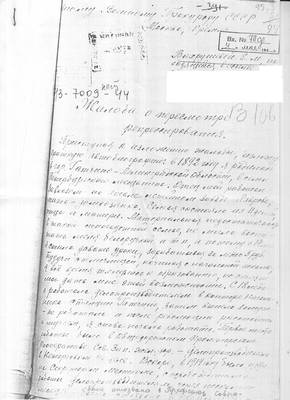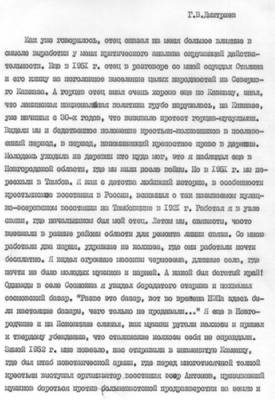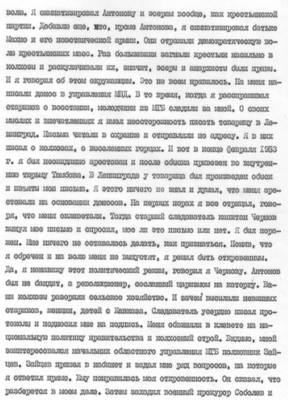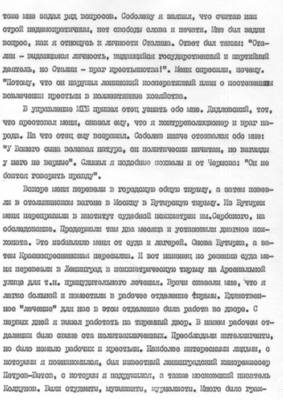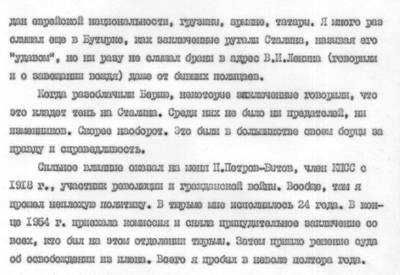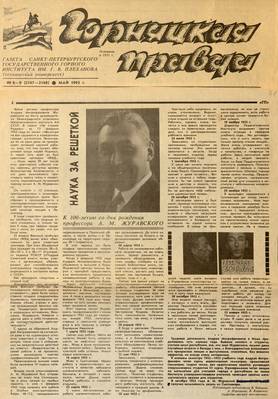Beria Lavrenty Pavlovich
Years of life: 1899-1953
Reproduction methods:
From April 1921, deputy head of the secret operational department of the Azerbaijan Cheka, from May of the same year - head of the secret operational unit, deputy chairman of the Azerbaijan Cheka, from November 1922 - head of the secret operational unit, deputy chairman of the Georgian Cheka. Since March 1926, deputy plenipotentiary representative of the OGPU in the Transcaucasian SSFSR, deputy chairman of the Transcaucasian GPU, since December of the same year - chairman of the GPU of the Georgian SSR. At the same time, from April 1927, People's Commissar of Internal Affairs of the Georgian SSR. Since April 1931 - Chairman of the Transcaucasian GPU. As the leader of Georgia and Transcaucasia, he was the main organizer of terror in Georgia and Transcaucasia. From August 1938 he became the first deputy people's commissar of internal affairs of the USSR, head of the Main Directorate of State Security, and from November - people's commissar of internal affairs of the USSR. On 12/29/1945 he was relieved of his post as People's Commissar, but on 03/18/1946 he became a member of the Politburo, that is, he was among the top leaders of the country. After the death of I.V. Stalin in June 1953, he was arrested on charges of espionage and conspiracy to seize power. Executed by the verdict of the Special Judicial Presence of the Supreme Court of the USSR in December 1953.
Documents (118)
Fund 02 (Б-1) / Inventory 1 / Case Фрид Валерий Семенович
1. Radio Liberty bulletin No. F-497 01 dated November 4, 1988, entitled “Where are my seventeen years?”, dedicated to youth “underground counter-revolutionary groups” of the mid-1940s.
5 листов, 5 изображений, ксерокопия





Beria Lavrenty Pavlovich,
Bubnova Elena Andreevna,
Volodin Sergey,
Gurvich Boris,
Gusev Vadim Sergeevich,
Dunsky Yuliy Teodorovich,
Ermakova Yu.A.,
Stalin Joseph Vissarionovich,
Sulimov Vladimir Maksimovich (erroneously - Daniilovich),
Tukhachevsky Mikhail Nikolaevich,
Frid Valery Semenovich,
Khomenko Alik,
Khomenko Anna Petrovna
1988
Fund 02 (Б-1) / Inventory 1 / Case Шимкевич Андрей
1. A short biographical sketch about Andrei Shimkevich.
3 листа, 3 изображения, ксерокопия машинописи



Fund 02 (Б-1) / Inventory 1 / Case Коваленко Тимофей Иванович
1. Letter from Kovalenko G.T. to the Leningrad “Memorial” with a biographical message about the repressed father - Kovalenko T.I. and mother Kovalenko N.N.
1 лист, 2 изображения, рукопись


Fund 02 (Б-1) / Inventory 1 / Case Котляров Александр Михайлович
1. Article by Latsis O. “Forced labor has never been effective” with comments by the GULAG designer Kotlyarov A.M., published in the newspaper Izvestia on January 30, 1993.
1 лист, 1 изображение, ксерокопия

Fund 02 (Б-1) / Inventory 1 / Case Ленгник Лев Рейнгольдович
1. Memoirs Lengnik L.R. about his arrest in 1952, the investigation, the sentence - 25 years in the labor camp, serving a sentence in the 17th department. Rechlag (Vorkuta), prisoner riot in August 1953, sent to Vladimir prison, new sentence, sent to the Ministry of Lag (Inta), reversal of the 1952 sentence, sent to Moscow for “retrial”, sentence of the Moscow City Court, sentence of the Supreme Court of the RSFSR and release under amnesty 09/21/1956.
5 листов, 5 изображений, машинописная копия





Fund 02 (Б-1) / Inventory 1 / Case Сеф Роман Семенович (Фаермарк Роальд Семёнович)
1. Article by Neverov A. "From the Gulag to Children's Poets", published in the newspaper "Trud" dated December 15, 1999, about the presentation of the new book by Sef R.S.
1 лист, 1 изображение, газетная/журнальная вырезка

Beria Lavrenty Pavlovich,
Vetrova Victoria,
Gusev Vladimir Ivanovich,
Daniel Yuly Markovich,
Zheleznikov Vladimir Karpovich,
Maznin Igor Alexandrovich,
Malysheva Anna Vitalievna,
Minkov Mark Anatolievich,
Mikhalkov Sergey Vladimirovich,
Mustafin Yamil Mustafievich,
Naydenov-Ivanov Yuri Valentinovich,
Neverov Alexander,
Polozova Tamara Dmitrievna,
Prikhodko Vladimir Alexandrovich,
Sergeev Leonid Anatolievich,
Sef Roman Semenovich (Fiermark Roald Semenovich),
Sinyavsky Andrey Donatovich (Abram Tertz),
Stepanova Marina,
Yakhontov Andrey Nikolaevich
1999
Fund 02 (Б-1) / Inventory 1 / Case Стриковский Иван Христофорович
1. Letter from Z.I. Strikovskaya dated 12/28/1989 to D.G. Yurasov with a completed questionnaire on the repressed father of I.Kh. Strikovsky; envelope (post 12/29/1989/01/09/1990).
2 листа, 4 изображения, рукопись


Fund 02 (Б-1) / Inventory 1 / Case Добряков Иван Сергеевич
1. Interview with Dobryakova I.S. with a brief autobiography and description of camp life, taken by journalist Sheiko V.I.
14 листа, 15 изображений, машинопись, рукопись





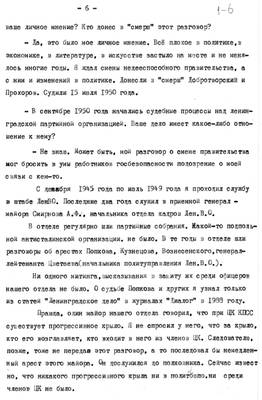









Fund 02 (Б-1) / Inventory 1 / Case Рютин Мартемьян Никитович
1. The article "The Honor of the Party", dedicated to Ryutin M.N., published in the journal "Knowledge is Power" No. 88/10.
7 листов, 1 изображение, ксерокопия, файл (присоединённый)

Abakumov Viktor Semenovich,
Beria Lavrenty Pavlovich,
Bukharin Nikolai Ivanovich,
Voroshilov Kliment Efremovich,
Vyshinsky Andrey Yanuarievich,
Galkin Pavel Andrianovich,
Galperin Yu.A.,
Zhdanov Andrey Alexandrovich,
Zatonsky Vladimir Petrovich,
Zinoviev (Radomyslsky) Grigory Evseevich,
Ivanov Mikhail Semenovich,
Kavraysky V.A.,
Kaganovich Lazar Moiseevich,
Kamenev Lev Borisovich,
Kayurov Vasily Nikolaevich,
Kirov Sergey Mironovich,
Krivitsky Walter Germanovich,
Kurz Wilhelm Adolfovich (Wilhelm Kurz),
Lenin (Ulyanov) Vladimir Ilyich,
Lominadze Vissarion Vissarionovich,
Malenkov Georgy Maximilianovich,
Mehlis Lev Zakharovich,
Mikoyan Anastas Ivanovich (Ovanesovich),
Molotov Vyacheslav Mikhailovich,
Molchanov Georgy Andreevich,
Narinsky Alexander Samoilovich,
Nusinov I.O.,
Ordzhonikidze Grigory Konstantinovich (Sergo),
Pyatnitsky Osip Aronovich ( Tarshis Iosif Orionovich ),
Rykov Alexey Ivanovich,
Ryutin Martemyan Nikitich,
Ryutina Evdokia Mikhailovna,
Ryutina Lyudmila Martemyanovna,
Slepkov Alexander Nikolaevich,
Smirnov Alexander Petrovich,
Stalin Joseph Vissarionovich,
Stan Ian Ernestovich,
Syrtsov Sergey Ivanovich,
Tolmachev Vladimir Nikolaevich,
Tomsky Mikhail Pavlovich,
Trotsky Lev Davidovich,
Frinovsky Mikhail Petrovich,
Shatskin Lazar Abramovich,
Shkiryatov Matvey Fyodorovich,
Schmidt Vasily Vladimirovich,
Eismont Nikolay Borisovich (Boleslavovich),
Yagoda Genrikh Grigorievich,
Yaroslavsky Emelyan Mikhailovich
1988
Fund 06 / Inventory 1 / Case Дубовик Владимир Емельянович
1. Memoirs of Dubovik V.E.
The memoirs cover the author's life until 1951, when he, who spent more than 5 years in a camp in Kolyma and worked there on a freelance basis after his release, was allowed to go on vacation to Leningrad.
The beginning of the memoirs is a story about a search and arrest in 1938 in the dormitory of the Textile Institute, where the author studied. The offer of the escort to betray the message to the author's sister about his arrest, which he subsequently did. After the words of the enkavedeshnik that you don’t need to take anything with you, the intervention of the janitor-witness, who named the things that you can take, including a blanket, for which the author was later very grateful to him.
The cell in the Big House with an area of one square. meter, where it was possible to squat alternately with another prisoner. A humiliating examination of the prisoners stripped naked. Again the same cell, where already three people are standing, huddled together.
Transfer to a common cell, where instead of the prescribed 13 people, 107 were arrested. Because of the stuffiness and crowding, people in the same underwear. Movement in a circle two people in a row. A brief description of the inhabitants of the chamber, many of whom have held prominent social positions in the recent past. Filling the daytime with conversations, memories distracting from waiting for night calls for interrogation. Provision of beds (there are seven in total) to prisoners who were beaten during interrogations or suffered “big racks” (standing for 20 days [is it? - ed.]). The screams of the tortured during night interrogations.
Advice to the author of cellmates "weaker in spirit" to confess everything, as they will torment and make a cripple for life. Beating during the first night of interrogation. Demand to confess to counter-revolutionary activities. Further torture during the week. The accusation of espionage in favor of Poland, of transferring information to the Polish consul about the construction of submarines and the repair of ships at the Baltic Shipyard. Refusal to sign the charge. The threat of the investigator to send to "Shanghai". Horror of torture in "Shanghai", which the author heard about. Advice from comrades to sign the charge. The hope of the author that later he will be able to prove the absurdity of the accusation in court. Sending the author to Shanghai. His description. On the table is a bundle of wires for electric torture. The confession of the investigator that he knows about the innocence of the prisoner, but "so it is necessary for the Soviet government." Signature of the author under the indictment. Feeling broken.
Transfer to "Crosses", before that, a farewell speech to cellmates, with whom the author was connected by fraternal feelings. Description of the cell, where there are three beds for 16 people. Night torment from a huge number of bedbugs. Friendly relations with the architect N.E. Lansere, who was tortured during interrogations so that he would “give incriminating materials on the writer Alexei Tolstoy”, but did not achieve anything. Retellings by the author Lansere of Polish novels, lectures by Lansere on painting and architecture to the author. Conversations, peaceful disputes of prisoners, tapping with neighbors. Accusations against Yezhov, confidence that Stalin does not know about the enormity of what is happening. Wardens selling week-old newspapers at a very high price. Exposure of the informer, who reported that a hacksaw appeared in the cell and the headman (the author was) uses it if necessary. Unsuccessful search in the cell. Demands to transfer the informer (under the pretext that he allegedly committed theft) to another cell. On the refusal of the authorities, an ultimatum - they will go on a hunger strike. Fulfilling the prisoners' demand, but nagging the author for standing up on his bunk to look "at a small piece of the sky." Transferring him to a punishment cell for 10 days. Description of the punishment cell (stone bag). Once a day, a cup of water and a ration of bread.
The appearance of vain hopes for release in 1938 in connection with the removal of Yezhov.
In December (5 months after the arrest) a call to the investigator, who demanded to sign the author's previous testimony - his refusal. Threats from the side of the investigator, but still (after the removal of Yezhov) not physical coercion. Departure of the investigator who locked the author in a cold cell for the night. The cries of the author, demanding the head of the corps. Transfer by the chief to the cell. The last interrogation in the "Crosses" (already without bullying). The author's demands to show him his work. In the case, six students gave positive feedback, and not a single compromising one. Investigator's statement that the author will be given five years. Perplexity that punishment will follow without any trial. The thought that "someone at the top just went crazy."
The retelling of events is interrupted by information about the life preceding the arrest. The author was born in 1906 in Belarus in the family of a printing worker. The mention that the older brother died during the civil war, the middle one worked in the Cheka, was the commissar of the food detachment, died of typhus, three of the mother's brothers were also Chekists, and one of them died in 1937.
In connection with the establishment of the Polish-Soviet border in 1921, the village where the author lived ended up on Polish territory. The loss of the Soviet pension by the father, because of which the family lived from hand to mouth. The author's service in the Polish army, the return field work in France in coal mines, as the family was in poverty. Petition within two years for the possibility of returning to the USSR, obtaining citizenship. Before leaving France, a visit to the cinema where the communists gathered, which caused an enthusiastic feeling of confidence that "communism is what humanity needs."
After arriving in St. Petersburg, he worked as an apprentice turner at the Baltic Plant, a workers' faculty, studied at the Textile Institute, which was interrupted due to arrest.
In July 1939, the sentence was 5 years in labor camps in Kolyma. Transit prison. Date with wife and mother.
Train. Description of the wagon. Poor food. Letters-triangles, thrown into the hatch in the middle of the car (the letters have reached!). Author's dysentery. Sanitary checkpoint in Omsk, where the author was carried on a stretcher.
Transit camp "Second River" near Vladivostok. Appointment of the author as headman. The main contingent is "educated and intelligent people." A month later, the ship "Dalstroy", heading to the bay of Nagaevo. There are about 5,000 people on board, unloaded from barges. Appointment of the author as headman.
Magadan. Brief description of the city. Sending arrived prisoners to gold and tin mines. The work of the author in the brigade involved in maintaining the Tenkinskaya highway in a passable state. His appointment as foreman. Exhausting work. After three days of work without a break, the brigade refused to continue working. The author was punished as a foreman by a punishment cell, in which, like on the street, it was 40 degrees, where he spent three days and from where he was taken out on a stretcher.
Digression in the narrative with a description of the Kolyma region and the life of prisoners there. A few words about the chiefs of Dalstroy: about Berzin, under whom the life of prisoners improved somewhat until 1937, when he was summoned to Moscow (E.P. Berzin was shot in 1938 - ed.); about Nikishov, who had the nickname Ivan the Terrible because of the ferocity of his character; about the head of USVITL Garanin, on whose conscience there were many hundreds of thousands of victims. A story about what "garaninism" is - those who did not fulfill the norm were taken to Serpantinka and shot. Closing of the Tenkinskaya highway due to snow drifts. The work of prisoners to clear the road. Refusal of the criminal to collect firewood to kindle the stove, for which the author, who had suffered from criminals during his imprisonment, struck him a strong blow in the face. After the widespread rumor that the foreman was a “beast”, he was appointed head of the road clearing section, where there were mostly criminals.
Sending the author to build a bridge across the Arman River. Appointment of his link in the caisson work. Recognition by the authorities of rationalization in the work of caisson workers, which in fact was the result of their oversight. Rewarding a kilogram of flour for each of the members of the link. Appointment of the author as a senior for caisson work.
A week after the start of the war, the author and several other people were sent without explanation to another camp, where there was a cruel regime, many watchtowers with guards, where people were shot at without warning. In August, the arrival of a commission that gathered Poles, of whom there were many in this camp, into Anders' army.
The transfer on foot of the remaining prisoners, among whom was the author, to the most terrible of those where he visited, the camp. Two months later, out of two hundred people, one hundred remained - the rest died of starvation.
Escape from the camp of the author, who accidentally found out from the conversation of the Vokhrovites that a major of the NKVD had come on a business trip with the task of recruiting machine operators among the prisoners. Persecution of the author, running through the taiga, by a Vokhrovets.
By order of the major, sending the author to the central car repair shops. Turner work. The transfer of the author to a barracks where privileged prisoners lived and where conditions were better than in other barracks. Thanks to fate for having the opportunity to communicate with educated people.
Multiple cases of poisoning of prisoners with American transformer oil, on which they toasted bread. The decision of the authorities to organize health centers, because, firstly, a huge number of people were dying, but it was necessary to save labor for gold mining, and secondly, American food began to flow into the camp, partially unloaded in the port of Nagaevo.
Meeting with Deputy People's Commissar of Internal Affairs Zavenyagin, who shook the author's hand and to whom he turned to ask why he ended up in the camp. According to the author, Zavenyagin's fate was not much better than his own.
In 1943, the end of the term of imprisonment, but only criminals were released.
The arrival of the women's stages, consisting of girls who fled from the factories to their village because of the terrible living conditions in the barracks and hunger, and women who gathered spikelets in the fields after harvesting.
At the end of the term, freelance work at the Sopronensky plant, first as a technologist, then as a shop manager. The arrival of his wife and daughter. The work of his wife as an engineer at the same plant.
The author's sympathy for former prisoners of war who replenished the camps after the war. A story about the fate of such a prisoner of war who worked at the same factory as the author. A camp in Germany for refusing to work for the Germans, an escape, after his capture, a penal camp, again an escape, captured by the Gestapo, after the end of the war in the American zone, an offer from the Americans to stay with them, which he refuses, as he is in a hurry home, after returning camp in Kolyma.
Moving to Magadan, work as head of production. Acquaintance with Ginzburg E.S., the author of The Steep Route, her husband Walter A.Ya., their son Vasily Aksenov, who studied in the last grade at the same school with the author’s daughter.
In 1951, filing an application for leave "on the mainland". Refusal, as the author is a former prisoner. Sending the family on vacation, filing an application with the head of the KGB Dalstroy with a request to sort it out. Call to the Magadan Big House. Three hours of interrogation, after which the author was released. Two months later, another call to the Big House and permission to leave.
The annotation was compiled by Zhidkova T.G.
The beginning of the memoirs is a story about a search and arrest in 1938 in the dormitory of the Textile Institute, where the author studied. The offer of the escort to betray the message to the author's sister about his arrest, which he subsequently did. After the words of the enkavedeshnik that you don’t need to take anything with you, the intervention of the janitor-witness, who named the things that you can take, including a blanket, for which the author was later very grateful to him.
The cell in the Big House with an area of one square. meter, where it was possible to squat alternately with another prisoner. A humiliating examination of the prisoners stripped naked. Again the same cell, where already three people are standing, huddled together.
Transfer to a common cell, where instead of the prescribed 13 people, 107 were arrested. Because of the stuffiness and crowding, people in the same underwear. Movement in a circle two people in a row. A brief description of the inhabitants of the chamber, many of whom have held prominent social positions in the recent past. Filling the daytime with conversations, memories distracting from waiting for night calls for interrogation. Provision of beds (there are seven in total) to prisoners who were beaten during interrogations or suffered “big racks” (standing for 20 days [is it? - ed.]). The screams of the tortured during night interrogations.
Advice to the author of cellmates "weaker in spirit" to confess everything, as they will torment and make a cripple for life. Beating during the first night of interrogation. Demand to confess to counter-revolutionary activities. Further torture during the week. The accusation of espionage in favor of Poland, of transferring information to the Polish consul about the construction of submarines and the repair of ships at the Baltic Shipyard. Refusal to sign the charge. The threat of the investigator to send to "Shanghai". Horror of torture in "Shanghai", which the author heard about. Advice from comrades to sign the charge. The hope of the author that later he will be able to prove the absurdity of the accusation in court. Sending the author to Shanghai. His description. On the table is a bundle of wires for electric torture. The confession of the investigator that he knows about the innocence of the prisoner, but "so it is necessary for the Soviet government." Signature of the author under the indictment. Feeling broken.
Transfer to "Crosses", before that, a farewell speech to cellmates, with whom the author was connected by fraternal feelings. Description of the cell, where there are three beds for 16 people. Night torment from a huge number of bedbugs. Friendly relations with the architect N.E. Lansere, who was tortured during interrogations so that he would “give incriminating materials on the writer Alexei Tolstoy”, but did not achieve anything. Retellings by the author Lansere of Polish novels, lectures by Lansere on painting and architecture to the author. Conversations, peaceful disputes of prisoners, tapping with neighbors. Accusations against Yezhov, confidence that Stalin does not know about the enormity of what is happening. Wardens selling week-old newspapers at a very high price. Exposure of the informer, who reported that a hacksaw appeared in the cell and the headman (the author was) uses it if necessary. Unsuccessful search in the cell. Demands to transfer the informer (under the pretext that he allegedly committed theft) to another cell. On the refusal of the authorities, an ultimatum - they will go on a hunger strike. Fulfilling the prisoners' demand, but nagging the author for standing up on his bunk to look "at a small piece of the sky." Transferring him to a punishment cell for 10 days. Description of the punishment cell (stone bag). Once a day, a cup of water and a ration of bread.
The appearance of vain hopes for release in 1938 in connection with the removal of Yezhov.
In December (5 months after the arrest) a call to the investigator, who demanded to sign the author's previous testimony - his refusal. Threats from the side of the investigator, but still (after the removal of Yezhov) not physical coercion. Departure of the investigator who locked the author in a cold cell for the night. The cries of the author, demanding the head of the corps. Transfer by the chief to the cell. The last interrogation in the "Crosses" (already without bullying). The author's demands to show him his work. In the case, six students gave positive feedback, and not a single compromising one. Investigator's statement that the author will be given five years. Perplexity that punishment will follow without any trial. The thought that "someone at the top just went crazy."
The retelling of events is interrupted by information about the life preceding the arrest. The author was born in 1906 in Belarus in the family of a printing worker. The mention that the older brother died during the civil war, the middle one worked in the Cheka, was the commissar of the food detachment, died of typhus, three of the mother's brothers were also Chekists, and one of them died in 1937.
In connection with the establishment of the Polish-Soviet border in 1921, the village where the author lived ended up on Polish territory. The loss of the Soviet pension by the father, because of which the family lived from hand to mouth. The author's service in the Polish army, the return field work in France in coal mines, as the family was in poverty. Petition within two years for the possibility of returning to the USSR, obtaining citizenship. Before leaving France, a visit to the cinema where the communists gathered, which caused an enthusiastic feeling of confidence that "communism is what humanity needs."
After arriving in St. Petersburg, he worked as an apprentice turner at the Baltic Plant, a workers' faculty, studied at the Textile Institute, which was interrupted due to arrest.
In July 1939, the sentence was 5 years in labor camps in Kolyma. Transit prison. Date with wife and mother.
Train. Description of the wagon. Poor food. Letters-triangles, thrown into the hatch in the middle of the car (the letters have reached!). Author's dysentery. Sanitary checkpoint in Omsk, where the author was carried on a stretcher.
Transit camp "Second River" near Vladivostok. Appointment of the author as headman. The main contingent is "educated and intelligent people." A month later, the ship "Dalstroy", heading to the bay of Nagaevo. There are about 5,000 people on board, unloaded from barges. Appointment of the author as headman.
Magadan. Brief description of the city. Sending arrived prisoners to gold and tin mines. The work of the author in the brigade involved in maintaining the Tenkinskaya highway in a passable state. His appointment as foreman. Exhausting work. After three days of work without a break, the brigade refused to continue working. The author was punished as a foreman by a punishment cell, in which, like on the street, it was 40 degrees, where he spent three days and from where he was taken out on a stretcher.
Digression in the narrative with a description of the Kolyma region and the life of prisoners there. A few words about the chiefs of Dalstroy: about Berzin, under whom the life of prisoners improved somewhat until 1937, when he was summoned to Moscow (E.P. Berzin was shot in 1938 - ed.); about Nikishov, who had the nickname Ivan the Terrible because of the ferocity of his character; about the head of USVITL Garanin, on whose conscience there were many hundreds of thousands of victims. A story about what "garaninism" is - those who did not fulfill the norm were taken to Serpantinka and shot. Closing of the Tenkinskaya highway due to snow drifts. The work of prisoners to clear the road. Refusal of the criminal to collect firewood to kindle the stove, for which the author, who had suffered from criminals during his imprisonment, struck him a strong blow in the face. After the widespread rumor that the foreman was a “beast”, he was appointed head of the road clearing section, where there were mostly criminals.
Sending the author to build a bridge across the Arman River. Appointment of his link in the caisson work. Recognition by the authorities of rationalization in the work of caisson workers, which in fact was the result of their oversight. Rewarding a kilogram of flour for each of the members of the link. Appointment of the author as a senior for caisson work.
A week after the start of the war, the author and several other people were sent without explanation to another camp, where there was a cruel regime, many watchtowers with guards, where people were shot at without warning. In August, the arrival of a commission that gathered Poles, of whom there were many in this camp, into Anders' army.
The transfer on foot of the remaining prisoners, among whom was the author, to the most terrible of those where he visited, the camp. Two months later, out of two hundred people, one hundred remained - the rest died of starvation.
Escape from the camp of the author, who accidentally found out from the conversation of the Vokhrovites that a major of the NKVD had come on a business trip with the task of recruiting machine operators among the prisoners. Persecution of the author, running through the taiga, by a Vokhrovets.
By order of the major, sending the author to the central car repair shops. Turner work. The transfer of the author to a barracks where privileged prisoners lived and where conditions were better than in other barracks. Thanks to fate for having the opportunity to communicate with educated people.
Multiple cases of poisoning of prisoners with American transformer oil, on which they toasted bread. The decision of the authorities to organize health centers, because, firstly, a huge number of people were dying, but it was necessary to save labor for gold mining, and secondly, American food began to flow into the camp, partially unloaded in the port of Nagaevo.
Meeting with Deputy People's Commissar of Internal Affairs Zavenyagin, who shook the author's hand and to whom he turned to ask why he ended up in the camp. According to the author, Zavenyagin's fate was not much better than his own.
In 1943, the end of the term of imprisonment, but only criminals were released.
The arrival of the women's stages, consisting of girls who fled from the factories to their village because of the terrible living conditions in the barracks and hunger, and women who gathered spikelets in the fields after harvesting.
At the end of the term, freelance work at the Sopronensky plant, first as a technologist, then as a shop manager. The arrival of his wife and daughter. The work of his wife as an engineer at the same plant.
The author's sympathy for former prisoners of war who replenished the camps after the war. A story about the fate of such a prisoner of war who worked at the same factory as the author. A camp in Germany for refusing to work for the Germans, an escape, after his capture, a penal camp, again an escape, captured by the Gestapo, after the end of the war in the American zone, an offer from the Americans to stay with them, which he refuses, as he is in a hurry home, after returning camp in Kolyma.
Moving to Magadan, work as head of production. Acquaintance with Ginzburg E.S., the author of The Steep Route, her husband Walter A.Ya., their son Vasily Aksenov, who studied in the last grade at the same school with the author’s daughter.
In 1951, filing an application for leave "on the mainland". Refusal, as the author is a former prisoner. Sending the family on vacation, filing an application with the head of the KGB Dalstroy with a request to sort it out. Call to the Magadan Big House. Three hours of interrogation, after which the author was released. Two months later, another call to the Big House and permission to leave.
The annotation was compiled by Zhidkova T.G.
Memoirs of Dubovik V.E. , doc
68 листов, файл (присоединённый)
Arkhangelsky Yuri Dmitrievich,
Berzin Eduard Petrovich,
Beria Lavrenty Pavlovich,
Bernardelli,
Vyatkin Viktor Semenovich,
Garanin Stepan Nikolaevich,
Ginzburg Evgenia Semenovna (Solomonovna),
Grinko Grigory Fedorovich,
Dubovik Alexander Emelyanovich,
Dubovik Vasily Emelyanovich,
Dubovik Vladimir Emelyanovich,
Yezhov Nikolay Ivanovich,
Zavenyagin Avraamy Pavlovich,
Ionov,
Kalinin Mikhail Ivanovich,
Lansere Nikolay Evgenievich,
Molotov Vyacheslav Mikhailovich,
Nikishov Ivan Fyodorovich,
Oding August Janovich,
Rau,
Salman Robert Ilyich,
Stalin Joseph Vissarionovich,
Tolstoy Alexey Nikolaevich,
Ushakov,
Fradkin Isaac Naumovich,
Furin,
Chudnov Nikolai Nikolaevich
Fund 06 / Inventory 1 / Case Волошин Сильвестр Иванович
1. Memoirs of Voloshin S.I.
The author, who was arrested in Leningrad in January 1942, signed the charges against him and apparently escaped torture, does not say what exactly he was accused of.
At the beginning of his memoirs, he depicts the work of the repressive apparatus in Leningrad, which acquired especially menacing proportions after the death of S.M. Kirov. Author's letter to I.V. Stalin in 1937 with a question about the reasons for "the murder of the best communists, Bolsheviks, Komsomol members." A story about a Leningrad apartment on Nevsky Prospekt, where there was a hangout for the NKVD. About the famine of 1932, about the very difficult situation of his brothers, about his trip to Rostov in connection with this, where he saw "a terrible tragedy of the people." To save relatives, a device in Maikop in the laboratory of a flour mill. Description of terrible pictures in the besieged Leningrad. Shortly after the arrest, the sentence was 10 years in prison. Prison "Crosses". The cell, where there are about a hundred prisoners. According to the author, "there were 15-20 cannibals in it." (Was there really such a thing, or is there some exaggeration or even gloomy fantasy in some of the facts cited? Like, for example, the mention that the cells were not locked and the prisoners could walk freely along the corridors, and some went up to the dome and threw themselves down, committing suicide. - Ed.)
Memories are interrupted by 11 counts of accusation of I.V. Stalin for the crimes he committed.
In June 1942, a stage in the city of Solikamsk. Monstrous pictures of what is happening in the zone. Arrival at the camp "Berezovo", and then - to "Bulatovo". Of the 200 people who arrived in Solikamsk, about a third remained. In 1943, a stage in the Kushpeli camp [so to the text. – Ed.], according to the author “death camp”. Search and inspection of naked people in forty degrees of frost. Famine in the camp, where up to 100 people per day died. Bullying of prisoners by the head of the camp, Mikhalchenko, who was appointed head of the department of the Nyrob camps “for excellent work”. The appointment of new authorities to the Kushpeli camp, which took care of improving the lot of prisoners (the head of the camp - Makarenko, the head of the medical unit - Kogan). Transfer to the camp "SIM" [so the text - ed.], where, according to the author, 800 people died per month. Work 12 hours in the forest. The norm of stew is 25 grams for each cut cube of wood. Exhausted, the author cuts off his fingers on his left hand. Transfer to the Nyrob camps, which were run by the same Mikhalchenko. Description of the appalling situation of the prisoners. Mention that in the forest, outside the zone, those who ended up in the occupied territories during the war, including women and children, lived in the open air. A story about the head of the security guard of the detention center, who came to the detention center three times a day and shot one prisoner at a time. Transfer to camp "Vankino". Vlasov guards, distinguished by particular cruelty. Escape in 1946 of 18 former prisoners of war, who, after being caught, were hunted down by Vlasov dog breeders. Harassment with the support of the authorities by the thieves in law of the prisoners, who attacked their barracks at night and killed 36 people. In connection with this, the transfer of political prisoners, according to the author, up to 500 people, to the Novoe camp. Work as a baker. Six months later, the camp "Head". The stage to the camp "Glubokovskaya", because, while working in a construction team to repair the office of the secretary of the party committee, he tore off the portrait of L.P. Beria from the wall. and threw it on the floor. Prisoners are mostly Lithuanians, Latvians, Estonians. A visit to the camp by the head of Mikhalchenko, who, remembering Voloshin, sends him to the isolation ward of the Vankino camp, while the guard drives the author there, barefoot in underwear, through the snow for six kilometers. Stage on the "New" thanks to the director of the Stalingrad plant released from prison.
Liberation after Stalin's death. Issuance of a “wolf passport” in Leningrad, sending 101 km with threats of re-arrest when trying to return to the city. Inability to get a job. Appearance at the NKVD in the city of Bataysk, Rostov Region, with a request to be sent back to the camp. Registration in Bataysk and work there at the Krasny Molot plant. A call to the "Big House" in Leningrad, a certificate of rehabilitation. Return in 1955 to Leningrad and work for 30 years [sic in the text - ed.]. Shop manager at the Gosmetr plant.
At the end of the memoirs, there is a report of data received, according to the author, from the head of personnel Nyroblag: in 1949, there were 525 camp administrations under the Gulag, 25 thousand camps, 25 million prisoners.
The appendix is an appeal to the deputies of the Leningrad City Council with a call to create a memorial museum “in the gray house” on Liteiny Prospekt to remind of the crimes committed and to “cleanse the conscience” of those responsible for them.
The annotation was compiled by Zhidkova T.G.
At the beginning of his memoirs, he depicts the work of the repressive apparatus in Leningrad, which acquired especially menacing proportions after the death of S.M. Kirov. Author's letter to I.V. Stalin in 1937 with a question about the reasons for "the murder of the best communists, Bolsheviks, Komsomol members." A story about a Leningrad apartment on Nevsky Prospekt, where there was a hangout for the NKVD. About the famine of 1932, about the very difficult situation of his brothers, about his trip to Rostov in connection with this, where he saw "a terrible tragedy of the people." To save relatives, a device in Maikop in the laboratory of a flour mill. Description of terrible pictures in the besieged Leningrad. Shortly after the arrest, the sentence was 10 years in prison. Prison "Crosses". The cell, where there are about a hundred prisoners. According to the author, "there were 15-20 cannibals in it." (Was there really such a thing, or is there some exaggeration or even gloomy fantasy in some of the facts cited? Like, for example, the mention that the cells were not locked and the prisoners could walk freely along the corridors, and some went up to the dome and threw themselves down, committing suicide. - Ed.)
Memories are interrupted by 11 counts of accusation of I.V. Stalin for the crimes he committed.
In June 1942, a stage in the city of Solikamsk. Monstrous pictures of what is happening in the zone. Arrival at the camp "Berezovo", and then - to "Bulatovo". Of the 200 people who arrived in Solikamsk, about a third remained. In 1943, a stage in the Kushpeli camp [so to the text. – Ed.], according to the author “death camp”. Search and inspection of naked people in forty degrees of frost. Famine in the camp, where up to 100 people per day died. Bullying of prisoners by the head of the camp, Mikhalchenko, who was appointed head of the department of the Nyrob camps “for excellent work”. The appointment of new authorities to the Kushpeli camp, which took care of improving the lot of prisoners (the head of the camp - Makarenko, the head of the medical unit - Kogan). Transfer to the camp "SIM" [so the text - ed.], where, according to the author, 800 people died per month. Work 12 hours in the forest. The norm of stew is 25 grams for each cut cube of wood. Exhausted, the author cuts off his fingers on his left hand. Transfer to the Nyrob camps, which were run by the same Mikhalchenko. Description of the appalling situation of the prisoners. Mention that in the forest, outside the zone, those who ended up in the occupied territories during the war, including women and children, lived in the open air. A story about the head of the security guard of the detention center, who came to the detention center three times a day and shot one prisoner at a time. Transfer to camp "Vankino". Vlasov guards, distinguished by particular cruelty. Escape in 1946 of 18 former prisoners of war, who, after being caught, were hunted down by Vlasov dog breeders. Harassment with the support of the authorities by the thieves in law of the prisoners, who attacked their barracks at night and killed 36 people. In connection with this, the transfer of political prisoners, according to the author, up to 500 people, to the Novoe camp. Work as a baker. Six months later, the camp "Head". The stage to the camp "Glubokovskaya", because, while working in a construction team to repair the office of the secretary of the party committee, he tore off the portrait of L.P. Beria from the wall. and threw it on the floor. Prisoners are mostly Lithuanians, Latvians, Estonians. A visit to the camp by the head of Mikhalchenko, who, remembering Voloshin, sends him to the isolation ward of the Vankino camp, while the guard drives the author there, barefoot in underwear, through the snow for six kilometers. Stage on the "New" thanks to the director of the Stalingrad plant released from prison.
Liberation after Stalin's death. Issuance of a “wolf passport” in Leningrad, sending 101 km with threats of re-arrest when trying to return to the city. Inability to get a job. Appearance at the NKVD in the city of Bataysk, Rostov Region, with a request to be sent back to the camp. Registration in Bataysk and work there at the Krasny Molot plant. A call to the "Big House" in Leningrad, a certificate of rehabilitation. Return in 1955 to Leningrad and work for 30 years [sic in the text - ed.]. Shop manager at the Gosmetr plant.
At the end of the memoirs, there is a report of data received, according to the author, from the head of personnel Nyroblag: in 1949, there were 525 camp administrations under the Gulag, 25 thousand camps, 25 million prisoners.
The appendix is an appeal to the deputies of the Leningrad City Council with a call to create a memorial museum “in the gray house” on Liteiny Prospekt to remind of the crimes committed and to “cleanse the conscience” of those responsible for them.
The annotation was compiled by Zhidkova T.G.
Memoirs of Voloshin S.I. , rtf
файл (присоединённый)
Belikh,
Berezutsky,
Beria Lavrenty Pavlovich,
Buzulukov Ilya,
Voloshin Sylvester Ivanovich,
Voloshina Varvara Dmitrievna,
Ivanchenko Ivan,
Karpov,
Kirov Sergey Mironovich,
Koop Alexander Feliksovich,
Makarenko,
Mikhalchenko Timofey,
Sapozhnikov,
Stalin Joseph Vissarionovich,
Tolstoukhov Alexander Petrovich,
Tyagoev,
Khabarov
Fund 02 (Б-1) / Inventory 1 / Case Михоэлс Соломон Михайлович
1. B. Frezinsky's article "Murder of Mikhoels" in the newspaper "Nevskoe Vremya" dated 01/13/1998.
1 лист, 1 изображение, газетная/журнальная вырезка

Abakumov Viktor Semenovich,
Alliluyeva Svetlana Iosifovna,
Beria Lavrenty Pavlovich,
Borshchagovsky Alexander Mikhailovich,
Vaksberg Arkady Iosifovich,
Golubov-Potapov Vladimir Ilyich,
Zbarsky Boris Ilyich,
Markish Perets Davidovich,
Mikhoels Solomon Mikhailovich,
Pototskaya Anastasia Pavlovna,
Stalin Joseph Vissarionovich,
Tyshler Alexander Grigorievich,
Fefer Isaac (Itsik) Solomonovich,
Sheinin Lev Romanovich,
Erenburg Ilya Grigorievich
1998
Fund 02 (Б-1) / Inventory 1 / Case Щапов Дмитрий Иннокентьевич
1. Article “Russian “guest” of Admiral Canaris, or the man who saved Leningrad”, dedicated to D.I. Shchapov. and published in the newspaper “New Russian Word” dated November 5, 1993.
2 листа, 2 изображения, ксерокопия


Abakumov Viktor Semenovich,
Beregov,
Beria Lavrenty Pavlovich,
Govorov Leonid Alexandrovich,
Gridinsky,
Dobryansky Andrey M.,
Ivanov,
Canaris Wilhelm Franz,
Korolev Sergei Pavlovich,
Kuznetsov,
Laanep Anna,
Molotov Vyacheslav Mikhailovich,
Rokossovsky Konstantin Konstantinovich (Ksaverevich),
Cellarius (Keller) Alexander,
Schweitzer Max,
Shchapov Dmitry Innokentievich
1993
Fund 03 (Б-2) / Inventory 1 / Case Кривицкий Дмитрий Яковлевич
1. Article by employees of the State Archive of the Russian Federation Kozlova V., Nokhotovich D., Shulzhenko T. “Behind the scenes of the great celebrations (November 7, 1956)” in the newspaper “Izvestia” No. 244 dated November 7, 1992 about anti-Soviet actions in the USSR on November 7, 1956, incl. h. and about the case of Krivitsky D.Ya.
1 лист, 1 изображение, ксерокопия

Abakumov Viktor Semenovich,
Aksenenko Vladimir Stepanovich,
Beria Lavrenty Pavlovich,
Gulyev,
Dudorov N.P.,
Kalistov,
Kobulov Bogdan Zakharovich,
Kozlov Vladimir Alexandrovich,
Krasilnikov Mikhail Mikhailovich,
Krivitsky Dmitry Yakovlevich,
Lazaryants Vitaly Emmanuilovich,
Lauva Karl Ivanovich,
Martynenko,
Maslov,
Nokhotovich D.,
Ovechkin Valentin Vladimirovich,
Osipov Sergey Ivanovich,
Prokofiev Alexander Andreevich,
Pronin,
Salin Dmitry Evgrafovich,
Stalin Joseph Vissarionovich,
Uzunov,
Khrushchev Nikita Sergeevich,
Chuprov,
Shulzhenko T.
1992
Fund 02 (Б-1) / Inventory 1 / Case Вознесенский Николай Алексеевич
1. Article by Sidorovsky L.I. "Voznesensky. A family of fiery Bolsheviks - through the eyes of relatives, friends, lines of memories ”in the newspaper“ Smena ” No. 32 (18882) for 02/09/1988.
1 лист, 1 изображение, газетная/журнальная вырезка

Abakumov Viktor Semenovich,
Andrianov Vasily Mikhailovich,
Beria Lavrenty Pavlovich,
Bulganin Nikolay Alexandrovich,
Vizner Vladimir Fedorovich,
Vizner Evgeniy Fedorovich,
Vizner Fedor Frantsevich,
Voznesenskaya Valentina Alekseevna,
Voznesenskaya (Glagoleva) Lyubov Georgievna,
Voznesenskaya Irina Alexandrovna,
Voznesenskaya (Litvinova) Maria Andreevna,
Voznesenskaya Maya Nikolaevna,
Voznesenskaya Maria Alekseevna,
Voznesenskaya Natalia Nikolaevna,
Voznesensky Nikolay Alekseevich,
Voznesensky Alexander Alekseevich,
Voznesensky Alexey Dmitrievich,
Voznesensky Lev Alexandrovich,
Voznesensky Ernest Alexandrovich,
Dzerzhinsky Felix Edmundovich,
Evseev Evgeniy Alexandrovich,
Zhdanov Andrey Alexandrovich,
Kolotov Vasily Vasilievich,
Kuibyshev Valerian Vladimirovich,
Lunacharsky Anatoly Vasilievich,
Malenkov Georgy Maximilianovich,
Rudzutak Yan Ernestovich,
Sadovin Vasily Vasilievich,
Sidorovsky Lev Isaevich,
Stalin Joseph Vissarionovich,
Tyulpanov Sergey Ivanovich,
Eikhenbaum Boris Mikhailovich
1988
Fund 03 (Б-2) / Inventory 1 / Case Чернов Иван Александрович
1. Article by Sidorovsky L. “Chernov “does not remember” ...” in the newspaper “Smena” No. 286 (19736) dated December 12, 1990 about a meeting with the former head of the MGB secretariat I.A. Chernov.
1 лист, 1 изображение, газетная/журнальная вырезка

Abakumov Viktor Semenovich,
Berzin Yan Karlovich,
Beria Lavrenty Pavlovich,
Broverman Yakov Mikhailovich,
Voznesensky Nikolay Alekseevich,
Goglidze Sergey Arsenievich,
Gromov,
Yezhov Nikolay Ivanovich,
Zakrzhevskaya Taisiya Vladimirovna,
Zeydin Evlampy Lavrovich,
Sorge Richard (German: Richard Sorge),
Kapustin Yakov Fyodorovich,
Kobulov Bogdan Zakharovich,
Komarov Vladimir Ivanovich,
Kuznetsov Alexey Alexandrovich,
Kulchitsky,
Lazutin Petr Georgievich,
Leonov Alexander Georgievich,
Likhachev Mikhail Timofeevich,
Malenkov Georgy Maximilianovich,
Manevich Lev Efimovich (Izrailevich),
Mao Zedong,
Merkulov Vsevolod Nikolaevich,
Mikheev Philip Egorovich,
Pavlov Dmitry Grigorievich,
Popkov Petr Sergeevich,
Putintsev Arseny Vladimirovich,
Rodionov Mikhail Ivanovich,
Rudenko Roman Andreevich,
Ryumin Mikhail Dmitrievich,
Sidorovsky Lev Isaevich,
Stalin Joseph Vissarionovich,
Turko Joseph Mikhailovich,
Uritsky Semyon Petrovich,
Chernov Ivan Alexandrovich,
Sandor Rado,
Shvartsman Lev Leonidovich
1990
Fund 03 (Б-2) / Inventory 1 / Case Антонов-Овсеенко Антон Владимирович
1. Article by Vishnevskaya Yu. “The arrest of Anton Antonov-Ovseenko: another sign of the new cult of Stalin,” written on January 17, 1985 for Radio Liberty.
3 листа, 3 изображения, ксерокопия



Fund 06 / Inventory 1 / Case Арцимович Вера Андреевна
1. Memoirs Artsimovich V.A. about Lebedev-Schmidthof Vladimir Georgievich, written in 1999 (66 pages, attached file).
Автор – бывшая киноактриса, сестра выдающегося советского физика Льва Андреевич Арцимовича, коллеги и друга И.В. Курчатова, основателя и первого директора Института атомной энергетики, теща Булата Окуджавы.
Воспоминания охватывают период с 1937 года по 1944, время совместной жизни с мужем, В.Г.Лебедевым-Шмидтгофом, известным советским режиссером, создателем фильма «Концерт Бетховена», имевшего огромный успех не только в СССР, но и за его пределами (премия на Всемирной выставке в Париже), автором песни «Эх, хорошо в стране Советской жить» на музыку Дунаевского.
1937 год – Минск, знакомство и совместная работа (автор – помощник режиссера) над фильмом «Форпост великой родины».
Неожиданное предложение Шмидтгофа выйти за него замуж. Растерянность автора, так как режиссер был старше на 14 лет, и к тому же очень знаменит. Ее согласие. Счастливая семейная жизнь. Рассказы мужа по просьбе автора о своей прошлой деятельности в кино, ее сожаление о том, что она не записывала эти рассказы, например о его работе в Большом Драматическом театре, куда он был приглашен одним из первых в качестве актера, об его участии в создании первого государственного «Театра революционной сатиры "Вольная комедия"» и т.д.
Их дальнейшая совместная работа в Белоруссии над фильмами, в которых автор то снималась как актриса, то была помощником режиссера. Возвращение Шмидтгофа вместе с автором в Ленинград, где жила его мать, в прошлом актриса театра «Балаганчик». Осложнения в семейной жизни по вине свекрови, обладавшей деспотическим характером.
Рассказ о многочисленных друзьях мужа, воспоминания Шмидтгофа о знакомстве с Маяковским, дружбе с Есениным, о его тяжелых переживаниях, связанных со смертью поэта.
1938 год. Арест Шмидтгофа. Обыск. Его обещания скоро вернуться, так как он ни в чем не виноват. Безрезультатные посещения автором тюрьмы на ул. Воинова с целью выяснения судьбы мужа, затем Большого дома на Литейном. Наконец сообщение о том, что муж как контрреволюционер осужден на 25 лет. Обморок свекрови при этом известии. Через месяц телефонный звонок – требование явиться в ГПУ. Грубый допрос. Желание следователей добиться подтверждения своей версии о том, что Шмидтгоф, имеющий немецкую фамилию, держал связь, будучи шпионом, с немецким послом. Объяснение автора, что мужу для съемок фильма «Форпост великой родины» нужна была соответствующая машина, похожая на машину посла, что он и обратился к послу с просьбой ненадолго воспользоваться ею. Удар разъяренного следователя по голове допрашиваемой с такой силой, что она «отлетела к стене». В заключении допроса требование подписать бумагу, что она обязуется молчать о том, как проходил допрос. Выполнение автором этого требования в течение тридцати лет. И даже через много лет после допроса при осмотре отоларинголога, который сказал, что у нее лопнула барабанная перепонка, она объяснила это болезнью в детстве.
Переезд в 1938 году в Минск, к матери. Рождение дочери. Через четыре дня после этого события визит сотрудников ГПУ с требованием немедленно вернуться в Ленинград, так как Минск – пограничный город, а ее муж арестован. Поездка с ребенком в Москву. Продолжение поисков мужа. Безрезультатное посещение секретариата Сталина. Чей-то совет добиться приема у Калинина. Вспыхнувшая надежда на то, что он поможет. Обман секретарши о цели своего обращения к Калинину, получение пропуска. Ласковое обращение Калинина к посетительнице. Расспросы Калинина о том, кто ее муж. Перечисление автором фильмов, упоминание песни «Эх, хорошо в стране Советской жить». Трогательная сцена – Калинин, вытирающий слезы просительницы и поглаживающий ее по голове. Обещание узнать о судьбе ее мужа и сообщить ей. Возвращение в Ленинград. Чувство одиночества, так как знакомые избегали встречаться с автором. Верность брата Льва Арцимовича, известного ученого, не побоявшегося
оказывать поддержку сестре. Визит человека от Калинина, который сказал автору, что она может передать мужу пять рублей в тюрьме на ул. Воинова.
Неожиданный гость (как оказалось, его выпустили умирать – у него на допросах были отбиты легкие), сокамерник Шмидтгофа, сообщивший о том, что его скоро выпустят. Странный телефонный разговор со следователем, который задал несколько вопросов, касающихся жизни автора и ее свекрови, и предупредившего, что отвечать нужно только «да» или «нет». Предположение автора, что муж слышал ее ответы.
Второй вызов для допроса уже к другому следователю. Просьба помочь следствию. Опять вопрос, касающийся фамилии мужа. Спокойная реакция на утверждение автора, что она ничего не знает. Странный вопрос о том, бывало ли, что муж, будучи пьяным, совершил поступок, о котором не помнил на следующее утро. Признание автора, что один раз так случилось. Просьба следователя остановиться на этом подробнее. И после рассказа благодарность за то, что она помогла следствию. Отсутствие в воспоминаниях автора каких-либо предположений по поводу этого странного вопроса.
Неожиданное возвращение из тюрьмы мужа в связи с пересмотром его дела, когда Наркомом внутренних дел вместо Ежова стал Берия. Разительная перемена в его внешности – страшно исхудал. Нежелание говорить об ужасах, которые он пережил в тюрьме. Рассказ друга мужа, что тот испытал в заключении: первые дни одиночная камера, избиения во время допросов, обливание упавшего от побоев холодной водой, опять избиения.
Переезд семьи в Киев для работы на Киевской киностудии. Сообщение по радио о начале войны. Эвакуация из Киева в Ашхабад. Бомбежка поезда немцами. Множество раненых. Воспоминания Шмидтгофа в поезде о пережитом в тюрьме, о враче, который оказался его знакомым по Дому кино и который спас ему жизнь.
Ашхабад. 1942 год. Рождение сына. Работа мужа над фильмом «Люди Красного креста», где автор играла главную роль. Смерть свекрови. Поездка мужа в Москву для сдачи фильма. Его неожиданная командировка в Свердловск. Заболевание маленькой дочери брюшным тифом. Трехнедельная поездка с больной девочкой и грудным сыном в Свердловск сначала на открытой платформе, прицепленной к поезду. Остановки в пути, отсутствие воды и еды. Помощь военврача, сопровождавшего поезд со штрафниками, – рис, кисель, пенициллин для больной девочки. Остановка на запасном пути в течение нескольких дней. Во время отсутствия автора (она бегала на станцию варить дочери кашу) исчезновение платформы с детьми. Отчаяние. Помощь незнакомого генерала, по приказу которого поезд с платформой был остановлен в пути якобы для поимки находившегося там шпиона.
Долгожданная встреча с мужем в Свердловске. Опять совместная работа на студии. Внезапная смерть мужа в 1944 году в возрасте 44 лет, так как его душевное и физическое состояние были ослаблены пребыванием в тюрьме. Конец воспоминаний – несколько слов об уже взрослых детях.
Аннотацию составила Жидкова Т.Г.
Воспоминания охватывают период с 1937 года по 1944, время совместной жизни с мужем, В.Г.Лебедевым-Шмидтгофом, известным советским режиссером, создателем фильма «Концерт Бетховена», имевшего огромный успех не только в СССР, но и за его пределами (премия на Всемирной выставке в Париже), автором песни «Эх, хорошо в стране Советской жить» на музыку Дунаевского.
1937 год – Минск, знакомство и совместная работа (автор – помощник режиссера) над фильмом «Форпост великой родины».
Неожиданное предложение Шмидтгофа выйти за него замуж. Растерянность автора, так как режиссер был старше на 14 лет, и к тому же очень знаменит. Ее согласие. Счастливая семейная жизнь. Рассказы мужа по просьбе автора о своей прошлой деятельности в кино, ее сожаление о том, что она не записывала эти рассказы, например о его работе в Большом Драматическом театре, куда он был приглашен одним из первых в качестве актера, об его участии в создании первого государственного «Театра революционной сатиры "Вольная комедия"» и т.д.
Их дальнейшая совместная работа в Белоруссии над фильмами, в которых автор то снималась как актриса, то была помощником режиссера. Возвращение Шмидтгофа вместе с автором в Ленинград, где жила его мать, в прошлом актриса театра «Балаганчик». Осложнения в семейной жизни по вине свекрови, обладавшей деспотическим характером.
Рассказ о многочисленных друзьях мужа, воспоминания Шмидтгофа о знакомстве с Маяковским, дружбе с Есениным, о его тяжелых переживаниях, связанных со смертью поэта.
1938 год. Арест Шмидтгофа. Обыск. Его обещания скоро вернуться, так как он ни в чем не виноват. Безрезультатные посещения автором тюрьмы на ул. Воинова с целью выяснения судьбы мужа, затем Большого дома на Литейном. Наконец сообщение о том, что муж как контрреволюционер осужден на 25 лет. Обморок свекрови при этом известии. Через месяц телефонный звонок – требование явиться в ГПУ. Грубый допрос. Желание следователей добиться подтверждения своей версии о том, что Шмидтгоф, имеющий немецкую фамилию, держал связь, будучи шпионом, с немецким послом. Объяснение автора, что мужу для съемок фильма «Форпост великой родины» нужна была соответствующая машина, похожая на машину посла, что он и обратился к послу с просьбой ненадолго воспользоваться ею. Удар разъяренного следователя по голове допрашиваемой с такой силой, что она «отлетела к стене». В заключении допроса требование подписать бумагу, что она обязуется молчать о том, как проходил допрос. Выполнение автором этого требования в течение тридцати лет. И даже через много лет после допроса при осмотре отоларинголога, который сказал, что у нее лопнула барабанная перепонка, она объяснила это болезнью в детстве.
Переезд в 1938 году в Минск, к матери. Рождение дочери. Через четыре дня после этого события визит сотрудников ГПУ с требованием немедленно вернуться в Ленинград, так как Минск – пограничный город, а ее муж арестован. Поездка с ребенком в Москву. Продолжение поисков мужа. Безрезультатное посещение секретариата Сталина. Чей-то совет добиться приема у Калинина. Вспыхнувшая надежда на то, что он поможет. Обман секретарши о цели своего обращения к Калинину, получение пропуска. Ласковое обращение Калинина к посетительнице. Расспросы Калинина о том, кто ее муж. Перечисление автором фильмов, упоминание песни «Эх, хорошо в стране Советской жить». Трогательная сцена – Калинин, вытирающий слезы просительницы и поглаживающий ее по голове. Обещание узнать о судьбе ее мужа и сообщить ей. Возвращение в Ленинград. Чувство одиночества, так как знакомые избегали встречаться с автором. Верность брата Льва Арцимовича, известного ученого, не побоявшегося
оказывать поддержку сестре. Визит человека от Калинина, который сказал автору, что она может передать мужу пять рублей в тюрьме на ул. Воинова.
Неожиданный гость (как оказалось, его выпустили умирать – у него на допросах были отбиты легкие), сокамерник Шмидтгофа, сообщивший о том, что его скоро выпустят. Странный телефонный разговор со следователем, который задал несколько вопросов, касающихся жизни автора и ее свекрови, и предупредившего, что отвечать нужно только «да» или «нет». Предположение автора, что муж слышал ее ответы.
Второй вызов для допроса уже к другому следователю. Просьба помочь следствию. Опять вопрос, касающийся фамилии мужа. Спокойная реакция на утверждение автора, что она ничего не знает. Странный вопрос о том, бывало ли, что муж, будучи пьяным, совершил поступок, о котором не помнил на следующее утро. Признание автора, что один раз так случилось. Просьба следователя остановиться на этом подробнее. И после рассказа благодарность за то, что она помогла следствию. Отсутствие в воспоминаниях автора каких-либо предположений по поводу этого странного вопроса.
Неожиданное возвращение из тюрьмы мужа в связи с пересмотром его дела, когда Наркомом внутренних дел вместо Ежова стал Берия. Разительная перемена в его внешности – страшно исхудал. Нежелание говорить об ужасах, которые он пережил в тюрьме. Рассказ друга мужа, что тот испытал в заключении: первые дни одиночная камера, избиения во время допросов, обливание упавшего от побоев холодной водой, опять избиения.
Переезд семьи в Киев для работы на Киевской киностудии. Сообщение по радио о начале войны. Эвакуация из Киева в Ашхабад. Бомбежка поезда немцами. Множество раненых. Воспоминания Шмидтгофа в поезде о пережитом в тюрьме, о враче, который оказался его знакомым по Дому кино и который спас ему жизнь.
Ашхабад. 1942 год. Рождение сына. Работа мужа над фильмом «Люди Красного креста», где автор играла главную роль. Смерть свекрови. Поездка мужа в Москву для сдачи фильма. Его неожиданная командировка в Свердловск. Заболевание маленькой дочери брюшным тифом. Трехнедельная поездка с больной девочкой и грудным сыном в Свердловск сначала на открытой платформе, прицепленной к поезду. Остановки в пути, отсутствие воды и еды. Помощь военврача, сопровождавшего поезд со штрафниками, – рис, кисель, пенициллин для больной девочки. Остановка на запасном пути в течение нескольких дней. Во время отсутствия автора (она бегала на станцию варить дочери кашу) исчезновение платформы с детьми. Отчаяние. Помощь незнакомого генерала, по приказу которого поезд с платформой был остановлен в пути якобы для поимки находившегося там шпиона.
Долгожданная встреча с мужем в Свердловске. Опять совместная работа на студии. Внезапная смерть мужа в 1944 году в возрасте 44 лет, так как его душевное и физическое состояние были ослаблены пребыванием в тюрьме. Конец воспоминаний – несколько слов об уже взрослых детях.
Аннотацию составила Жидкова Т.Г.
66 листов, файл (присоединённый)
Arabic,
Artsimovich Andrey Mikhailovich,
Artsimovich Vera Andreevna,
Artsimovich Lev Andreevich,
Beria Lavrenty Pavlovich,
Gavronsky Mikhail,
Gershuni Evgeniy Pavlovich,
Dunaevsky Isaac Osipovich,
Yesenin Sergey Alexandrovich,
Kalinin Mikhail Ivanovich,
Kirov Sergey Mironovich,
Kurovsky Yuri,
Lebedev-Schmidthof Vladimir Georgievich,
Sofya Ivanovna Perova-Schmidthof.,
Stalin Joseph Vissarionovich,
Flerova Maria Nikolaevna
1999
Fund 06 / Inventory 1 / Case Якшенков Александр Михайлович
1. Yakshenkov A.M. Memories. (attached file)
The memoirs cover the period from 1944 to the beginning of 1953, that is, from the day of arrest to release. The author is an officer recalled from the front to Moscow in September 1943 to graduate from the engineering faculty at the military academy. The beginning of the memories is reflections on the fate of those arrested and on the faith of those living in the wild in "holy law enforcement agencies."
Night arrest of the author. Humiliating “shmon” in the Lubyanka prison. Description of the box in which he sat alone for several days. Reflections on the reason for the arrest. A story about a Japanese man whom the author's family met while on vacation and whose behavior seemed suspicious. The decision to consult with the Special Department of the Academy on how to behave in the future. Proposal of the special officer to state everything in writing. And as a result - the arrest, which was preceded by a denunciation by comrades about the author's critical statements against the authorities and that he had been surrounded. Rough interrogation. The author's demand that they give another investigator. Indictment on suspicion of espionage. Transfer to the Lefortovo strict regime prison. Description of the prison. Living in solitary confinement for three months. Bullying investigator, beatings. The author's demand to invite the prosecutor. Reading by the prosecutor of the order, signed by Stalin, about what should be applied to the enemies of the people "all types of physical influence, up to execution."
The decision to kill the prosecutor. Thinking about the plan of murder and preparing for it. Everything breaks down because of the “brood hen” being placed in the cell. Escape plan and again failure.
Transfer after the end of the investigation to the Butyrka prison. Sentence - 10 years. Rumors about the upcoming stage. Transfer to the premises of the former prison church, where about three hundred prisoners gathered.
Krasnopresnenskaya transfer. Desperate courage of the captain-topographer in opposition to criminals. Terrible wagon life during the transfer to Vorkuta.
Life in the camp. Captain suicide. Work in the mine. Terror criminals. Illness, hospital. Transfer to paramedic. Common diseases of prisoners. Terrible hunger. Detailed description of work in the mines. Vorkuta frosts and snowstorms. Jaundice disease. month in the hospital. National composition of prisoners. drug addiction in the camp. Method of distribution of drugs. Separate groups of Bendera and Vlasov. Their rebuff to criminals. Philosophy lesson.
Arriving at the wife's camp as a result of a cunning plan. After her return to Moscow, the dissolution of the marriage with the author. His justification of his wife because of the suffering she endured: dismissal from work, deprivation of departmental space, confiscation of property.
Transfer of women from one camp to a special women's camp. Many tragedies in connection with this. Transfer from the medical unit to work in the mine in order to bring the release date closer.
Stage for hay harvesting in the area of the Pechora River. Life on a barge for six days. Description of the nature and life of the villagers - Komi. Haymaking.
Again work in the medical unit. Liberation. Waiting for the money due.
Prisoner friends collect money for the author's journey. Place of settlement - Donbass.
The memoirs are accompanied by poems by the author of different years - from 1946 to 1953.
The annotation was compiled by Zhidkova T.G.
Night arrest of the author. Humiliating “shmon” in the Lubyanka prison. Description of the box in which he sat alone for several days. Reflections on the reason for the arrest. A story about a Japanese man whom the author's family met while on vacation and whose behavior seemed suspicious. The decision to consult with the Special Department of the Academy on how to behave in the future. Proposal of the special officer to state everything in writing. And as a result - the arrest, which was preceded by a denunciation by comrades about the author's critical statements against the authorities and that he had been surrounded. Rough interrogation. The author's demand that they give another investigator. Indictment on suspicion of espionage. Transfer to the Lefortovo strict regime prison. Description of the prison. Living in solitary confinement for three months. Bullying investigator, beatings. The author's demand to invite the prosecutor. Reading by the prosecutor of the order, signed by Stalin, about what should be applied to the enemies of the people "all types of physical influence, up to execution."
The decision to kill the prosecutor. Thinking about the plan of murder and preparing for it. Everything breaks down because of the “brood hen” being placed in the cell. Escape plan and again failure.
Transfer after the end of the investigation to the Butyrka prison. Sentence - 10 years. Rumors about the upcoming stage. Transfer to the premises of the former prison church, where about three hundred prisoners gathered.
Krasnopresnenskaya transfer. Desperate courage of the captain-topographer in opposition to criminals. Terrible wagon life during the transfer to Vorkuta.
Life in the camp. Captain suicide. Work in the mine. Terror criminals. Illness, hospital. Transfer to paramedic. Common diseases of prisoners. Terrible hunger. Detailed description of work in the mines. Vorkuta frosts and snowstorms. Jaundice disease. month in the hospital. National composition of prisoners. drug addiction in the camp. Method of distribution of drugs. Separate groups of Bendera and Vlasov. Their rebuff to criminals. Philosophy lesson.
Arriving at the wife's camp as a result of a cunning plan. After her return to Moscow, the dissolution of the marriage with the author. His justification of his wife because of the suffering she endured: dismissal from work, deprivation of departmental space, confiscation of property.
Transfer of women from one camp to a special women's camp. Many tragedies in connection with this. Transfer from the medical unit to work in the mine in order to bring the release date closer.
Stage for hay harvesting in the area of the Pechora River. Life on a barge for six days. Description of the nature and life of the villagers - Komi. Haymaking.
Again work in the medical unit. Liberation. Waiting for the money due.
Prisoner friends collect money for the author's journey. Place of settlement - Donbass.
The memoirs are accompanied by poems by the author of different years - from 1946 to 1953.
The annotation was compiled by Zhidkova T.G.
86 листов, машинопись, файл (присоединённый)
* Jack,
* Evgenia Vasilievna,
* Maria Vakhtangovna,
* Matvey Vasilievich,
Beria Lavrenty Pavlovich,
Bogdanov Pavel Vasilievich,
Buzhdan,
Vinkus,
Gamarnik Yan Borisovich,
Gikalo,
Grechushkin N.I.,
Egorov Alexander Ilyich,
Zhdanova Nadezhda Mikhailovna,
Zinoviev (Radomyslsky) Grigory Evseevich,
Zorin,
Zosman,
Ivanov,
Kalitina Vera Ivanovna,
Kirov Sergey Mironovich,
Kono,
Korolev Sergey Pavlovich,
Lehiste,
Mazaev Pavel Fedorovich,
Maksimenko Anatoly,
Malakhov Fedor,
Masley Nikita,
Mishchenko Valentina Pavlovna,
Myagi,
Pechersky,
Rokossovsky Konstantin Konstantinovich (Ksaverevich),
Ryabov Yuri,
Sats T.P. (last name is not exact),
Sincus,
Smutak,
Snegus,
Solovyov,
Stalin Joseph Vissarionovich,
Statsyuk Slava,
Stepanov N.V.,
Taratuta Alexey,
Titov,
Toloknov Dmitry Ivanovich,
Tupolev Andrey Nikolaevich,
Tukhachevsky Mikhail Nikolaevich,
Uborevich Ieronim Petrovich,
Churkin Nikolai,
Steinberg,
Shurygin,
Yakir Iona Emmanuilovich,
Yakshenkov Alexander Mikhailovich
Fund 03 (Б-2) / Inventory 1 / Case Групповое дело организации «Смерть Берии» («Свободная Грузия»)
1. Article by Sidorovsky L. “Listen, you inquisitors!..” in the newspaper “Smena” No. 164, July 18, 1990. o Markman K.M.
1 лист, 1 изображение, газетная/журнальная вырезка

Ageev Grigory,
Alshibaya Durmishkhan Epifanovich,
Baluashvili Alexander Georgievich,
Bardhudaryan Todik,
Beria Lavrenty Pavlovich,
Vasilkovskaya Lyudmila Dmitrievna,
Vimberg Gorik,
Goncharov Viktor,
Grebnev Anatoly,
Grigoryan Seda,
Dumbadze Eteri,
Kiryanov,
Kreytan Georgy Vladimirovich,
Lipinsky Yuri,
Malania Gregory,
Marganiya Naur Valeryanovich,
Margvelashvili Gia,
Markman Kommunella (Ella) Moiseevna,
Markman Moisey Efimovich,
Markman Emilia Moiseevna,
Markman Yulia Moiseevna,
Markman-Radina Fanny Solomonovna,
Ordzhonikidze Willie,
Polyakov,
Prosvetov,
Reznikov Boris,
Sidorovsky Lev Isaevich,
Sokolovsky Jozef,
Sokolovsky Yuliy Yuzefovich,
Sofianidi Lev Khristoforovich,
Tazishvili Irakli Georgievich,
Tazishvili Teimuraz Iraklievich,
Firsov Andrey Nikolaevich,
Firsova (Prupis) Sofya Mikhailovna,
Tsybulevsky Alexander Semenovich,
Charelidze Ninel,
Shakhbazov Nikolay
1990
Fund 06 / Inventory 1 / Case Верженская Ядвига Иосифовна
1. Memoirs of Verzhenskaya Ya.I.
Verzhenskaya Yadviga Iosifovna.
Memories. B.m., b.g. Typescript. 104 p.
Memories (very emotional and sometimes chaotic) cover the entire life of the author. Born in 1902 in Kronstadt in a Polish family (maiden name Turchinovich). My father, a foreman at a weapons factory in Sestroretsk, was forced, after participating in revolutionary uprisings, to change his place of residence, hiding either in Petrozavodsk or in Finland. The family moved to Gelendzhik to live with his father, who worked at the Abrau-Dyurso winery. The funeral of the younger brother, who could not stand the eight-day trip with five transfers. Father's transfer to the Portland cement plant of the Franco-Russian company. Friendship of the author's family with the family of the chief engineer of the plant, a Frenchman.
At the age of 12, the priest consecrated the second name - Iren, given to the author by the engineer's family. Singing in the kliros at the request of the priest. Gymnasium life. Collection of donations by high school students for tuberculosis patients. Unusual cortege on the Novorossiysk highway. Meeting with the royal family, carrying a large amount of money.
The author's regret that the family did not take advantage of the Frenchman's offer to move to France, since his father loved Belarus very much. Moving to Vitebsk in 1915. Private gymnasium, "where only Jewish children studied": there were no free places for children of workers. Difficult life. Lack of food in a family with three children. City in 1917. Anarchists. Pogroms. Captured Austrians on the construction of the city (houses, lighting, sewers, a new platform, sidewalks, etc.). Departure of the Austrians from Vitebsk (secretly, at night). Arrival of the evacuation hospital. Closed schools, mobilization of older students to work in the hospital. Typhus epidemic. Participation of the author, in spite of everything, in theatrical productions.
In 1920, intensive studies at school in order to enter the university. Moving to Petrograd. Studying at the university - first at the Faculty of Social Sciences, later at the Medical Faculty, which will be very useful later in the camp. Hungry student life. Flood. The work of students to eliminate traces of destruction. Return to Vitebsk. Work as a legal adviser. Frequent business trips to Moscow, scenes of Moscow life. The impudent harassment of a stranger on the street, the intention to rush for help to Mayakovsky, who was not far away, who was the author's idol; the sudden appearance of a Vitebsk acquaintance who saved her from persecution. Mayakovsky greeting people standing on the sidewalk from the balcony.
Feeling like she's being watched. Rumors of missing people. Terrible stories about collectivization in Ukraine and Belarus. Fans. Memories of meeting her future husband, an officer of the military engineering troops, of a happy birthday celebration in 1926, of meeting the New Year in the theater.
Marriage. Trips with her husband around the country - to Chernihiv, where she learned to play the piano, to Tbilisi, where she entered the musical college at the conductor's department, which later helped to survive in the camp. A story about life in Tbilisi, about meeting Beria, who taught the author to play chess and called her "commissar", about how he made Verzhensky, a non-drinker, drunk. A new appointment of her husband to Kharkov, then to Moscow, to Chita, etc. An enthusiastic description of Lake Baikal. The promotion of her husband in rank - now he is a major general. Ussuri taiga. Admission to the Moscow Conservatory. A trip to her husband in Khabarovsk. A three-day boat trip along the Amur, a description of the Amur coast. The remark that the taiga is completely impassable, and therefore the convicts worked with the Komsomol members almost without guards on the construction of Komsomolsk. The next business trip of her husband is Lake Khanka, where the railway was being laid. The author's duty is to organize the leisure of women who have arrived with their husbands. Description of the difficulties faced by the husband's team. About venereal diseases of the local population, infected by Americans - buyers of goods. A trip to friends in Sovgavan. Landing in the village of Talama, where the Nanais lived, mistaking the author for a goddess and giving her an expensive gift - a cape made of sable skins. A story about life in the summer in the taiga near Khabarovsk, where the author visited her husband four times from Moscow, where she studied at the conservatory.
Sending a husband to an internship and at the same time being demoted is a danger signal that they did not understand. Disturbing rumors about secret pests. The sudden return from the sanatorium of the husband, who told about the disappearance of two or three people every night. Departure of the husband to Vladivostok. An alarming letter from him about some checks, about the disappearance of a brigadier general. Further, no letters, no money orders. Meeting in the metro with the wife of one of the headquarters officers, who defiantly announces the arrest of Verzhensky.
A story about the events in the life of her husband from 1914 until his arrest. Polish nobleman by origin. Mobilization in 1914 to the army from the Institute of Railway Engineers. In 1916, a business trip to Vladivostok. During the return in 1917, news of the revolution was shot by the Red officers, including Verzhensky, who, having come to his senses in a coal pit where the bodies of the executed were thrown, realizes that he is alive. Unsuccessful attempt to save the wounded. Return to the regiment, the decision of the officers to lead their regiment to the Reds, joining the regiment of Russian residents of Transcaucasia with the elderly and children. Hostile Armenians and Tatars throwing stones on the heads of people walking through the gorges from the rocks.
Budyonny's offer to Verzhensky to remain in his army. The decision to visit relatives in Drissa. Rejection of offers from the Germans and French to join them. A trip to Vitebsk, where the red railway brigades were formed. Direction to Moscow in VOSO (troops of military communications). Service in the railway troops.
The author's bewilderment, why could they arrest a husband devoted to his profession and country? Hope that the mistake will be corrected.
1938 Postcard calling the author to the Lubyanka. A chance meeting in the corridor with her husband's former colleague, who works in the authorities, who advises her to urgently leave Moscow with the child, because. "summer will be hot." Signature of the author in his office of a document stating that allegedly a search had been carried out in her house. Angina, who delayed the departure of the author. The sudden appearance of a relative of her husband (his brother's wife), worried about the arrest of her brother-in-law, because. her husband is the director of a car factory. Persistent request to go to the Lubyanka and find out the reason for the arrest.
As a result, the arrest of the author. The requirement to hand over valuables and give the address to whom to return them (the watch was indeed handed over to the brother). Description of a three-month stay in a cell. Anxious thoughts about my son. Looking ahead, the author reports the arrest of her husband's brother, accusing him of espionage, because. he was on a business trip in America and invited the Americans to his factory, about the death of his wife due to a heart attack after his arrest, that his execution was replaced by 20 years of hard labor, thanks to an acquaintance of an NKVD worker.
Sending to the stage. The destination is unknown, the term of imprisonment too. The verdict (without investigation and trial) will be announced later. Three days on the train. The note, written in lipstick and thrown from the train, was received by the author's sisters.
Camp in Akmolinsk - "ALZHIR" (Akmola camp for wives of traitors to the motherland). Description of the bar. Mention of women who went crazy with concern for the fate of an abandoned child. Meeting with an old friend, their decision to go to the hardest work in the hope of reducing the term, but twice the loss of consciousness by the author. Arrival at the camp of a large group of doctors, some of whom were familiar to the author. The total number of women is about one and a half thousand. Hard work "on the boil". Increasing the number of prisoners to five thousand. Many acquaintances, one of whom saw her arrested husband. The joy of this friend, who received the news that her children, who first ended up in different orphanages, united and received permission to write to their mother once a month. Brucellosis disease of a large number of prisoners. The transfer of the author for some time to work serving sick women, which made it possible to meet many interesting people, including opera singers. Work in the embroidery shop. An unexpected conversation with one of the head of the camp, who suggested that the author create a choir and write a letter home so that his relatives would send a tuning fork. Parcels and money from relatives who learned her address. The message that the author's son lives with them. Enthusiasm in the creation of the choir. Mention of an exhibition in Moscow of imprisoned embroiderers. The concert organized by the author was a great success. (In St. Petersburg, the Museum of the Revolution has a poem dedicated to her after the concert, a broken conductor's baton and a sample of her embroidery.)
Transfer in 1940 to the medical unit of the Solikamsk ITL. A visit to a barracks with criminals, which almost ended in the death of the author, because. she could be played at cards. The case of the female doctor, whom they lost and almost killed with an ax, but missed.
Offer to the medical staff in the summer of 1941. to accompany more than four hundred old people, mostly Jews and residents of Riga, goldsmiths and watchmakers, to the Krasnoyarsk Territory in order to commission them and let them go. (This was not done: they were taken to a remote camp.) A three-day hike from Solikamsk to Perm.
Camp at Reshetovka station. Work in the club, recording songs that women remembered, staging the opera Natalka-Poltavka. Tours of the camps. Many camp towers seen from the train window. The realization that camps are located all over Siberia, and therefore their imprisonment, is not someone's fault. Work as a physician at the women's camp. The morals of criminals. In 1943, 150 women with pellagra entered the camp. The hard work of caring for them, which helped these people to survive. End of term in 1946. Help from the head of the camp after liberation. A trip, despite the ban, to Leningrad, to the husband's sister, with whom the author's son lived. Unsuccessful attempts to get a job near Moscow. Departure with mother and son to the Krasnodar Territory. Work as a choir leader. Illness of the son, in connection with which a trip to Kuibyshev to visit relatives. Return to the village already without a son and meeting with him only in Vitebsk. Memories of Vitebsk in the 1920s, in particular, of a spy from the group of B.V. Savenkov.
Work in the personnel department. Repeated arrests of people who returned after five years in prison, the desire to help them avoid arrest, for which the author and some other personnel officers hid their personal files. Change of many jobs as a result of layoffs, despair, when they even kicked out of the workshop where the author was sweeping sawdust. Complete lack of livelihood. The decision to ask for a voluntary return to the camp is already with the mother and son. Convincing yourself that in the wild is now more difficult than there. The memory of how well the criminals treated her, especially after, while working in the first-aid post, she advised the boss to give a day off to those who worked well, so that they would not do “zamastyrki” (deliberate injuries). At the same time, a note from one of the criminals, sent from this camp to Kolyma, that her husband was not alive there. Description of the scene in the NKVD of Vitebsk, when, with tears, in hysterics, she demanded to send her and her family to the camp. Assistance of an employee of the NKVD in getting a job in the regional consumer union, where the author worked for several years and did a lot for the improvement of the city and the region. The desire and inability to thank this person, because he was soon imprisoned.
The news of the death of Stalin, the mother in front of the icon, thanking God for deliverance from the tyrant. A trip to Moscow with an amateur group organized by the author, for which she received an award in the form of a ticket to the Kislovodsk sanatorium. Obtaining a certificate of rehabilitation at the same time. Appointment of a pension for her husband, a colonel, although he was a colonel only two months after being demoted. Despite the rehabilitation, a feeling of inferiority, resentment, anxiety. Regret that he does not know where the grave of the shot husband is and whether it exists at all, a memory of what an extraordinary person he was and how the soldiers loved him.
Free work for five years, then work in the library in a children's tuberculosis sanatorium, where the author showed her characteristic enthusiasm, about which an article was written in a newspaper called "The Pilot in the Book World." Financial assistance from the regional consumer union. A relatively prosperous life, the joy that the son is a student, but a presentiment that happiness will end soon. Grief over the unsuccessful marriage of his son, tense relations with his daughter-in-law. A visit by the author and her friend to Khrushchev's grave, which was in disrepair. The indignation of the author, who was grateful to the one who freed the repressed. Restoration of order by friends around the grave, laying flowers. Establishing friendly relations with school friends and fellow soldiers of the husband. A trip to Poland, the homeland of the ancestors. Moving with the help of her husband's colleagues to Peterhof, and later to Leningrad. Life's troubles. Bitter thoughts about being alone at 90. The hope is that a book of her memoirs will be published during her lifetime.
The annotation was compiled by Zhidkova T.G.
Memories. B.m., b.g. Typescript. 104 p.
Memories (very emotional and sometimes chaotic) cover the entire life of the author. Born in 1902 in Kronstadt in a Polish family (maiden name Turchinovich). My father, a foreman at a weapons factory in Sestroretsk, was forced, after participating in revolutionary uprisings, to change his place of residence, hiding either in Petrozavodsk or in Finland. The family moved to Gelendzhik to live with his father, who worked at the Abrau-Dyurso winery. The funeral of the younger brother, who could not stand the eight-day trip with five transfers. Father's transfer to the Portland cement plant of the Franco-Russian company. Friendship of the author's family with the family of the chief engineer of the plant, a Frenchman.
At the age of 12, the priest consecrated the second name - Iren, given to the author by the engineer's family. Singing in the kliros at the request of the priest. Gymnasium life. Collection of donations by high school students for tuberculosis patients. Unusual cortege on the Novorossiysk highway. Meeting with the royal family, carrying a large amount of money.
The author's regret that the family did not take advantage of the Frenchman's offer to move to France, since his father loved Belarus very much. Moving to Vitebsk in 1915. Private gymnasium, "where only Jewish children studied": there were no free places for children of workers. Difficult life. Lack of food in a family with three children. City in 1917. Anarchists. Pogroms. Captured Austrians on the construction of the city (houses, lighting, sewers, a new platform, sidewalks, etc.). Departure of the Austrians from Vitebsk (secretly, at night). Arrival of the evacuation hospital. Closed schools, mobilization of older students to work in the hospital. Typhus epidemic. Participation of the author, in spite of everything, in theatrical productions.
In 1920, intensive studies at school in order to enter the university. Moving to Petrograd. Studying at the university - first at the Faculty of Social Sciences, later at the Medical Faculty, which will be very useful later in the camp. Hungry student life. Flood. The work of students to eliminate traces of destruction. Return to Vitebsk. Work as a legal adviser. Frequent business trips to Moscow, scenes of Moscow life. The impudent harassment of a stranger on the street, the intention to rush for help to Mayakovsky, who was not far away, who was the author's idol; the sudden appearance of a Vitebsk acquaintance who saved her from persecution. Mayakovsky greeting people standing on the sidewalk from the balcony.
Feeling like she's being watched. Rumors of missing people. Terrible stories about collectivization in Ukraine and Belarus. Fans. Memories of meeting her future husband, an officer of the military engineering troops, of a happy birthday celebration in 1926, of meeting the New Year in the theater.
Marriage. Trips with her husband around the country - to Chernihiv, where she learned to play the piano, to Tbilisi, where she entered the musical college at the conductor's department, which later helped to survive in the camp. A story about life in Tbilisi, about meeting Beria, who taught the author to play chess and called her "commissar", about how he made Verzhensky, a non-drinker, drunk. A new appointment of her husband to Kharkov, then to Moscow, to Chita, etc. An enthusiastic description of Lake Baikal. The promotion of her husband in rank - now he is a major general. Ussuri taiga. Admission to the Moscow Conservatory. A trip to her husband in Khabarovsk. A three-day boat trip along the Amur, a description of the Amur coast. The remark that the taiga is completely impassable, and therefore the convicts worked with the Komsomol members almost without guards on the construction of Komsomolsk. The next business trip of her husband is Lake Khanka, where the railway was being laid. The author's duty is to organize the leisure of women who have arrived with their husbands. Description of the difficulties faced by the husband's team. About venereal diseases of the local population, infected by Americans - buyers of goods. A trip to friends in Sovgavan. Landing in the village of Talama, where the Nanais lived, mistaking the author for a goddess and giving her an expensive gift - a cape made of sable skins. A story about life in the summer in the taiga near Khabarovsk, where the author visited her husband four times from Moscow, where she studied at the conservatory.
Sending a husband to an internship and at the same time being demoted is a danger signal that they did not understand. Disturbing rumors about secret pests. The sudden return from the sanatorium of the husband, who told about the disappearance of two or three people every night. Departure of the husband to Vladivostok. An alarming letter from him about some checks, about the disappearance of a brigadier general. Further, no letters, no money orders. Meeting in the metro with the wife of one of the headquarters officers, who defiantly announces the arrest of Verzhensky.
A story about the events in the life of her husband from 1914 until his arrest. Polish nobleman by origin. Mobilization in 1914 to the army from the Institute of Railway Engineers. In 1916, a business trip to Vladivostok. During the return in 1917, news of the revolution was shot by the Red officers, including Verzhensky, who, having come to his senses in a coal pit where the bodies of the executed were thrown, realizes that he is alive. Unsuccessful attempt to save the wounded. Return to the regiment, the decision of the officers to lead their regiment to the Reds, joining the regiment of Russian residents of Transcaucasia with the elderly and children. Hostile Armenians and Tatars throwing stones on the heads of people walking through the gorges from the rocks.
Budyonny's offer to Verzhensky to remain in his army. The decision to visit relatives in Drissa. Rejection of offers from the Germans and French to join them. A trip to Vitebsk, where the red railway brigades were formed. Direction to Moscow in VOSO (troops of military communications). Service in the railway troops.
The author's bewilderment, why could they arrest a husband devoted to his profession and country? Hope that the mistake will be corrected.
1938 Postcard calling the author to the Lubyanka. A chance meeting in the corridor with her husband's former colleague, who works in the authorities, who advises her to urgently leave Moscow with the child, because. "summer will be hot." Signature of the author in his office of a document stating that allegedly a search had been carried out in her house. Angina, who delayed the departure of the author. The sudden appearance of a relative of her husband (his brother's wife), worried about the arrest of her brother-in-law, because. her husband is the director of a car factory. Persistent request to go to the Lubyanka and find out the reason for the arrest.
As a result, the arrest of the author. The requirement to hand over valuables and give the address to whom to return them (the watch was indeed handed over to the brother). Description of a three-month stay in a cell. Anxious thoughts about my son. Looking ahead, the author reports the arrest of her husband's brother, accusing him of espionage, because. he was on a business trip in America and invited the Americans to his factory, about the death of his wife due to a heart attack after his arrest, that his execution was replaced by 20 years of hard labor, thanks to an acquaintance of an NKVD worker.
Sending to the stage. The destination is unknown, the term of imprisonment too. The verdict (without investigation and trial) will be announced later. Three days on the train. The note, written in lipstick and thrown from the train, was received by the author's sisters.
Camp in Akmolinsk - "ALZHIR" (Akmola camp for wives of traitors to the motherland). Description of the bar. Mention of women who went crazy with concern for the fate of an abandoned child. Meeting with an old friend, their decision to go to the hardest work in the hope of reducing the term, but twice the loss of consciousness by the author. Arrival at the camp of a large group of doctors, some of whom were familiar to the author. The total number of women is about one and a half thousand. Hard work "on the boil". Increasing the number of prisoners to five thousand. Many acquaintances, one of whom saw her arrested husband. The joy of this friend, who received the news that her children, who first ended up in different orphanages, united and received permission to write to their mother once a month. Brucellosis disease of a large number of prisoners. The transfer of the author for some time to work serving sick women, which made it possible to meet many interesting people, including opera singers. Work in the embroidery shop. An unexpected conversation with one of the head of the camp, who suggested that the author create a choir and write a letter home so that his relatives would send a tuning fork. Parcels and money from relatives who learned her address. The message that the author's son lives with them. Enthusiasm in the creation of the choir. Mention of an exhibition in Moscow of imprisoned embroiderers. The concert organized by the author was a great success. (In St. Petersburg, the Museum of the Revolution has a poem dedicated to her after the concert, a broken conductor's baton and a sample of her embroidery.)
Transfer in 1940 to the medical unit of the Solikamsk ITL. A visit to a barracks with criminals, which almost ended in the death of the author, because. she could be played at cards. The case of the female doctor, whom they lost and almost killed with an ax, but missed.
Offer to the medical staff in the summer of 1941. to accompany more than four hundred old people, mostly Jews and residents of Riga, goldsmiths and watchmakers, to the Krasnoyarsk Territory in order to commission them and let them go. (This was not done: they were taken to a remote camp.) A three-day hike from Solikamsk to Perm.
Camp at Reshetovka station. Work in the club, recording songs that women remembered, staging the opera Natalka-Poltavka. Tours of the camps. Many camp towers seen from the train window. The realization that camps are located all over Siberia, and therefore their imprisonment, is not someone's fault. Work as a physician at the women's camp. The morals of criminals. In 1943, 150 women with pellagra entered the camp. The hard work of caring for them, which helped these people to survive. End of term in 1946. Help from the head of the camp after liberation. A trip, despite the ban, to Leningrad, to the husband's sister, with whom the author's son lived. Unsuccessful attempts to get a job near Moscow. Departure with mother and son to the Krasnodar Territory. Work as a choir leader. Illness of the son, in connection with which a trip to Kuibyshev to visit relatives. Return to the village already without a son and meeting with him only in Vitebsk. Memories of Vitebsk in the 1920s, in particular, of a spy from the group of B.V. Savenkov.
Work in the personnel department. Repeated arrests of people who returned after five years in prison, the desire to help them avoid arrest, for which the author and some other personnel officers hid their personal files. Change of many jobs as a result of layoffs, despair, when they even kicked out of the workshop where the author was sweeping sawdust. Complete lack of livelihood. The decision to ask for a voluntary return to the camp is already with the mother and son. Convincing yourself that in the wild is now more difficult than there. The memory of how well the criminals treated her, especially after, while working in the first-aid post, she advised the boss to give a day off to those who worked well, so that they would not do “zamastyrki” (deliberate injuries). At the same time, a note from one of the criminals, sent from this camp to Kolyma, that her husband was not alive there. Description of the scene in the NKVD of Vitebsk, when, with tears, in hysterics, she demanded to send her and her family to the camp. Assistance of an employee of the NKVD in getting a job in the regional consumer union, where the author worked for several years and did a lot for the improvement of the city and the region. The desire and inability to thank this person, because he was soon imprisoned.
The news of the death of Stalin, the mother in front of the icon, thanking God for deliverance from the tyrant. A trip to Moscow with an amateur group organized by the author, for which she received an award in the form of a ticket to the Kislovodsk sanatorium. Obtaining a certificate of rehabilitation at the same time. Appointment of a pension for her husband, a colonel, although he was a colonel only two months after being demoted. Despite the rehabilitation, a feeling of inferiority, resentment, anxiety. Regret that he does not know where the grave of the shot husband is and whether it exists at all, a memory of what an extraordinary person he was and how the soldiers loved him.
Free work for five years, then work in the library in a children's tuberculosis sanatorium, where the author showed her characteristic enthusiasm, about which an article was written in a newspaper called "The Pilot in the Book World." Financial assistance from the regional consumer union. A relatively prosperous life, the joy that the son is a student, but a presentiment that happiness will end soon. Grief over the unsuccessful marriage of his son, tense relations with his daughter-in-law. A visit by the author and her friend to Khrushchev's grave, which was in disrepair. The indignation of the author, who was grateful to the one who freed the repressed. Restoration of order by friends around the grave, laying flowers. Establishing friendly relations with school friends and fellow soldiers of the husband. A trip to Poland, the homeland of the ancestors. Moving with the help of her husband's colleagues to Peterhof, and later to Leningrad. Life's troubles. Bitter thoughts about being alone at 90. The hope is that a book of her memoirs will be published during her lifetime.
The annotation was compiled by Zhidkova T.G.
119 листов, файл (присоединённый)
Alyosha,
Appoga Ernest Fritsevich,
Bayeux Lilya,
Barinova,
Poor Demyan,
Beria Lavrenty Pavlovich,
Blazhevich Olga,
Blucher Vasily Konstantinovich,
Budyonny Semyon Mikhailovich,
Verzhenskaya Yadviga Iosifovna,
Verzhenskaya Yanina Ivanovna,
Verzhensky Adam Ivanovich,
Verzhensky Yuri Adamovich,
Verzhensky Yuri Ivanovich,
Vladek (?) Iosifovich,
Galkina Ekaterina,
Japaridze Keto,
Dzyza,
Dmitriev Vladimir Ivanovich,
Eugene,
Evkova Evgenia,
Zharkov,
Turchinovich Joseph,
Kalnin (?),
Kahrs,
Klein-Burzi Vladimir Alexandrovich,
Kobzev,
Kruglova Anna,
Kruglova Vera Ivanovna,
Kuznetsov Mikhail Alexandrovich,
Latsis Jan Yanovich,
Lebedev Anton Ivanovich,
Lieven,
Lieven Lucy,
Matveeva,
Mayakovsky Vladimir Vladimirovich,
Mikeladze Evgeniy,
Mukhtarova Fatma Sattarovna,
Novitskaya Marusya,
Oloveynikova Ekaterina Aleksandrovna,
Pevzner Mosya,
Cooks,
Pugachev,
Rudnev Boris Ivanovich,
Rudneva Zoya,
Samar Konstantin,
Skorbogatchenko,
Sobieski (Probably Sobiewski),
Sosnovik Oska,
Stanislav Iosifovich,
Stanislavsky (Aleksev) Konstantin Sergeevich,
Turchinovich Maria,
Arvatova (Tukhachevskaya) Elizaveta Nikolaevna,
Fedorov,
Fedorova Maria Gerasimovna,
Firsov,
Azmaiparashvili Shalva Ilyich,
Enkel Jan
Fund 02 (Б-1) / Inventory 1 / Case Левитес Борис Исаакович
1. Article by E.N. Stahl "Forgotten Regionalist" about the fate of B.I. Levites (attached file)
10 листов, текстовый файл, файл (присоединённый)
Levites Boris Isaakovich,
Shtal Evgeny Nikolaevich,
Brusnichkin Alexey Andreevich,
Dedkov Nikolay G.,
Karelin Petr A.,
Panteleev N.A.,
Levites Isaac Yakovlevich,
Semyachkin,
Sviyazheninova Tatyana Grigorievna,
Levites Natalia Borisovna,
Levites Tatyana Borisovna,
Fetter,
Karsh,
Beria Lavrenty Pavlovich,
Levites Yakov Isaakovich,
Rudenko Roman Andreevich,
Sverchkov Dmitry Fedorovich,
Rozov,
Antselovich Naum Markovich,
Friedlander Julia,
Bystrova,
Khrulev M.,
Maizel Mikhail Gavrilovich,
Gurin N.,
Mark Yuri Germanovich,
Prishvin Mikhail Mikhailovich,
Rakhtanov Isai Arkadevich,
Kataev Ivan Ivanovich
Fund 02 (Б-1) / Inventory 1 / Case Герловин Самуил Абрамович
2. Article by Speransky M.M. “From the family chronicle” in the journal “St. Petersburg University”, No. 17 (3607) dated 08/30/2002 about the arrest of his father Chausovsky M.R. on a fabricated case about an anti-Soviet group in the city of Pushkin. (attached file)
файл (присоединённый)
Beria Lavrenty Pavlovich,
Boniolessi Elena Arkadyevna,
Bryukhnenko A.F.,
Vakhromeev,
Vyshinsky Andrey Yanuarievich,
Gerlovin Samuil Abramovich,
Goglidze Sergey Arsenievich,
Dimont,
Egorov, prosecutor,
Eremenko,
Ermilov P.A.,
Zhdanov Andrey Alexandrovich,
Zvyagin,
Kovalchuk Nikolay Kuzmich,
Krivonogov Anton Dmitrievich,
Kuptsov,
Makarov Nikolay Alekseevich,
Molev,
Nedelsky V.I.,
Pavlov Leonid V.,
Pogrebnyakova N.S.,
Postyshev Pavel Petrovich,
Pushkareva L.K.,
Speranskaya Nadezhda Vladimirovna,
Speransky Mikhail Markovich,
Zilshtein Immanuel Osipovich,
Chausovsky Mark Rafailovich,
Chausovsky Mikhail Rafailovich
2002
Fund 03 (Б-2) / Inventory 1 / Case Сталин (Джугашвили) Василий Иосифович
2. Article “Roman Brener: unknown touches”, “Soviet Sport” No. 16 (12835), 01/20/1990.
1 лист, 1 изображение, газетная/журнальная вырезка

Fund 02 (Б-1) / Inventory 1 / Case Добряков Иван Сергеевич
2. Article by Sheiko V.I. “Memorial “- memory of the people” in the newspaper “For Construction Personnel” No. 36 (1635) dated December 7, 1988, based on an interview taken from Dobryakov I.S.
1 лист, 1 изображение, оригинал

Fund 02 (Б-1) / Inventory 1 / Case Котляров Александр Михайлович
2. Article by Leskov S. “Lavrentiy Beria would be able to achieve economic prosperity for the country...”, published in the newspaper Izvestia on January 30, 1993, presenting the opinion of B. S. Weinstein, head of the planning department of the NKVD in the 1940s.
1 лист, 1 изображение, ксерокопия

Fund 02 (Б-1) / Inventory 1 / Case Щапов Дмитрий Иннокентьевич
2. Autobiographical memories of Shchapov D.I.
7 листов, 14 изображения, рукопись
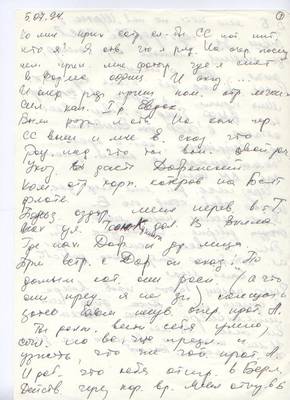










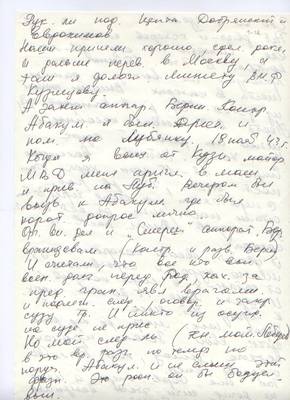


Fund 02 (Б-1) / Inventory 1 / Case Демченко Николай Николаевич
2. Biographical article dedicated to Demchenko N.N. “Vacation” 18 years long”, published in the newspaper “Mendeleevets” No. 37 (1800) dated 12/07/1988, continued.
1 лист, 1 изображение, газетная/журнальная вырезка

Abdullaev Seifullo,
Alksnis Yakov Ivanovich,
Beria Lavrenty Pavlovich,
Grimberg Asher,
Demchenko Nikolai Nikolaevich,
Zhuravlev Viktor Pavlovich (Philip Filatovich),
Ivanov Alexey Konstantinovich,
Kirshon Vladimir Mikhailovich,
Kirshon Mikhail Lvovich,
Lavrenko Vladimir*,
Makeev,
Miroshkin,
Mogilnaya Laura Andreevna,
Reiner Cecilia (Tsilya),
Ryabchenko Ivan
1988
Fund 02 (Б-1) / Inventory 1 / Case Михоэлс Соломон Михайлович
2. Article by I. Dmitriev "The Murder of Solomon Mikhoels", published in the newspaper "Secret Materials" No. 22 (66) for 2001.
2 листа, 2 изображения, ксерокопия


Abakumov Viktor Semenovich,
Alter Victor Izrailevich,
Beria Lavrenty Pavlovich,
Harriman William Averell,
Georgy Theodor Romzha,
Golubov-Potapov Vladimir Ilyich,
Gromyko Andrey Andreevich,
Zhemchuzhina Polina Semyonovna (Pearl Solomonovna Karpovskaya),
Zarubin Vasily Mikhailovich,
Zuskin Veniamin Lvovich,
Kalinin Mikhail Ivanovich,
Lebedev Vasily Evgenievich,
Lozovsky (Drizo) Solomon Abramovich,
Mayranovsky Grigory Moiseevich,
Meir Golda,
Mikhoels Solomon Mikhailovich,
Molotov Vyacheslav Mikhailovich,
Ne'eman Yuval,
Oggins Isaiah,
Ogoltsov Sergey Ivanovich,
Roosevelt Franklin Delano,
Stalin Joseph Vissarionovich,
Sudoplatov Pavel Anatolievich,
Fefer Isaac (Itsik) Solomonovich,
Kheifets Grigory Mendelevich,
Khrushchev Nikita Sergeevich,
Tsanava (Dzhandzhagva) Lavrentiy Fomich,
Churchill Winston,
Shubnyakov Fedor Grigorievich,
Shumsky Alexander Yakovlevich,
Erlikh Henrikh Moiseevich
2001
Fund 02 (Б-1) / Inventory 2 / Case Сысоева Раиса Денисовна
2. Article under the heading “People of Solovki: portraits and destinies” “Raisa Denisovna Sysoeva (1915-1997)” in the almanac “Solovki Sea” No. 3 for 2004 (attached file)
9 листов, машинопись, файл (присоединённый)
Akivis D.,
Alexandrov V.,
Andreeva M.I.,
Beria Lavrenty Pavlovich,
Borisenko L.,
Grishanov V.M.,
Gulyanskaya Marianna Anatolyevna,
Egorova Alexandra Vladimirovna,
Kirov Sergey Mironovich,
Klimov Mikhail Georgievich,
Kolesnikov V.,
Krestovskaya Olga Alexandrovna,
Martynov Alexander Yakovlevich,
Ostanina Margarita Kimovna,
Popov Yu.,
Postoev Timur,
Postoeva Elena Alekseevna,
Postoeva Nina Fedorovna,
Smirnova Lyubov Ivanovna,
Sukhikh Lidiya Alexandrovna,
Sysoeva Raisa Denisovna,
Tuikov A.,
Chistyakova Maria Ivanovna
2004
Fund 06 / Inventory 1 / Case Соколов Юрий Николаевич
2. "Seventeen Years of Nightmare", book 2 by Sokolov Yu.N. in the dilogy "Chronicle of one life of life." (attached file)
1946, liberation. Residence restrictions. Construction work. Connecting with family.
1949, new arrest. Prison in Kalinin. Gorky-Kirov-Krasnoyarsk. Settlement in the Krasnoyarsk Territory. Work on various construction sites.
End of 1953, liberation. A year later, after many efforts, rehabilitation. Looking for a permanent job.
In conclusion, excerpts from newspapers accusing Stalin, Beria and other party leaders of violating the law.
The abstract was compiled by T.G. Zhidkova.
1949, new arrest. Prison in Kalinin. Gorky-Kirov-Krasnoyarsk. Settlement in the Krasnoyarsk Territory. Work on various construction sites.
End of 1953, liberation. A year later, after many efforts, rehabilitation. Looking for a permanent job.
In conclusion, excerpts from newspapers accusing Stalin, Beria and other party leaders of violating the law.
The abstract was compiled by T.G. Zhidkova.
89 листов, файл (присоединённый)
Ageev Alexander Mikhailovich,
Antonenko,
Antonova Irina Vasilievna,
Balashov,
Batov,
Beria Lavrenty Pavlovich,
Bobrovsky Nikolai Ivanovich,
Verlinsky Vladimir,
Voroshilov Kliment Efremovich,
Garanin Stepan Nikolaevich,
Golubev,
Depolpor (Depelpor) Georgy Evgenievich,
Zalessky Isidor Vasilievich,
Zvyagintsev,
Kaganovich Lazar Moiseevich,
Konokotin Orest Nikolaevich,
Korneev,
Kruglov Sergey Nikiforovich,
Lerner Moses Abramovich,
Lipyagov,
Lodygin Dmitry,
Mikoyan Anastas Ivanovich (Ovanesovich),
Molotov Vyacheslav Mikhailovich,
Sturgeon,
Pchelnikov Boris,
Rakovskaya Lyubov Lvovna,
Rudenko Roman Andreevich,
Sokolov Nikolay Yurievich,
Sokolov Yuri Nikolaevich,
Sokolov Yuri Yurievich,
Sokolova Elena Yurievna,
Sokolova (ur. Volodin) Maria,
Stalin Joseph Vissarionovich,
Tallitsky Alexander Alexandrovich,
Timofeev Vladimir Alekseevich,
Travin,
Tyufaev,
Firsov,
Khrushchev Nikita Sergeevich,
Shakhlin Vladimir Aronovich,
Shtykin,
Shufer Feofaniya Yakovlevna
1969
Fund 02 (Б-1) / Inventory 1 / Case Гот-Гарт (Готгард) Сергей Иосифович
2. Article by Volontir O. and Lunin E. "Executioners. Confrontation. The KGB will open the archives", published in the newspaper "Unity" No. 16 for 03-10.09.1990.
1 лист, 1 изображение, газетная/журнальная вырезка
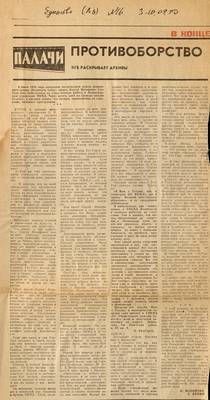
Fund 02 (Б-1) / Inventory 1 / Case Балановский Иннокентий Андреевич
2. Article by N.V. Uspenskaya “Sabotage... in the study of a solar eclipse” about the arrests of Leningrad astronomers, published in the journal “Nature” No. 8, 1989, p. 86-98. (attached file)
13 листа, текст сетевой публикации, файл (присоединённый)
Balanovsky Innokenty Andreevich,
Uspenskaya Nina Vladimirovna,
Viktorov Boris Alekseevich,
Struve Otto Ludwigovich,
Gerasimovich Boris Petrovich,
Numerov Boris Vasilievich,
Vyshinsky Andrey Yanuarievich,
Vavilov Sergey Ivanovich,
Shine Grigory Abramovich,
Ogorodnikov Kirill Fedorovich,
Abalakin Viktor Kuzmich,
Vavilov Nikolay Ivanovich,
Korolev Sergei Pavlovich,
Gubkin Ivan Mikhailovich,
Numerova (nee Egorova) Ekaterina Efimovna,
Reinicke,
Kolshuter,
Plaques,
Shklovsky Iosif Samuilovich,
Lupekin German Antonovich,
Molotov Vyacheslav Mikhailovich,
Fesenkov Vasily Grigorievich,
Subbotin Mikhail Fedorovich,
Kobulov Bogdan Zakharovich,
Beria Lavrenty Pavlovich,
Numerova Anastasia Borisovna,
Nemiro Andrey Antonovich,
Samoilova-Yakhontova Natalya Sergeevna,
Sidorovsky Lev Isaevich,
Ambartsumyan Viktor Amazaspovich,
Vorontsov-Velyaminov Boris Alexandrovich,
Kozyrev Nikolai Alexandrovich,
Gerasimovich Olga Mikhailovna,
Gerasimovich Tatyana Borisovna,
Parputti (Gerasimovich) Olga Petrovna,
Struve Ludwig Ottovich,
Kapitsa Petr Leonidovich,
Rubinin Pavel Evgenievich,
Komarov Vladimir Leontievich,
Merkulov Vsevolod Nikolaevich,
Chandrasekhar Subramanian,
Leithen Willem Jacob,
Menzel Donald Howard,
Eropkin Dmitry Ivanovich,
Karamyshev Petr Vasilievich,
Dneprovsky Nikolai Ivanovich,
Komendantov Nikolay Vasilievich,
Yashnov Petr Ivanovich,
Musselius Maximilian Maximilianovich,
Perepelkin Evgeniy Yakovlevich,
Parenago Pavel Petrovich,
Pavlov Nikolay Nikiforovich,
Bronshtein Matvey Petrovich,
Medvedev Roy Alexandrovich,
Korkin Petr Andreevich,
Karpov Ivan Prokofievich,
Lupandin Nikolay Nikolaevich,
Shapiro-Daikhovsky Natan Evnovich,
Frenkel Yakov Ilyich,
Fok Vladimir Alexandrovich,
Lukirsky Petr Ivanovich,
Landau Lev Davidovich,
Bursian Viktor Robertovich,
Fredericks Vsevolod Konstantinovich,
Krutkov Yuri Alexandrovich,
Semenov Nikolay Nikolaevich,
Muskhelishvili Nikolai Ivanovich,
Frenkel Viktor Yakovlevich,
Gorelik Gennady Efimovich,
Marshak Samuil Yakovlevich,
Chukovsky Korney Ivanovich,
Kharms (Yuvachev) Daniil Ivanovich,
Oleynikov Nikolay Makarovich,
Belykh Grigory Georgievich,
Trotsky Lev Davidovich,
Witt Alexander Adolfovich,
Shubin Semyon Petrovich,
Shostakovich Sofia Vasilievna,
Pauli Wolfgang,
Stern Otto,
Born Max,
Ehrenfest Paul,
Chulanovsky Vladimir Mikhailovich,
Frish Sergey Eduardovich,
Smirnov Vladimir Ivanovich,
Tupolev Andrey Nikolaevich,
Rumer Yuri Borisovich,
Kerber Leonid Lvovich,
Kruzhkov Nikolay Fedorovich,
Merkulov Evgeniy Fedorovich,
Rose Nikolay Vladimirovich,
Koshlyakov Nikolai Sergeevich,
Izvekov Boris Ivanovich,
Zhuravsky Andrey Mitrofanovich,
Timofeev Vladimir Andreevich,
Tretyak Grigory Timofeevich,
Stroganov Vasily Georgievich,
Svetlov Alexander Vasilievich,
Sokolov Petr Alexandrovich,
Ruzov Sergey Sergeevich,
Khudekov Nikolay Nikolaevich,
Postoeva Natalia Ivanovna,
Zegzhda Yuri Alekseevich,
Kuznetsov Alexey Alexandrovich
1989
Fund 02 (Б-1) / Inventory 1 / Case Демченко Николай Николаевич
3. Biographical article dedicated to Demchenko N.N. “Vacation” 18 years long,” published in the newspaper “Mendeleevets” No. 38 (1801) dated December 14, 1988, continued.
Fund 02 (Б-1) / Inventory 1 / Case Мацеевская Елена Иосифовна
3. Biographical sketch of Matseevskaya Y.A. “The Fate of My Family” about the parents of E.I. Matseevskaya. and Matseevsky A.A., [not earlier than November 1988]
5 листов, 5 изображений, машинописная копия





Beria Lavrenty Pavlovich,
Vyshinsky Andrey Yanuarievich,
Yezhov Nikolay Ivanovich,
Kruglov Sergey Nikiforovich,
Matseevskaya Elena Alexandrovna,
Matseevskaya Sofya Alexandrovna,
Matseevskaya (Khrutskaya) Elena Iosifovna,
Matseevskaya Yadviga Alexandrovna,
Matseevsky Alexander Alexandrovich,
Peshkova Ekaterina Pavlovna,
Stalin Joseph Vissarionovich,
Khrutskaya Anna Iosifovna,
Khrutskaya Maria Iosifovna,
Khrutsky Andrey Fomich,
Khrutsky Vyacheslav Iosifovich,
Khrutsky Ivan Iosifovich,
Khrutsky Ivan Fomich,
Khrutsky Iosif Ivanovich,
Shishmanov Alexander Ivanovich
1988
Fund 02 (Б-1) / Inventory 1 / Case Пуклич Георгий Иванович
3. Memoirs of Puklich G.I. 1989 about his arrest in 1951, about serving his sentence in Vorkuta, about the strike of prisoners at the 40th mine, about imprisonment in a penal lagoon department, about the strike in the Kapitalnaya mine, about being transferred to Moscow, about returning to Vorkuta, transferring to Inta, Potma , about his release, about obtaining Soviet citizenship, moving to Leningrad and graduating from the Leningrad Shipbuilding Institute in 1960.
5 листов, 5 изображений, машинопись





Fund 02 (Б-1) / Inventory 1 / Case Цирульников Михаил Юрьевич
3. Letter of the People's Commissar of Internal Affairs of the USSR L.P. Beria No. 8771b dated 18.06.1943 to the Chairman of the State Defense Committee I.V. Stalin with a proposal to amnesty and remove the criminal record of particularly distinguished imprisoned artillery designers of the 4th Special Department of the NKVD of the USSR - Berkalov E.A., Ikonnikov E.P., Lodkin S.I., Smirnov A.F., Rafalovich G.N. and Tsirulnikov M.Yu.; with the stamp "Top Secret" and with Stalin's resolution "I Agree". RGASPI, f. 644, op. 2, d. 181, pp. 88, 89.
2 листа, 2 изображения, ксерокопия
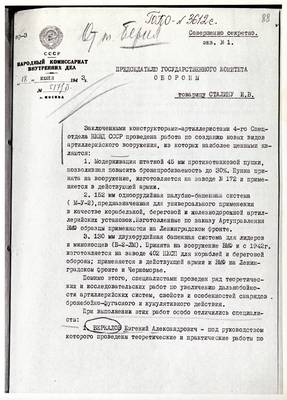
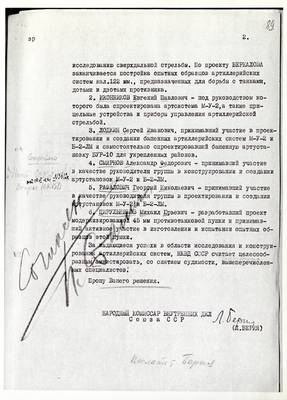
Fund 03 (Б-2) / Inventory 1 / Case Красавин Феликс Петрович
3. Article by Krasavin F.P. “Become just people or remain the vanguard of all humanity” from 02/03/1991. about the upcoming referendum on the need to preserve the USSR.
26 листов, ксерокопия машинописи, ксерокопия рукописи, файл (присоединённый)
Andropov Yuri Vladimirovich,
Beria Lavrenty Pavlovich,
Brezhnev Leonid Ilyich,
Hitler Adolf,
Gorbachev Mikhail Sergeevich,
Yezhov Nikolay Ivanovich,
Yeltsin Boris Nikolaevich,
Krasavin Felix Petrovich,
Kryuchkov Vladimir Alexandrovich,
Lunin Mikhail Sergeevich,
Pavlov Ivan Petrovich,
Kazimira Danutė Prunskienė (lit. Kazimira Danutė Prunskienė),
Ryzhkov Nikolay Ivanovich,
Saddam Hussein Abd al-Majid al-Tikriti,
Sechenov Ivan Mikhailovich,
Stalin Joseph Vissarionovich,
Suslov Mikhail Andreevich,
Ugarte Pinochet Augusto José Ramon (Spanish: Augusto Josе Ramоn Pinochet Ugarte),
Ustinov Dmitry Fedorovich,
Khrushchev Nikita Sergeevich,
Shevardnadze Eduard Amvrosievich,
Yazov Dmitry Timofeevich,
Yakovlev Alexander Nikolaevich
1991
Fund 02 (Б-1) / Inventory 1 / Case Чаплин Сергей Павлович
3. Copy of the statement of prisoner Chaplin S.P. (after 23.05.1939) to the USSR People's Commissar of Internal Affairs Beria with a request to look into his case. (attached file)
2 листа, текстовый файл, файл (присоединённый)
Chaplin Sergey Pavlovich,
Beria Lavrenty Pavlovich,
Chaplin Nikolai Pavlovich,
Rudzutak Yan Ernestovich,
Antipov Nikolay Kirillovich,
Sulimov Daniil Egorovich,
Syrtsov Sergey Ivanovich,
Zakovsky Leonid Mikhailovich,
Kirillov Georgy Fedorovich,
Shumsky Nikolay Stepanovich,
Chaplin Viktor Pavlovich,
Glacier Ivan Fedorovich,
Okhotin Anatoly Dmitrievich,
Musatov Alexander Georgievich,
Balanov Alexey Sergeevich,
Vyshinsky Andrey Yanuarievich,
Tsodikov,
Hunger,
Kovalchuk Nikolay Kuzmich,
Krivonogov Anton Dmitrievich,
Goglidze Sergey Arsenievich,
Ivanov,
Tsetlin Efim Viktorovich,
Stalin Joseph Vissarionovich
1939
Fund 03 (Б-2) / Inventory 1 / Case Сталин (Джугашвили) Василий Иосифович
3. Article “Love and Death of Vasily Stalin”, “Top Secret” No. 8, 1991
3 листа, 4 изображения, газетная/журнальная вырезка



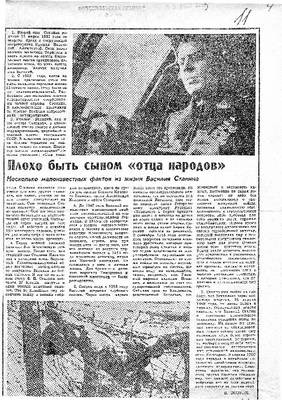
Alliluev Pavel Sergeevich,
Alliluyeva Nadezhda Sergeevna,
Alliluyeva Svetlana Iosifovna,
Beria Lavrenty Pavlovich,
Burdonskaya Galina Aleksandrovna,
Burdonsky Alexander Vasilievich,
Dzhugashvili Galina Yakovlevna,
Dzhugashvili Yakov Iosifovich,
Stalin (Dzhugashvili) Vasily Iosifovich,
Stalin Joseph Vissarionovich,
Stalina Nadezhda Vasilievna
1991
Fund 02 (Б-1) / Inventory 1 / Case Свердлов Михаил Абрамович
3. Memories of Sverdlov B.M., recorded in September 2017 (attached file)
Memories of Sverdlov B.M. , docx
3 листа, текстовый файл, файл (присоединённый)
Fund 03 (Б-2) / Inventory 10 / Case Дело по обвинению Пименова Р.И. и других, в 10 томах, т. 6
3. Report of the First Secretary of the CPSU Central Committee N.S. Khrushchev To the XX Congress of the CPSU 02/25/1956 “On the cult of personality and its consequences, with comments by R.I. Pimenov and an inscription by L.M. Shcherbakova: “Seized during a search in my room on 03/25/1957. It was in my son's books." An envelope with evidence.
21 лист, 21 изображение, ксерокопия





















Pimenov Revolt Ivanovich,
Shcherbakova (ur. Pimenova) Larisa Mikhailovna,
Khrushchev Nikita Sergeevich,
Lenin (Ulyanov) Vladimir Ilyich,
Stalin Joseph Vissarionovich,
Krupskaya Nadezhda Konstantinovna,
Kamenev Lev Borisovich,
Zinoviev (Radomyslsky) Grigory Evseevich,
Trotsky Lev Davidovich,
Bukharin Nikolai Ivanovich,
Mrachkovsky Sergey Vitalievich,
Rykov Alexey Ivanovich,
Kerensky Alexander Fedorovich,
Beria Lavrenty Pavlovich,
Kirov Sergey Mironovich,
Enukidze Avel Safronovich,
Nikolaev Leonid Vasilievich,
Molotov Vyacheslav Mikhailovich,
Zhdanov Andrey Alexandrovich,
Kaganovich Lazar Moiseevich,
Yezhov Nikolay Ivanovich,
Yagoda Genrikh Grigorievich,
Abakumov Viktor Semenovich,
Vyshinsky Andrey Yanuarievich,
Zaporozhets Ivan Vasilievich,
Borisov M.V.,
Dzerzhinsky Felix Edmundovich,
Postyshev Pavel Petrovich,
Kalinin Mikhail Ivanovich,
Minin,
Eikhe Robert Indrikovic,
Shlyapnikov Alexander Gavrilovich,
Rukhimovich Moisey Lvovich,
Rudzutak Yan Ernestovich,
Nikolaev-Zhurid Nikolay Galaktionovich,
Ushakov Zinoviy Markovich,
Mezhlauk Valery Ivanovich,
Rosenblum Alexander Moiseevich,
Komarov Nikolay Pavlovich,
Zakovsky Leonid Mikhailovich,
Chudov Mikhail Semenovich,
Shaposhnikova Ludmila Kuzminichna,
Ugarov Alexander Ivanovich,
Smorodin Petr Ivanovich,
Pozern Boris Pavlovich,
Kabakov Ivan Dmitrievich,
Chubar Vlas Yakovlevich,
Kosarev Alexander Vasilievich,
Kosior Stanislav Vikentievich,
Rhodes Boris Veniaminovich,
Hitler Adolf,
Churchill Winston,
Cripps Stafford,
Vorontsov Mikhail Alexandrovich,
Khlopov,
Malenkov Georgy Maximilianovich,
Kirponos Mikhail Petrovich,
Rokossovsky Konstantin Konstantinovich (Ksaverevich),
Gorbatov Alexander Vasilievich,
Meretskov Kirill Afanasyevich,
Podlas Kuzma Petrovich,
Bagramyan Ivan Khristoforovich,
Paasikivi Juho Kusti,
Lozovsky (Drizo) Solomon Abramovich,
Vasilevsky Alexander Mikhailovich,
Mikoyan Anastas Ivanovich (Ovanesovich),
Zhukov Georgy Konstantinovich,
Poskrebyshev Alexander Nikolaevich,
Voznesensky Nikolay Alekseevich,
Kuznetsov Alexey Alexandrovich,
Popkov Petr Sergeevich,
Rodionov Mikhail Ivanovich,
Baramia Mikhail Ivanovich,
Zodelava I. S.,
Rapava Avksentiy Narikievich,
Charkviani Kandid Nestorovich,
Chhubianishvili Zakhary Nikolaevich,
Gogua Vasily Barnabovich,
Rukhadze Nikolay Maksimovich,
Tito Broz Josip,
Timashuk Lidiya Feodosyevna,
Vinogradov Vladimir Nikitich,
Ignatiev Semyon Denisovich,
Kaminsky Grigory Naumovich,
Snegov Alexey Vladimirovich (Iosif Izrailevich Falikzon),
Kartvelishvili Lavrentiy Iosifovich (Lavrentiev),
Kedrov Igor Mikhailovich,
Golubev Vladimir Petrovich,
Baturina Antonina Vasilievna,
Andreev Andrey Andreevich,
Etinger Yakov Gilarievich,
Kogan Mikhail Borisovich,
Ordzhonikidze Grigory Konstantinovich (Sergo),
Marr Nikolay Yakovlevich
1957
Fund 03 (Б-2) / Inventory 10 / Case Дело по обвинению Молоствова М.М., Козлова Е.А., Солохина Н.Д. и Гаранина Л.Я., т. 4
3. Treatise Molostov M.M. "Status quo" confiscated from Garanin L.Ya. during a search on 07/26/1958. Case sheet 62-84.
26 листов, 26 изображений, ксерокопия машинописи






















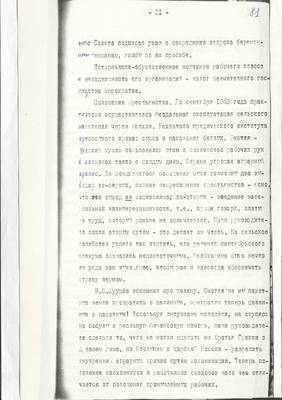



Molostov Mikhail Mikhailovich,
Garanin Leonty Yakovlevich,
Stalin Joseph Vissarionovich,
Lenin (Ulyanov) Vladimir Ilyich,
Trotsky Lev Davidovich,
Preobrazhensky Evgeniy Alekseevich,
Zinoviev (Radomyslsky) Grigory Evseevich,
Kamenev Lev Borisovich,
Krupskaya Nadezhda Konstantinovna,
Bukharin Nikolai Ivanovich,
Rykov Alexey Ivanovich,
Tomsky Mikhail Pavlovich,
Kirov Sergey Mironovich,
Khrushchev Nikita Sergeevich,
Yezhov Nikolay Ivanovich,
Beria Lavrenty Pavlovich,
Shvernik Nikolai Mikhailovich,
Tito Broz Josip
1958
Fund 017 (К-1) / Inventory 1 / Case Любин Аркадий Иосифович
4. Decree of the NKVD of the USSR of 01.12.1938 on the arrest of Lyubin A.I.
2 листа, 2 изображения, ксерокопия


Fund 03 (Б-2) / Inventory 1 / Case Сталин (Джугашвили) Василий Иосифович
4. Article by Zozulya V. “It’s bad to be the son of the father of nations,” “Komsomolskaya Pravda” No. 86 (20628), 05.13.1993
1 лист, 1 изображение, газетная/журнальная вырезка

Fund 02 (Б-1) / Inventory 1 / Case Медведовский Борис Семенович
4. Gratitude from the Norilsk Combine No. 4208 06/09/1945, announced to Medvedovsky B.S. for overfulfilling the plan.
1 лист, 1 изображение, ксерокопия

Fund 03 (Б-2) / Inventory 1 / Case Юрасов Дмитрий Геннадьевич
4. Article "Victims of their own crimes" from the newspaper "Book Review" No. 49 dated 12/08/1989 (about the future book by E. Beltov and D. Yurasov "1937: Only facts, only names")
Article "Victims of their own crimes" from the newspaper "Knizhnoye obozreniye" No. 49 dated 12/08/1989 (about the future book by E. Beltov and D. Yurasov "1937: Only facts, only names"). From the archive of Radio Liberty. 12/15/1989 (3 sheets, photocopy)
3 листа, 3 изображения, ксерокопия



Alliluyeva Svetlana Iosifovna,
Beltov Eduard,
Beria Lavrenty Pavlovich,
Berman Boris Davidovich,
Berman Matvey Davidovich,
Volkogonov Dmitry Antonovich,
Dzerzhinsky Felix Edmundovich,
Yezhov Nikolay Ivanovich,
Zhukovsky Semyon Borisovich,
Zakovsky Leonid Mikhailovich,
Maggo Petr Ivanovich,
Menzhinsky Vyacheslav Rudolfovich,
Acceleration Lev Emmanuilovich,
Solzhenitsyn Alexander Isaevich,
Stalin Joseph Vissarionovich,
Usherovich S.S.,
Frinovsky Mikhail Petrovich,
Chetvertakov Vladimir Nikolaevich,
Yurasov Dmitry Gennadievich,
Yagoda Genrikh Grigorievich
1989
Fund 02 (Б-1) / Inventory 1 / Case Свердлов Михаил Абрамович
4. An article by the initiative group "The Last Address" in St. Petersburg about Sverdlov M.A., who died in prison in 1943, and about the installation of a memorial plaque on the house where he lived as part of the "Last Address" project, 09.24.2017. (attached file)
2 листа, текстовый файл, файл (присоединённый)
Fund 02 (Б-1) / Inventory 1 / Case Лёвин Александр Алексеевич
4. An article by the Last Address initiative group in St. Petersburg about A.A. Levin, who was shot in 1942, and about the installation of a memorial plaque on the house where he lived as part of the Last Address project 02.02.2020. (attached file)
4 листа, текстовый файл, файл (присоединённый)
Levin Alexander Alekseevich,
Alksnis Yakov Ivanovich,
Levin Alexander Alexandrovich,
Artseulov Konstantin Konstantinovich,
Sorge Richard (German: Richard Sorge),
Abel Rudolf Ivanovich (Fisher William Genrikhovich),
Novikov Alexander Alexandrovich,
Stalin (Dzhugashvili) Vasily Iosifovich,
Beria Lavrenty Pavlovich,
Shacht Ernst Genrikhovich,
Sergeev Ivan Pavlovich,
Khodyakov Alexander Konstantinovich,
Pumpur Petr Ivanovich,
Vasilchenko Nikolay Nikolaevich,
Yusupov Pavel Pavlovich,
Stern Grigory Mikhailovich,
Vannikov Boris Lvovich,
Smushkevich Yakov Vladimirovich,
Loktionov Alexander Dmitrievich,
Klenov Petr Semenovich,
Ptukhin Evgeniy Savvich,
Tayursky Andrey Ivanovich,
Levin Petr Alexandrovich
2020
Fund 03 (Б-2) / Inventory 1 / Case Юрасов Дмитрий Геннадьевич
5. Yurasov D. “The mechanism of terror” (introductory article “A few words about the collector” by I. Polotsk) in the magazine “Daugava”. 1989, no. 4.
9 листов, 6 изображений, газетная/журнальная вырезка






Abakumov Viktor Semenovich,
Berggolts Olga Fedorovna,
Beria Lavrenty Pavlovich,
Braverman,
Voroshilov Kliment Efremovich,
Gorkin Alexander Fedorovich,
Yezhov Nikolay Ivanovich,
Zhdanov Andrey Alexandrovich,
Zakovsky Leonid Mikhailovich,
Zakrzhevskaya Taisiya Vladimirovna,
Kaganovich Lazar Moiseevich,
Kalinin Mikhail Ivanovich,
Kirov Sergey Mironovich,
Komarov Vladimir Ivanovich,
Kondratiev Nikolay Dmitrievich,
Krylenko Nikolay Vasilievich,
Lesnov,
Litvin Mikhail Iosifovich,
Litoshenko Lev Nikolaevich,
Molotov Vyacheslav Mikhailovich,
Nikolaev Leonid Vasilievich,
Ordzhonikidze Grigory Konstantinovich (Sergo),
Polotsk Ilan,
Popkov Petr Sergeevich,
Putintsev Arseny Vladimirovich,
Ravich Antonina Filippovna,
Ravich German Vladimirovich,
Ravich Svetlana Vladimirovna,
Ramzin Leonid Konstantinovich,
Rokossovsky Konstantin Konstantinovich (Ksaverevich),
Solzhenitsyn Alexander Isaevich,
Soloviev Nikolay Vasilievich,
Sositsky Lev Ilyich,
Stalin Joseph Vissarionovich,
Tolmazov Andrey Ilyich,
Chayanov Alexander Vasilievich,
Shatsky Nikolay Nikolaevich,
Yurasov Dmitry Gennadievich,
Yagoda Genrikh Grigorievich,
Yaroslavsky Emelyan Mikhailovich
1989
Fund 02 (Б-1) / Inventory 1 / Case Самойлович Александр Николаевич
5. Letter from the Secretariat of the NKVD of the USSR No. 161/44 dated 06/08/1939 to Samoylovich R.G. on receiving her letter addressed to the People's Commissar of Internal Affairs of the USSR Beria and with a request to present the available materials in writing and submit them to the local NKVD body for forwarding to the People's Commissar.
1 лист, 1 изображение, электронная копия

Fund 02 (Б-1) / Inventory 1 / Case Чаплин Сергей Павлович
5. Fragments of extracts from the archival investigative case No. 20278-38 on the charges against Chaplin S.P. with comments from relatives.
8 листов, 8 изображений, электронная копия
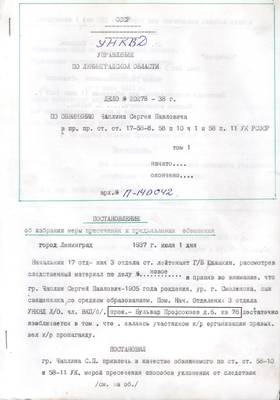
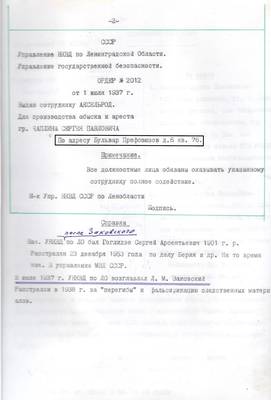
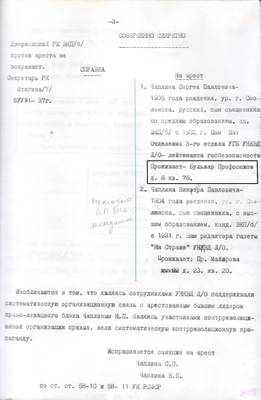
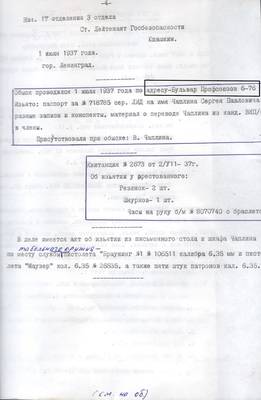
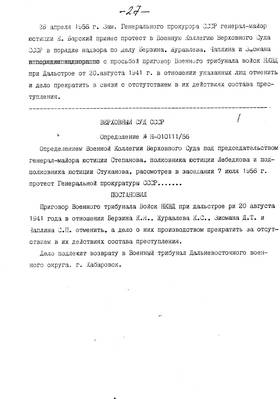
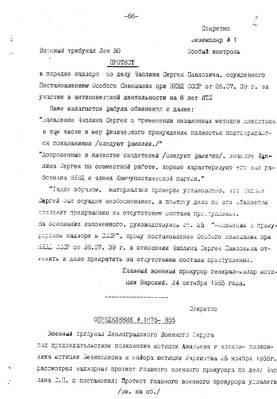

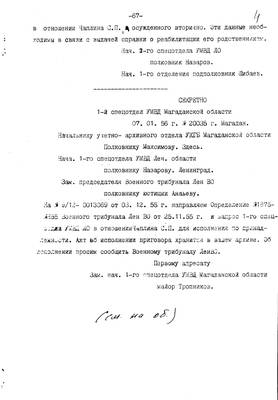
Chaplin Sergey Pavlovich,
Yudashkin Moisey Khatskelevich,
Goglidze Sergey Arsenievich,
Beria Lavrenty Pavlovich,
Zakovsky Leonid Mikhailovich,
Axelrod,
Chaplin Viktor Pavlovich,
Chaplina Vera Mikhailovna,
Chaplin Nikolai Pavlovich,
Itigina,
Varskoy Evgeniy Ivanovich,
Berzin Karl Yanovich,
Zhuravlev Konstantin Sergeevich,
Zisman David Tratlevic,
Stepanov,
Lebedkov,
Stukanov,
Ananyev A.,
Beznosikov,
Marquis,
Nazarov,
Shibaev,
Maksimov,
Tropnikov
Fund 03 (Б-2) / Inventory 1 / Case Сталин (Джугашвили) Василий Иосифович
5. Article “Why the son of the father of nations was rotted,” “Top Secret” No. 6, 1998
3 листа, 3 изображения, ксерокопия

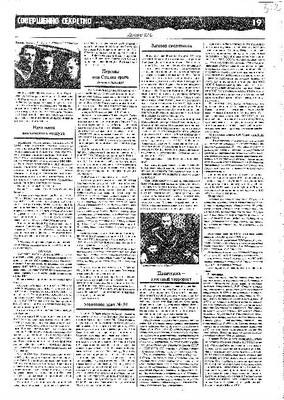

Abakumov Viktor Semenovich,
Alliluyev Vladimir Stanislavovich,
Alliluyeva Nadezhda Sergeevna,
Alliluyeva Svetlana Iosifovna,
Beria Lavrenty Pavlovich,
Bulganin Nikolay Alexandrovich,
Vlodzimirsky Lev Emelyanovich,
Voroshilov Kliment Efremovich,
Gorkin Alexander Fedorovich,
Kobulov Bogdan Zakharovich,
Kruglov Sergey Nikiforovich,
Molotov Vyacheslav Mikhailovich,
Motovsky,
Safonov Grigory Nikolaevich,
Stalin (Dzhugashvili) Vasily Iosifovich,
Frunze Timur Mikhailovich,
Khrushchev Nikita Sergeevich,
Shakhurin Alexey Ivanovich,
Shelepin Alexander Nikolaevich,
Shilov N.I.
1998
Fund 03 (Б-2) / Inventory 1 / Case Сталин (Джугашвили) Василий Иосифович
6. Publication of a fragment of a letter from Soviet pilots in defense of Stalin V.I., “Top Secret” No. 7, 1998
1 лист, 1 изображение, ксерокопия

Fund 02 (Б-1) / Inventory 1 / Case Гернет Евгений Сергеевич
6. The article “Gernet and Shlisselburg: a small touch to the biography of the great scientist”, dedicated to Gernet’s command of the division of patrol ships in Shlisselburg, published in the newspaper “Vesti” No. 7 (3570) dated 01/18/2012.
1 лист, 1 изображение, ксерокопия

Altvater Vasily Mikhailovich,
Beria Lavrenty Pavlovich,
Blucher Vasily Konstantinovich,
Gernet Galina Evgenevna,
Gernet Evgeniy Sergeevich,
Gernet (Shelagurova) Lidia Ivanovna,
Gorky Maxim,
Drukarev Evgeniy Grigorievich,
Yezhov Nikolay Ivanovich,
Paustovsky Konstantin Georgievich,
Trotsky Lev Davidovich
2012
Fund 02 (Б-1) / Inventory 1 / Case Самойлович Александр Николаевич
6. Notification of delivery of registered letter No. 850 addressed to People's Commissar Beria; p/w 29.06.1939/01.07.1939.
1 лист, 1 изображение, электронная копия

Fund 02 (Б-1) / Inventory 1 / Case Литхенгауз (Черкес, Шмидт) Анна Эдуардовна
6. Letter from Litchengauz A.E. (undated, [1993]) Morgacheva T.V. with memories of his brother Litchengauz G.E., his arrest, the arrest of Schmidt’s first husband A.Ya., his life in occupied Odessa, his departure to Austria, his return to Odessa in 1945, his arrest, his sentence to 10 years of ITL, about life in the camp in Kolyma, Ola state farm, about work in the greenhouse, about the transfer in March 1950 to the Magadan “Berievsky” camp (19 subdivision), about the release on November 30, 1953 without the right to leave Magadan, about returning to Odessa in 1962 with her second husband, about her life and rehabilitation in 1989 (attached file)
17 листов, рукопись, файл (присоединённый)
* Dunya,
* Zhorik,
* Savva,
* Shurik,
Beria Lavrenty Pavlovich,
Vasiliev,
Gridasova Alexandra Romanovna,
Gurvich (Gurvin?),
Gursh,
Ivanov,
Kandel Alexander Yakovlevich,
Kandel Riva Alexandrovna,
Kulikov,
Litkhengauz Georgy Eduardovich,
Litchengauz Elena Eduardovna,
Litchengauz (Cherkess, Schmidt) Anna Eduardovna,
Litchengauz Eduard,
Mironenko,
Morgacheva Tatyana Viktorovna,
Pavlov Mikhail Ivanovich,
Petrenko Ivan Grigorievich,
Petrescu,
Polyakov,
Postyshev Pavel Petrovich,
Prygunkov,
Pyshkin Nikolay Semenovich,
Sitsinsky Vsevolod Vladimirovich,
Smerichansky,
Til Mikhail,
Tyagnibida,
Tsaregradsky Valentin Alexandrovich,
Schmidt Adolf Yakovlevich,
Shmukler,
Stekeles,
Shcherbinin
1993
Fund 02 (Б-1) / Inventory 1 / Case Чаплин Сергей Павлович
6. An article by the initiative group “The Last Address” in St. Petersburg about Chaplin S.P., who was shot in 1942, and about the installation of a memorial plaque on the house where he lived as part of the “Last Address” project, 03/19/2017. (attached file)
3 листа, текстовый файл, файл (присоединённый)
Fund 02 (Б-1) / Inventory 1 / Case Роскин Моисей Симонович (Михаил Семенович)
6. An excerpt from a recording of a conversation between Ginzburgsky D.L., Roskin M.S. and Roskina V.I. about Isaev I.'s article "Nots on the Heart", dedicated to the case of the Leningrad Society of the Deaf and Dumb.
3 листа, 3 изображения, ксерокопия машинописи



Fund 03 (Б-2) / Inventory 1 / Case Сталин (Джугашвили) Василий Иосифович
7. Article “Case No. 39”, “24 Hours” No. 47, 1998
1 лист, 1 изображение, ксерокопия

Beria Lavrenty Pavlovich,
Vlodzimirsky Lev Emelyanovich,
Voroshilov Kliment Efremovich,
Kirov Sergey Mironovich,
Kobulov Bogdan Zakharovich,
Malinovsky Rodion Yakovlevich,
Molotov Vyacheslav Mikhailovich,
Popov Georgy Mikhailovich,
Rudenko Roman Andreevich,
Safonov Grigory Nikolaevich,
Stalin (Dzhugashvili) Vasily Iosifovich,
Stalin Joseph Vissarionovich,
Sukhomlinov Andrey Viktorovich,
Khrushchev Nikita Sergeevich,
Shelepin Alexander Nikolaevich
1998
Fund 02 (Б-1) / Inventory 1 / Case Веденский (Виденский) Соломон Харитонович
7. Transcript of an interview with V.S. Vidensky, recorded by I.A. Fliege. and Kulakova E. 09/24/2012 in St. Petersburg. (attached file)
Interview with Vidensky V.S. , docx
20 листов, текстовый файл, файл (присоединённый)
Vidensky Viktor Solomonovich,
Fliege Irina Anatolevna,
Kulakova Evgenia Yurievna,
Vedensky (Vidensky) Solomon Kharitonovich,
Vedenskaya Elizaveta Moiseevna,
Matyash,
Kurnitsky,
Valyavsky,
* Angelina Ivanovna,
Sakhanskaya (Verigo) Alexandra Nikolaevna,
Sakhansky (Sokhansky) Petr Ivanovich,
Golyakov Ivan Terentievich,
Vidensky Mikhail Solomonovich,
Kravchuk Mikhail Filippovich,
Khrushchev Nikita Sergeevich,
Molotov Vyacheslav Mikhailovich,
Stalin Joseph Vissarionovich,
Beria Lavrenty Pavlovich,
Gorbachev Mikhail Sergeevich,
Margulis Moisha,
Fix Moses (Mikhail) Ironovich,
Bernstein Sergei Natanovich
2012
Fund 02 (Б-1) / Inventory 1 / Case Трайнин Павел Григорьевич
8. Statement by Trainina P.L. dated [1938] addressed to L.P. Beria, with a request to change the sentence for her son, P.G. Trainin.
1 лист, 1 изображение, ксерокопия рукописи

Fund 02 (Б-1) / Inventory 1 / Case Гусева Лидия Ивановна
8. Biographical essay about Guseva L.I., written by his son Gusev A.V. 12/27/1988.
4 листа, 4 изображения, машинопись




Beria Lavrenty Pavlovich,
Gusev Alexander Vladimirovich,
Gusev Vladimir Alexandrovich,
Gusev Vladimir Alexandrovich Jr.,
Guseva Lidia Ivanovna,
Zabrodina M.,
Kirov Sergey Mironovich,
Malenkov Georgy Maximilianovich,
Meshcherskaya E.A.,
Morozov Ivan Alexandrovich,
Morozova Maria Ivanovna,
Muretov Yuri,
Sirotin Alexander Alekseevich,
Solovyova Maria Andreevna,
Stalin Joseph Vissarionovich,
Starov A.I.
1988
Fund 03 (Б-2) / Inventory 1 / Case Сахаров Андрей Дмитриевич
8. Fragments of Sakharov's autobiographical article written on 12/31/1973.
10 листов, 10 изображений, машинопись, файл (присоединённый)
Beria Lavrenty Pavlovich,
Brezhnev Leonid Ilyich,
Brodsky Joseph Alexandrovich,
Vail Boris Borisovich,
Volpin (Yesenin-Volpin) Alexander Sergeevich,
Galanskov Yury Timofeevich,
Henry Ernst (Rostovsky Semyon Nikolaevich, Khentov Leonid (Leib) Abramovich),
Ginzburg Alexander Ilyich,
Grigorenko Petr Grigorievich,
Daniel Yuly Markovich,
Dobrovolsky Alexey Alexandrovich,
Kennedy John Fitzgerald,
Kurchatov Igor Vasilievich,
Lashkova Vera Iosifovna,
Lysenko Trofim Denisovich,
Lyubarsky Kronid Arkadievich,
Medvedev Zhores Alexandrovich,
Medvedev Roy Alexandrovich,
Pimenov Revolt Ivanovich,
Podyapolsky Grigory Sergeevich,
Pauling Linus,
Sakharov Andrey Dmitrievich,
Sinyavsky Andrey Donatovich (Abram Tertz),
Stalin Joseph Vissarionovich,
Stenholm Ulle,
Tamm Igor Evgenievich,
Tverdokhlebov Andrey Nikolaevich,
Turchin Valentin Fedorovich,
Khrushchev Nikita Sergeevich,
Chalidze Valery Nikolaevich,
Shafarevich Igor Rostislavovich,
Shikhanovich Yuri Alexandrovich,
Eisenhower Dwight David
1973
Fund 03 (Б-2) / Inventory 1 / Case Медведев Рой Александрович
8. Article by R. Medvedev “Health and power in Russia” in the newspaper “Solidarity”, No. 2 of 1997, about the influence of the health of the leaders of the USSR and Russia (from Lenin to Yeltsin) on the country’s politics.
1 лист, 2 изображения, ксерокопия


Andropov Yuri Vladimirovich,
Beria Lavrenty Pavlovich,
Bulganin Nikolay Alexandrovich,
Gorbachev Mikhail Sergeevich,
Yeltsin Boris Nikolaevich,
Zinoviev (Radomyslsky) Grigory Evseevich,
Kamenev Lev Borisovich,
Lenin (Ulyanov) Vladimir Ilyich,
Ligachev Egor Kuzmich,
Malenkov Georgy Maximilianovich,
Medvedev Roy Alexandrovich,
Okudzhava Bulat Shalvovich,
Stalin Joseph Vissarionovich,
Trotsky Lev Davidovich,
Ustinov Dmitry Fedorovich,
Khrushchev Nikita Sergeevich,
Chebrikov Viktor Mikhailovich,
Chernenko Konstantin Ustinovich
1997
Fund 02 (Б-1) / Inventory 1 / Case Трайнин Павел Григорьевич
9. Biographical information on Trainin P.G., recorded from the words of his sister - Levit R.G.
2 листа, 3 изображения, рукопись



Fund 03 (Б-2) / Inventory 1 / Case Скобов Александр Валерьевич
9. Interview with Skobov A.V., cassette No. 4, recording dated 07/04/1991. (attached pdf file)
Interview with Skobov A.V., cassette No. 4, entry dated 07/04/1991. , pdf
20 sheets, typescript
20 sheets, typescript
20 листов, 1 изображение, машинопись, файл (присоединённый)

1991
Fund 02 (Б-1) / Inventory 1 / Case Иосилевич Александр Соломонович
9. Article by A. Antonov-Ovseenko “The Executioner’s Career” in the magazine “Zvezda” No. 9, 1988, pp. 141-164 - about the stages of career growth of L.P. Beria, on page 145 an employee of the Transcaucasian Cheka-GPU A. is mentioned. Iosilevich.
23 листа, 23 изображения, ксерокопия












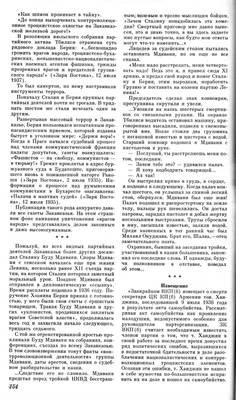












Fund 02 (Б-1) / Inventory 1 / Case Щапов Дмитрий Иннокентьевич
9. The article “He saved Leningrad and was declared an enemy of the people,” published in the newspaper “Anichkov Most” No. 20 for May 1991, dedicated to D.I. Shchapov. (1 sheet, photocopy).
1 лист, 2 изображения, ксерокопия


Fund 02 (Б-1) / Inventory 1 / Case Канаев Николай Иванович
10. Fragment of the "Memoirs of Saltykova-Fedoseyeva O.N. and Kanaeva (Fedoseyeva) T.N. about life from 1884 to 1954" about the arrest of Matskevich B.P. and Kanaev N.I. in March 1935, about the expulsion of family members to Orenburg and Kazakhstan, about the birth of a daughter Ksenia in exile, about the arrest of Kanaev N.I. in the fall of 1937, about the efforts for his rehabilitation in 1954 and about receiving a death certificate in 1957, pp. 153-176. (attached file)
25 листов, электронная копия, файл (присоединённый)
Kanaeva Tatyana Nikolaevna,
Fedoseeva Olga Nikolaevna,
Matskevich Boris Petrovich,
Kanaeva Vera Nikolaevna,
Fedoseeva Lidiya Konstantinovna,
Matskevich Andrey Borisovich,
Matskevich Leonid Borisovich,
Molotov Vyacheslav Mikhailovich,
Kanaev Nikolay Nikolaevich,
Winterman Alexander,
Palechek Georgy Osipovich,
Kanaeva Ksenia Nikolaevna,
* Ksenia Alexandrovna,
Kanaev Ivan Ivanovich,
Kanaeva Evgeniya Al.,
Kanaeva Irina Nikolaevna,
Fedoseev Nikolai Konstantinovich,
Fedoseeva Evgenia Nikolaevna,
* Marusya,
* Galina,
* Vladimir,
Uvarov Semyon Ivanovich,
* Varvara Ivanovna,
* Anna Feodorovna (Nyusya),
Nashchekina,
E.O.,
Shvernik Nikolai Mikhailovich,
Kirov Sergey Mironovich,
Beria Lavrenty Pavlovich,
Khrushchev Nikita Sergeevich,
Lukyanov,
Kozhevnikov,
Eremenko
Fund 02 (Б-1) / Inventory 1 / Case Самойлович Александр Николаевич
12. Article by the initiative group "The Last Address" in St. Petersburg about Samoylovich A.N., who was shot in 1938, and about the installation of a memorial plaque on the house where he lived as part of the "Last Address" project, 11/26/2017. (2 pages, attached file)
2 листа, текстовый файл, файл (присоединённый)
Fund 03 (Б-2) / Inventory 1 / Case Кукобака Михаил Игнатьевич
13. Essay by Kukobaki M.I. “The Story of an Unwritten Story”, dated summer 1987, with his preface dated November 28-30, 1990. and postscript dated 10/04/1991. “I listened to the broadcast of this essay on Radio Liberty.”
7 листов, 7 изображений, ксерокопия машинописи, ксерокопия рукописи







Fund 03 (Б-2) / Inventory 1 / Case Григорьянц Сергей Иванович
13. Article by Grigoryants S.I. “I can’t be on the same level as the murderer” dated July 13, 1994. with an open letter to the acting Prosecutor General of the Russian Federation A. Ilyushenko regarding the publication in the United States of a book by KGB Lieutenant General P.A. Sudoplatov, which contains his certificate of rehabilitation.
1 лист, 1 изображение, газетная/журнальная вырезка

Beria Lavrenty Pavlovich,
Vavilov Nikolay Ivanovich,
Vyshinsky Andrey Yanuarievich,
Grigoryants Sergey Ivanovich,
Malyuta Skuratov (real name Skuratov-Belsky Grigory Lukyanovich),
Mandelstam Osip Emilievich,
Marchenko Anatoly Tikhonovich,
Morozov Mark Aronovich,
Sudoplatov Pavel Anatolievich,
Ulrich Vasily Vasilievich,
Florensky Pavel Alexandrovich,
Eichmans Fedor Ivanovich
1994
Fund 02 (Б-1) / Inventory 1 / Case Торф Израиль Файвушевич
13. Draft statement of Torf I.F. dated 03/18/1939 addressed to People's Commissar of Internal Affairs L.P. Beria, with a request to review the case of his brother S.F. Torf.
2 листа, 4 изображения, оригинал
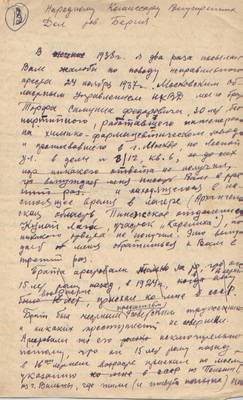



Fund 02 (Б-1) / Inventory 1 / Case Рерих Борис Константинович
13. An essay dedicated to a participant in Roerich’s Central Asian expedition – K.N. Ryabinin.
4 листа, 8 изображений, машинописная копия








Bazilevich D.D.,
Beria Lavrenty Pavlovich,
Vasily Erastovich,
Zhdanov Andrey Alexandrovich,
Zhurakovsky P.P.,
Likhtman Z.G.,
Likhtman M.M.,
Roerich Boris Konstantinovich,
Roerich Nikolai Konstantinovich,
Roerich Yuri Nikolaevich,
Ryabinin Konstantin Nikolaevich,
Tseren Dorji,
Eisner Alexander Petrovich
1997
Fund 017 (К-1) / Inventory 1 / Case 077
13. Cover letter of the secretariat of the NKVD of the USSR No. 515/76 dated 03/13/1939 to the statement of Eichhorn S.D. in the name of Beria L.P., sent to the head of the UNKVD for the Leningrad region Goglidze.
1 лист, 1 изображение, фотокопия

Fund 02 (Б-1) / Inventory 1 / Case Рапопорт Михаил Юрьевич
13. Memories of Rapoport F. “This will never be forgotten” (end), published in the information and advertising supplement to the newspaper “Vzglyad” No. 7 of September 25, 1992, San Francisco.
2 листа, 2 изображения, электронная копия


Fund 02 (Б-1) / Inventory 1 / Case Apo Aндpей Ивaнoвич
13. An article by the initiative group “Last Address” in St. Petersburg about Aro A.I., who was executed in 1938. and about the installation of a memorial plaque on the house where he lived as part of the “Last Address” project on January 13, 2019. (attached file)
3 листа, 3 изображения, текст сетевой публикации
Fund 03 (Б-2) / Inventory 1 / Case Скобов Александр Валерьевич
14. Material by Skobova A.V. dated 02/29/2000 with a handwritten note “The material was published with slight abbreviations in Novaya Gazeta before the 2000 presidential elections,” dedicated to the war in Chechnya.
1 лист, 2 изображения, распечатка компьютерного набора


Fund 02 (Б-1) / Inventory 1 / Case Извеков Борис Иванович
14. Article by Y. Golovanov “Executioners and victims of “Case No. 555”, published in the magazine “Ogonyok” No. 5, 1992.
2 листа, 2 изображения, ксерокопия




Abakumov Viktor Semenovich,
Altshuller Isaac Konstantinovich,
Amosov Nikolay Mikhailovich,
Artemov Boris Vasilievich,
Artemyev Nikolay Artamonovich,
Akhmatova Anna Andreevna,
Badaev Georgy Fedorovich,
Balashov T.I.,
Basov Mikhail Vasilievich,
Bezikovich Abram Samoilovich,
Beria Lavrenty Pavlovich,
Shadricheva Irina Fedorovna,
Borovlev,
Walter Alexander Filippovich,
Varskoy Evgeniy Ivanovich,
Verbitsky Alexander Dmitrievich,
Verzhbitsky Boris Dmitrievich,
Vinogradov Nikolay Pavlovich,
Vol Sergey Nikolaevich,
Voronov Nikolay Nikolaevich,
Vyshinsky Andrey Yanuarievich,
Georgadze Mikhail Porfirievich,
Glazenap Sergey,
Golovanov Yaroslav Kirillovich,
Denisov Evgeniy Ivanovich,
Zhdanov Andrey Alexandrovich,
Zhuravsky Andrey Mitrofanovich,
Zanin Semyon Fedoseevich,
Zinoviev (Radomyslsky) Grigory Evseevich,
Zoshchenko Mikhail Mikhailovich,
Ignatovskaya Maria Ivanovna,
Ignatovsky Vladimir Sergeevich,
Izvekov Boris Ivanovich,
Inge Lidiya Dzhonovna,
Kalinin Mikhail Ivanovich,
Kapustin Yakov Fyodorovich,
Karovodina L.I. [Lyudmila Ivanovna?],
Kirov Sergey Mironovich,
Kozhemyakin Ivan Alexandrovich,
Korolev Sergei Pavlovich,
Koshlyakov Nikolai Sergeevich,
Koshlyakova Ekaterina Arsenyevna,
Krasovsky,
Krestovsky G.L.,
Kruzhkov Nikolay Fedorovich,
Kruzhkov Stanislav Nikolaevich,
Kubatkin Petr Nikolaevich,
Kuznetsov Alexey Alexandrovich,
Lazutin Petr Georgievich,
Levin Panteleimon Ivanovich,
Legun Sigismund,
Leeb Wilhelm von,
Lenin (Ulyanov) Vladimir Ilyich,
Lyubov Konstantin Alekseevich,
Malenkov Georgy Maximilianovich,
Merkulov Evgeniy Fedorovich,
Mikoyan Anastas Ivanovich (Ovanesovich),
Milinsky Vladimir Ivanovich,
Naumov Valentin Savvich,
Nosov Vladimir Ivanovich,
Ogoltsov Sergey Ivanovich,
Pavlov Ivan Petrovich,
Podchasov Ivan Vasilievich,
Popkov Petr Sergeevich,
Popov German,
Acceleration Lev Emmanuilovich,
Rose Nikolay Vladimirovich,
Rudenko Roman Andreevich,
Ryumin Mikhail Dmitrievich,
Ryabov Mikhail Filatovich,
Sapozhnikov Rostislav Alekseevich,
Semichastny Vladimir Efimovich,
Serov,
Soloviev Nikolay Vasilievich,
Stalin Joseph Vissarionovich,
Strahovich Konstantin Ivanovich,
Suslov N.I. (or N.L.),
Tamarkin Yakov Davidovich,
Titov Leonid Gavrilovich,
Tretetsky Alexander Vladimirovich,
Turkevich Nikolay Gervasievich,
Tukhachevsky Mikhail Nikolaevich,
Ulrich Vasily Vasilievich,
Filippov Andrey Vladimirovich,
Fridman Alexander Alexandrovich,
Kharitonov Ilya Stepanovich,
Chanyshev S.M.,
Chapman Sydney,
Churilovskiy Vladimir Nikolaevich,
Yushkov Leonid Petrovich
1992
Fund 02 (Б-1) / Inventory 1 / Case Каган Виктор Кусиэлович
15. Memoirs of Kagan V.K. about his stay at OKB-172 from the summer of 1946 to the end of 1951.
4 листа, 4 изображения, машинопись




Alaverdyants Leon Mikhailovich,
Balashov,
Beisel Nathan Markovich,
Beria Lavrenty Pavlovich,
Berkalov Evgeny Alexandrovich,
Bespalov,
Bovin Vsevolod (Vladimir) Andreevich,
Brodsky Viktor Leonidovich,
Bugorsky Ivan Zakharovich,
Bursian Viktor Robertovich,
Gankevich Vyacheslav Iosifovich,
Gliner Erast Borisovich,
Groys Abram Solomonovich,
Gun Leonty Andreevich,
Gurevich Naum Solomonovich,
Decaristo Achilles (Alexey) Nikolaevich,
Doronin Nikolay Andreevich,
Dychenko,
Zhuravsky Mitrofan Petrovich,
Zaremba Alexey Viktorovich,
Zubets Mikhail Antonovich,
Kagan Viktor Kusielevich,
Karpovich Georgy Evgenievich,
Kogan B.L.,
Kolbasnikov Nikolay Ivanovich,
Kolupaev Evgeny Vasilievich,
Korb Evgeny Avgustovich,
Korman Arkady Grigorievich,
Korytny David Markovich,
Kosterev Pavel Pavlovich,
Koshlyakov Nikolai Sergeevich,
Kuzmin V.V.,
Kutepov G.Ya.,
Lushkov,
Matygulin I.M.,
Mogilevkin Vasily Nikitich,
Moiseev Vasily Petrovich,
Morozov Konstantin Dmitrievich,
Nasakin,
Noreiko Karl Silvestrovich,
Orlevich L.K.,
Orlov Fedor Fedorovich,
Orlovich Leopold Karlovich,
Otselin (Strauman) Nikolai Petrovich,
Palyachek (Polyachek) Vladimir Viktorovich,
Papa-Fedorov D.M.,
Parfenov Valentin Prokhorovich,
Petlyakov Vladimir Mikhailovich,
Pivovarov Semyon Fadeevich,
Pomerantsev Vladimir Vladimirovich,
Ponomarenko Leonid Panteleimonovich,
Popov Vladimir Ilyich,
Postoeva Natalia Ivanovna,
Provalov,
Puzynya Parfen Semenovich,
Raitsin Toviy Markovich,
Ruzov Sergey Sergeevich,
Salome Alexander Eduardovich,
Samara,
Sapozhnikov Rostislav Alekseevich,
Semenov Nikolai Andreevich,
Simanovich (Simonovich),
Slobodchikov,
Smirnov Vladimir Ivanovich,
Solzhenitsyn Alexander Isaevich,
Spiridonov Evgeniy Nikolaevich,
Strulkov,
Telesnin Boris Nikolaevich,
Tokov Ivan Vasilievich,
Tolstobrov Leonid Ilyich,
Tupolev Andrey Nikolaevich,
Fatyanov Vasily Vasilievich,
Fedorov Igor Vladimirovich,
Fomchenko Sergey Ivanovich,
Chaika Andrei Vladimirovich,
Charomsky,
Chervinsky Genrikh Antonovich,
Shanin Pavel Petrovich,
Shvartsman Lev Leonidovich,
Schlesinger Marcus Gustavovich,
Yurchenko Karp Sergeevich,
Yavorsky Vasily Nikolaevich,
Yatsko Grigory Vasilievich
Fund 02 (Б-1) / Inventory 1 / Case Ухналев Евгений Ильич
15. Interview with E.I. Ukhnalev, recorded by N. Frank on November 12, 2003. (attached file)
15 листов, текстовый файл, файл (присоединённый)
Ukhnalev Evgeniy Ilyich,
Frank Nika,
Iofe Veniamin Viktorovich,
Kapman Natalia Alexandrovna,
Stalin Joseph Vissarionovich,
Beria Lavrenty Pavlovich,
Malenkov Georgy Maximilianovich,
Egorova Valentina Alekseevna,
Ukhnalev Ilya Akimovich,
Saburov Nikolay Dmitrievich,
Kaldmäe Walter,
Evdokimov Georgy Nikolaevich,
Shpak Ivan,
Silaev
2003
Fund 016 / Inventory 1 / Case 9
15-2. Complaint of E.M. Vakhrusheva dated 03/20/1956 to the Chief Military Prosecutor of the USSR on the review of the case.
Fund 02 (Б-1) / Inventory 1 / Case Сиваков Анатолий Евграфович
16. Complaint by Sivakov A.E. on the verdict of the Leningrad City Court dated 06/08/1948 to the Supreme Soviet of the USSR dated 06/08/1953. (attached file)
6 листов, 6 изображений, ксерокопия машинописной копии
Fund 017 (К-1) / Inventory 1 / Case Любин Аркадий Иосифович
16. The conclusion of the military prosecutor of the department of the Main Military Prosecutor's Office dated 05/25/1956 on an additional check of the archival and investigative case No. 959942 on Lyubin A.I.
3 листа, 3 изображения, ксерокопия



Andreev Sergey Ivanovich,
Artemiev,
Beria Lavrenty Pavlovich,
Vaishlya Joseph Stanislavovich,
Gertsovich Lev Borisovich,
Kobulov Bogdan Zakharovich,
Kozlov Anatoly Sergeevich,
Konchikov Boris Timofeevich,
Kosarev Alexander Vasilievich,
Lyubin Arkady Iosifovich,
Nasonov, prosecutor,
Paykin Israel Lvovich,
Pikina Valentina Fedorovna,
Rhodes Boris Veniaminovich,
Tammy Alexander Karlovich,
Tatarnikov A.S.,
Terekhov Dmitry Pavlovich,
Usenko S.I.,
Utkin Sergey Alekseevich,
Shamonin Fedor Fedorovich,
Shvartsman Lev Leonidovich,
Shvetsov Vsevolod Igorevich
1939
Fund 03 (Б-2) / Inventory 1 / Case Орловский Эрнст Семенович
16.1. Memoirs of Orlovsky E.S. “What I remember about my mother, what I learned later and what I never managed to find out,” published in the magazine “Star” No. 3, 2003, pp. 194-207.
7 листов, 7 изображений, ксерокопия







Beria Lavrenty Pavlovich,
Bolikova,
Bonner Elena Georgievna,
Vinetsky Igor Vasilievich,
Vyakhya Toivo Yukhonpoika (underground name Petrov Ivan Mikhailovich),
Golub Naum Abramovich,
Dicharov Zakhar Lvovich,
Dubcek Alexander,
Dukhnovsky,
Yezhov Nikolay Ivanovich,
Ivanovskaya Ada Alexandrovna,
Ivanovskaya Alexandra Maksimovna,
Ivanovsky Alexander Ignatievich,
daggers,
Kovalev Sergey Adamovich,
Craxi Benedetto (Bettino),
Lentovskaya Eva,
Lopukhina (Kukushkina) Zinaida Ivanovna,
Marshak Samuil Yakovlevich,
Molostov Mikhail Mikhailovich,
Orlovsky Kliment Semenovich,
Orlovsky Semyon (Solomon) Efimovich,
Orlovsky Felix Semenovich,
Orlovsky Ernst Semenovich,
Petrov Nikita Vasilievich,
Pimenov Revolt Ivanovich,
Pyadyshev,
Roginsky Arseniy Borisovich,
Smirnov Evgraf Ivanovich,
Smirnova Kapitolina Evgrafovna,
Sno Evgeniy Evgenievich,
Sosnin,
Trofimov Viktor Ivanovich,
Utkina Iskra,
Fulidi Aelita,
Kharms (Yuvachev) Daniil Ivanovich,
Khrushchev Nikita Sergeevich
2003
Fund 03 (Б-2) / Inventory 1 / Case Дмитриев Георгий Владимирович
17. Article by Dmitriev G.V. “Visiting the Highlanders” about a trip to 1962. to Kabardino-Balkaria, during which he learned about the dispossession of the Balkars, about the punitive operation of 1942. and about the deportation of 1944.
1 лист, 1 изображение, газетная/журнальная вырезка

Fund 03 (Б-2) / Inventory 1 / Case Солженицын Александр Исаевич
17. Article by Medvedev R. “On the first part of A.I. Solzhenitsyn’s “Gulag Archipelago”” in the newspaper “Smena” No. 274-275 (19424-19425) dated November 30, 1989.
2 листа, 2 изображения, газетная/журнальная вырезка


Beria Lavrenty Pavlovich,
Bukharin Nikolai Ivanovich,
Yezhov Nikolay Ivanovich,
Kochetov Vsevolod Anisimovich,
Lenin (Ulyanov) Vladimir Ilyich,
Medvedev Roy Alexandrovich,
Ordzhonikidze Grigory Konstantinovich (Sergo),
Solzhenitsyn Alexander Isaevich,
Sofronov Anatoly Vladimirovich,
Stalin Joseph Vissarionovich,
Tvardovsky Trifon Gordeevich,
Tvardovsky Alexander Trifonovich,
Fedorov Grigory Fedorovich,
Khrushchev Nikita Sergeevich
1989
Fund 02 (Б-1) / Inventory 1 / Case Журавский Андрей Митрофанович
17. Letter from Zhuravsky to A.M. dated November 25, 1952 addressed to L.P. Beria about his work in the field of artillery weapons in OKB-172, interrupted by his sending into exile and with a request to second him to an institute or bureau dealing with artillery weapons, with Beria’s resolution dated 04/07/1952.
2 листа, 2 изображения, машинописная копия


Fund 02 (Б-1) / Inventory 1 / Case Журавский Андрей Митрофанович
18. Extract from Zhuravsky’s letter to A.M. dated November 25, 1952 addressed to L.P. Beria about his work in the field of artillery weapons at OKB-172.
1 лист, 1 изображение, рукописная копия

Fund 03 (Б-2) / Inventory 1 / Case Дмитриев Георгий Владимирович
18. Manuscript of memoirs of Dmitriev G.V. about the arrest, investigation and stay in prison special. mental hospital in 1953-1954. (attached file)
26 листов, рукопись, файл (присоединённый)
Antonov Alexander Stepanovich,
Bagashvili Spartak Levanovich,
Beria Lavrenty Pavlovich,
Vvedensky Ivan Nikolaevich,
Vyacheslov (Vecheslov) Yuri,
Gafiz Ali,
Gerber Pavel Mikhailovich,
Grant,
Grünblat,
Dekanozov Vladimir Georgievich,
Dzerzhinskaya Margarita Feliksovna,
Didlovsky,
Dmitriev Georgy Vladimirovich,
Zaitsev regiments,
Zinoviev (Radomyslsky) Grigory Evseevich,
Koldunov Sergey Alexandrovich,
Kosova Maria,
Lenin (Ulyanov) Vladimir Ilyich,
Mazmanyan Babken (Boris),
Nadirashvili David,
Petrov-Bytov (Petrov) Pavel Petrovich,
Pisarnitskaya,
Romashkin,
Snegovsky,
Sobolev M.,
Stalin Joseph Vissarionovich,
Travin Semyon Ivanovich,
Fatimih Mamoud,
Fedya the Vlasovite,
Khobotov Yuri Alexandrovich,
Chernov trace. 2,
Yutson Joseph Adolfovich
Fund 03 (Б-2) / Inventory 10 / Case Дело по обвинению Пименова Р.И. и других, в 10 томах, т. 9
18. Cassation appeal by lawyer Raikman I.I. in defense of R.I. Pimenov dated 09.09.1957 to the Supreme Court of the RSFSR against the verdict of the Leningrad City Court dated 06.09.1957 Case sheets 586-592.
7 листов, 7 изображений, ксерокопия рукописи



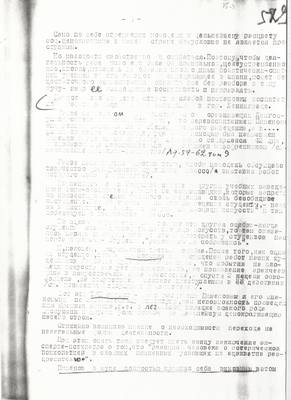



Raikhman Joseph Izrailevich,
Pimenov Revolt Ivanovich,
Sheinis Viktor Leonidovich,
Kudryavtsev Eduard Petrovich,
Kudrova Irma Viktorovna,
Lenin (Ulyanov) Vladimir Ilyich,
Stalin Joseph Vissarionovich,
Beria Lavrenty Pavlovich,
Malenkov Georgy Maximilianovich,
Kaganovich Lazar Moiseevich,
Molotov Vyacheslav Mikhailovich,
Khrushchev Nikita Sergeevich,
Tito Broz Josip,
Krasovskaya Julia Evgenievna,
Shcherbakov Ivan Gavrilovich,
Shcherbakova (ur. Pimenova) Larisa Mikhailovna,
Alexandrov Alexander Danilovich,
Shanin Nikolay Alexandrovich,
Zaslavsky Igor Dmitrievich
1957
Fund 03 (Б-2) / Inventory 1 / Case Дмитриев Георгий Владимирович
19. Autobiographical sketch of Dmitriev G.V.
Fund 03 (Б-2) / Inventory 10 / Case Дело по обвинению Пименова Р.И. и других, в 10 томах, т. 9
19. Cassation appeal of Pimenov R.I. dated 09/13/1957 to the Judicial Collegium for Criminal Cases of the Supreme Court of the RSFSR with a request to review the descriptive part of the verdict of the Leningrad City Court dated 09/06/1957. Case sheets 594-597.
4 листа, 4 изображения, ксерокопия рукописи




Pimenov Revolt Ivanovich,
Stalin Joseph Vissarionovich,
Malenkov Georgy Maximilianovich,
Kaganovich Lazar Moiseevich,
Beria Lavrenty Pavlovich,
Rokhlin Efim Alexandrovich,
Kudryavtsev Eduard Petrovich,
Orlovsky Ernst Semenovich,
Gapon Georgy Apollonovich,
Verblovskaya Irena Savelievna,
Khrushchev Nikita Sergeevich,
Krasovskaya Julia Evgenievna,
Zaslavsky Igor Dmitrievich
1957
Fund 017 (К-1) / Inventory 1 / Case Любин Аркадий Иосифович
20. Decree of the NKVD of the USSR of December 6, 1938 on the arrest of Lyubin A.I.
1 лист, 1 изображение, ксерокопия

Fund 03 (Б-2) / Inventory 1 / Case Дмитриев Георгий Владимирович
20. Biography of Dmitriev G.V., part 2.
4 листа, 4 изображения, машинопись, рукопись




Fund 02 (Б-1) / Inventory 1 / Case Торф Израиль Файвушевич
21. Notice (F. No. 6) of the NKVD secretariat dated November 17, 1939 addressed to Torf I.F. about the receipt of his application by the NKVD secretariat.
1 лист, 1 изображение, оригинал

Fund 02 (Б-1) / Inventory 1 / Case Делибаш Елизавета Александровна
21. Story by Delibash E.A. about his parents, relatives and about his life after the arrest and execution of his parents.
10 листов, 10 изображений, машинопись



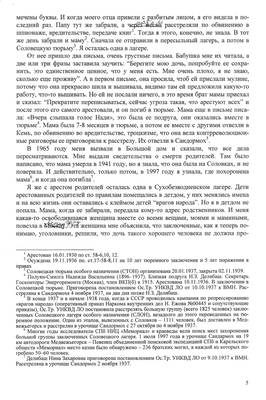






Antonov-Ovseenko Anton Vladimirovich,
Beria Lavrenty Pavlovich,
Berman Lev,
Delibash Alexander Zakharovich (Zakharyevich),
Delibash Elizaveta Alexandrovna,
Delibash Zakhary Alexandrovich,
Delibash Margarita Zakharovna,
Delibash Nina Zakharovna,
Delibash Raisa Zakharovna,
Delibash Sofya Zakharovna,
Delibash (Charakhchian) Nina Iosifovna,
Drabkina Elizaveta Yakovlevna,
Yezhov Nikolay Ivanovich,
Zaloga Vasily Dmitrievich,
Zinoviev (Radomyslsky) Grigory Evseevich,
Iosilevich Alexander Solomonovich,
Iosilevich Victor Solomonovich,
Kamenev Lev Borisovich,
Kardovsky Grigory Solomonovich,
Kirov Sergey Mironovich,
Krupskaya Nadezhda Konstantinovna,
Poluyan-Smilga Nadezhda Vasilievna,
Smilga Ivar Tenisovich,
Sokolnikov Grigory Yakovlevich,
Stalin Joseph Vissarionovich,
Stasova Elena Dmitrievna,
Trotsky Lev Davidovich,
Farbstein Joseph Ilyich,
Khmelev Nikolay Pavlovich,
Yagoda Genrikh Grigorievich
Fund 02 (Б-1) / Inventory 1 / Case Беккер Владимир Карлович
21. A notebook with extracts and notes on the history of the USSR, with the inscription on the cover: “Compiled and selected by Valentin Vladimirovich Becker.”
14 листа, 15 изображений, рукопись











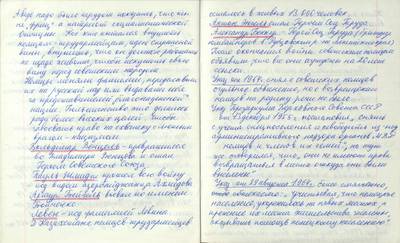



Becker Valentin Vladimirovich,
Beria Lavrenty Pavlovich,
Soldatov Ivan Demyanovich,
Gerre H.,
Gehlen Reinhard,
Vlasov Andrey Andreevich,
Felfe Heinz,
Shalamov Varlam Tikhonovich,
Shvernik Nikolai Mikhailovich,
Zhdanov Andrey Alexandrovich,
Burdenko Nikolay Nilovich,
Vedeneev Boris Evgenievich,
Lysenko Trofim Denisovich,
Tarle Evgeniy Viktorovich,
Trainin Ilya Pavlovich,
Grizodubova Valentina Stepanovna,
Tolstoy Alexey Nikolaevich,
Metropolitan Nicholas (Yarushevich Boris Dorofeevich),
Malyshkin Vasily Fedorovich,
Zhilenkov Georgy Nikolaevich,
Trukhin Fedor Ivanovich,
Zakutny Dmitry Efimovich,
Blagoveshchensky Ivan Alekseevich,
Meandrov Mikhail Alekseevich,
Maltsev Viktor Ivanovich,
Bunyachenko Sergey Kuzmich,
Zverev Grigory Alexandrovich,
Korbukov Vladimir Denisovich,
Shatov Nikolay Stepanovich,
Zhukov Georgy Konstantinovich,
Malenkov Georgy Maximilianovich,
Pavlov Dmitry Grigorievich,
Korobkov Alexander Andreevich,
Klimovskikh Vladimir Efimovich,
Russkov,
Chudinov,
Demin,
Markov,
Demin,
Mehlis Lev Zakharovich,
Lobov A.,
Pavlov A.,
Konev Ivan Stepanovich,
Ponedelin Pavel Grigorievich,
Lukin Mikhail Fedorovich,
Potapov Mikhail Ivanovich,
Karbyshev Dmitry Mikhailovich,
Kirillov Nikolay Kuzmich,
Tumanov Oleg Alexandrovich,
Kruzhin (Bublik) Anatoly Nikolaevich,
Melnikov Dmitry Ivanovich,
Bulynin Leonid Nikolaevich,
Gorbushin Vasily Ivanovich,
Skardin Viktor Afanasyevich,
Vakhrushev Stepan Vasilievich,
Vypolzov Stepan Mikhailovich,
Ivanichkin Vasily Vasilievich,
Surikov Leonid Ivanovich,
Grigoriev S.I.,
Baldichev Gennady Alexandrovich,
Nesterov A.M.,
Stepanov V.I.,
Maslov K.V.,
Gusev I.V.,
Krasnopoyasovsky Stepan Ignatievich,
Bernatovich Boris Vladimirovich,
Reshetnikov Igor Leonidovich,
Martynovsky Nikolay Alexandrovich,
Narets Oscar,
Kupfer,
Terekhov Vasily,
Pshik Boris,
Bogdanov Roman,
Orlov,
Gerasimov,
Mole (nickname),
Doda (nickname),
Nakhodka (nickname),
Khmara (nickname),
Coca (nickname),
Ventsov Vladimir Kirillovich,
Schmidt Paul Eduardovich (Akhmetov Ali Akhmetovich),
Engel Anton Iosifovich,
Becker Alexander Alexandrovich,
Strizhevsky Yuri Alexandrovich,
Timashuk Lidiya Feodosyevna,
Vavilov Nikolay Ivanovich,
Khvat Alexander Grigorievich,
Kalinina Ekaterina Ivanovna,
Ulrich Vasily Vasilievich,
Kandybin Dmitry Yakovlevich,
Orlov,
Mazur,
Afanasyev Nikolay Porfirievich,
Sashenkov Petr Matveevich,
Bazhanov Boris Georgievich,
Kanner Grigory Iosifovich,
Tovstukha Ivan Pavlovich
Fund 02 (Б-1) / Inventory 1 / Case Кочергин Константин Иванович
23. Article by Potemkin V.K. “Konstantin Ivanovich Kochergin – deputy and chief censor of Leningrad in 1932-1936. (years of life 1901-1996)", written on 04/26/2015. (attached file)
16 листов, 16 изображений, ксерокопия
Antselovich Naum Markovich,
Baykov,
Beria Lavrenty Pavlovich,
Blum Arlen Viktorovich,
Busygin Alexander Alexandrovich,
Weisberg Joseph Abramovich,
Volkov,
Goglidze Sergey Arsenievich,
Goldstein,
Gornshtein Tatyana Nikolaevna,
Eremenko,
Zhdanov Andrey Alexandrovich,
Zakovsky Leonid Mikhailovich,
Zelenov Mikhail Vladimirovich,
Karpovich Vladimir Stanislavovich,
Kozlovsky Boris Grigorievich,
Kolbasov G. G.,
Korkin Petr Andreevich,
Kochergin Andrey Ivanovich,
Kochergin Ivan Polikarpovich,
Kochergin Igor Konstantinovich,
Kochergin Konstantin Ivanovich,
Kochergin Nikolay Ivanovich,
Kochergina Ksenia Ivanovna,
Maksimov,
Potemkin Alexander Borisovich,
Potemkin Vladimir Konstantinovich,
Potemkin Felix Konstantinovich,
Potemkina Nina Alexandrovna,
Potemkina Taisiya Vasilievna,
Sinelnikov,
Sklyarov Daniil Mikhailovich,
Tsiperovich Grigory Vladimirovich,
Chekavy I.I.,
Shevtsov,
Yarmolich Fedor Kuzmich
2015
Fund 02 (Б-1) / Inventory 1 / Case Торф Израиль Файвушевич
25. Draft statement of Torf I.F. addressed to the People's Commissar of Internal Affairs L.P. Beria, with a request to review the case of his brother S.F. Torf.
2 листа, 3 изображения, оригинал



Fund 03 (Б-2) / Inventory 1 / Case Солженицын Александр Исаевич
28. Article by Latynina A. “Solzhenitsyn and us” in the magazine “New World” No. 1, 1990, pp. 241-258.
9 листов, 18 изображений, газетная/журнальная вырезка, файл (присоединённый)
Avtorkhanov Abdurakhman Genazovich,
Agursky Mikhail Samuilovich,
Akhmatova Anna Andreevna,
Baklanov Grigory Yakovlevich,
Barabanov Evgeniy Viktorovich,
Belinkov Arkady Viktorovich,
Berdyaev Nikolay Alexandrovich,
Beria Lavrenty Pavlovich,
Bitov Andrey Georgievich,
Bogrov Dmitry Grigorievich (Mordko Gershkovich),
Borisov Vadim Mikhailovich,
Glucksmann André (French: André Glucksmann),
Gurevich Evgeniy Zinovievich,
Dementyev Andrey Pavlovich,
Djilas Milovan,
Dombrovsky Yuri Osipovich (Iosifovich),
Dyakov Boris Alexandrovich,
Zamyatin Evgeny Ivanovich,
Koestler Artur,
Klyuev Nikolai Alekseevich,
Kozhinov Vadim Valerianovich,
Lavrin Alexander,
Lakshin Vladimir Yakovlevich,
Latynina Alla Nikolaevna,
Lugovskoy Vladimir Alexandrovich,
Mandelstam Osip Emilievich,
Medvedev Zhores Alexandrovich,
Niva Georges (French: Georges Nivat),
Niva Georges (French: Georges Nivat),
Ovechkin Valentin Vladimirovich,
George Orwell,
Poltoratsky Alexey Ivanovich,
Prishvin Mikhail Mikhailovich,
Sarnov Benedikt Mikhailovich,
Svetov Felix Grigorievich,
Soifer Valery Nikolaevich,
Solzhenitsyn Alexander Isaevich,
Stalin Joseph Vissarionovich,
Stolypin Petr Arkadevich,
Tvardovsky Alexander Trifonovich,
Tendryakov Vladimir Fedorovich,
Trifonov Yuri Valentinovich,
Ulanovskaya Maya Alexandrovna,
Fedin Konstantin Alexandrovich,
Shafarevich Igor Rostislavovich,
Shelest (Malykh) Georgy Ivanovich,
Navigator Dora Moiseevna,
Erenburg Ilya Grigorievich,
Yampolsky Boris Samoilovich
1990
Fund 03 (Б-2) / Inventory 1 / Case Сахаров Андрей Дмитриевич
31. Interview with A.D. Sakharov, taken by G. Tsitrinyak, “Degree of Freedom” about the results of the work of the first Congress of People’s Deputies, published in the magazine “Ogonyok” in June 1989.
3 листа, 3 изображения, газетная/журнальная вырезка




Beria Lavrenty Pavlovich,
Bonner Elena Georgievna,
Gorbachev Mikhail Sergeevich,
Kalashnikov Vladimir Ilyich,
Lukyanov Anatoly Ivanovich,
Melnikov Vladimir Ivanovich,
Osipyan Yuri Andreevich,
Patiashvili Jumber Ilyich,
Primakov Evgeniy Maksimovich,
Sakharov Andrey Dmitrievich,
Sebentsov Andrey Evgenievich,
Stalin Joseph Vissarionovich,
Ustinov Dmitry Fedorovich,
Khrushchev Nikita Sergeevich,
Tsitrinyak Grigory Markovich,
Chernichenko Yury Dmitrievich,
Shapovalenko Vladislav Alexandrovich
1989
Fund 03 (Б-2) / Inventory 1 / Case Солженицын Александр Исаевич
36. Article by Medvedev R. “The second volume of A.I. Solzhenitsyn’s book “The Gulag Archipelago” in the Riga newspaper “Soviet Youth” dated 03/28/1990, 03/29/1990, 03/30/1990.
3 листа, 3 изображения, газетная/журнальная вырезка



Abakumov Viktor Semenovich,
Beria Lavrenty Pavlovich,
Bosh Evgenia Bogdanovna,
Gorky Maxim,
Dyakov Boris Alexandrovich,
Yezhov Nikolay Ivanovich,
Zakovsky Leonid Mikhailovich,
Krasnov Petr Nikolaevich,
Krylenko Nikolay Vasilievich,
Latsis Martyn Ivanovich,
Lenin (Ulyanov) Vladimir Ilyich,
Medvedev Roy Alexandrovich,
Peters Yakov Khristoforovich,
Reshetovskaya Natalya Alekseevna,
Serebryakova Galina Iosifovna,
Sokolnikov Grigory Yakovlevich,
Solzhenitsyn Alexander Isaevich,
Spiridonova Maria Alexandrovna,
Stalin Joseph Vissarionovich,
Tukhachevsky Mikhail Nikolaevich,
Shalamov Varlam Tikhonovich
1990
Fund 02 (Б-1) / Inventory 1 / Case Журавский Андрей Митрофанович
40. Article by Chebanov V., Poroshkin A. and Karpenko V. “Science behind bars (To the 100th anniversary of the birth of A.M. Zhuravsky)” in the newspaper of the St. Petersburg Mining Institute “Gornyatskaya Pravda” No. 8-9, May 1993, p.4.
Fund 017 (К-1) / Inventory 1 / Case Любин Аркадий Иосифович
42. Decree dated 12/08/1938 on the administration of the investigation file No. 58070 on charges of Lyubin A.I. to the 2nd department of the 1st Directorate of the NKVD of the USSR and the personal testimony of the arrested Lyubin A.I. dated 12/16/1938.
1 лист, 1 изображение, ксерокопия рукописной копии

Fund 02 (Б-1) / Inventory 1 / Case Цыганов Корнилий Андреевич
42. Letter from K.A. Tsyganov dated June 21, 1943 from Nizhny Tagil, Sverdlovsk Oblast, to his niece Lyusya about receiving postcards from her, about his work as a carpenter, about being released from work on June 16, 1943 due to illness, about not having received parcels for a long time, about sending statements to Stalin, Kalinin, Beria, the USSR Prosecutor and the NKLP USSR.
1 лист, 2 изображения, электронная копия
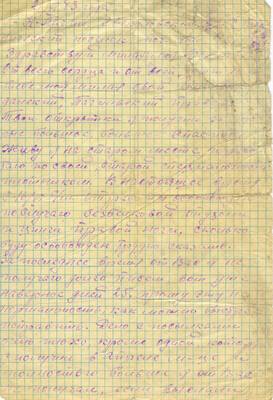
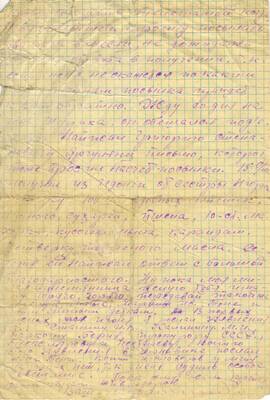
Tsyganov Kornily Andreevich,
* Lucy,
Yargulyants Grigory Stepanovich,
Tsyganov Alexander Andreevich,
Koshkina Anna Andreevna,
Spirina Maria Ivanovna,
Medvedeva Anna Illarionovna,
Tsyganova Antonina Ivanovna,
Stalin Joseph Vissarionovich,
Kalinin Mikhail Ivanovich,
Beria Lavrenty Pavlovich,
Alexandrov,
Pekhterev
1943
Fund 02 (Б-1) / Inventory 1 / Case Цыганов Корнилий Андреевич
43. Letter from K.A. Tsyganov dated June 21, 1943 from Nizhny Tagil, Sverdlovsk Region, to Maria Ivanovna Spirina about his work as a carpenter, about scurvy and a swollen leg, about waiting for a parcel and Shura's arrival, about gratitude for the support of his family, about applications sent for a review of the case and with a request for a parcel of vegetables.
1 лист, 2 изображения, электронная копия
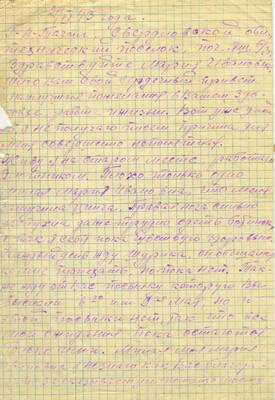
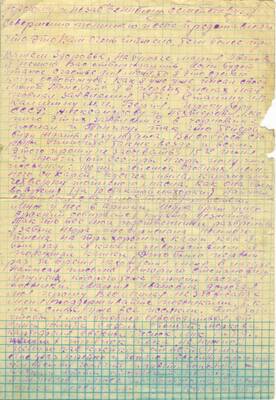
Tsyganov Kornily Andreevich,
Spirina Maria Ivanovna,
Tsyganov Alexander Andreevich,
Tsyganova Antonina Ivanovna,
Stalin Joseph Vissarionovich,
Pekhterev,
Kalinin Mikhail Ivanovich,
Beria Lavrenty Pavlovich,
Alexandrov,
Koshkina Anna Andreevna,
Tsyganov Arseniy Andreevich,
Yargulyants Grigory Stepanovich
1943
Fund 017 (К-1) / Inventory 1 / Case Любин Аркадий Иосифович
48. Extract from the ruling of the Military Collegium of the Supreme Court of the USSR No. 4n-09269/54 dated 08/24/1954 on the review of the case on charges of Kosarev A.V.
3 листа, 3 изображения, ксерокопия рукописной копии



Fund 02 (Б-1) / Inventory 1 / Case Наппельбаум Ида Моисеевна
48. Draft of the publication by E.M. Tsarenkova “Literature under examination... The case of Ida Nappelbaum”, after 1996.
6 листов, 6 изображений, ксерокопия

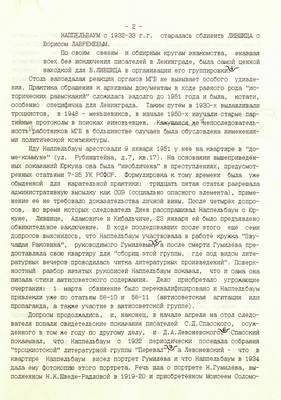




Nappelbaum Ida Moiseevna,
Tsarenkova Ekaterina Mikhailovna,
Dmitrenko Alexey Leonidovich,
Deev Ivan Abramovich,
Yurkun Yuri Ivanovich (Yurkunas Joseph),
Livshits Benedikt Konstantinovich,
Mandelstam Osip Emilievich,
Gumilyov Nikolay Stepanovich,
Barshev Nikolai Valeryanovich,
Spassky Sergey Dmitrievich,
Kaplun Solomon Gitmanovich,
Kibalchich Victor Lvovich (Victor Serge),
Kuzmin Mikhail Alekseevich,
Froman Mikhail Alexandrovich,
Ivanov Georgy Vladimirovich,
Adamovich Georgy Viktorovich,
Lavrenev Boris Andreevich,
Levonevsky Dmitry Anatolyevich,
Shvede-Radlova Nadezhda Konstantinovna,
Nappelbaum Moisey Solomonovich,
Pavlenko Petr Andreevich,
Stavsky Vladimir Petrovich,
Iofe Veniamin Viktorovich,
Maramzin Vladimir Rafailovich,
Ignatiev Semyon Denisovich,
Beria Lavrenty Pavlovich,
Voroshilov Kliment Efremovich,
Morev Gleb Alekseevich,
Grudtsova Olga Moiseevna,
Voronsky Alexander Konstantinovich,
Kochkurov Nikolay Ivanovich (Artem Vesely),
Svetlov Mikhail Arkadevich,
Hungry Mikhail Semenovich,
Zarudin Nikolay Nikolaevich,
Lezhnev-Gorelik Abram Zakharovich,
Tager Elena Mikhailovna,
Yezhov Nikolay Ivanovich,
Nappelbaum Frederica (Federica) Moiseevna
1996
Fund 017 (К-1) / Inventory 1 / Case Любин Аркадий Иосифович
56. The conclusion of the military prosecutor of the department of the GVP in the case of Lyubin A.I. dated 05/24/1956.
4 листа, 4 изображения, ксерокопия рукописной копии


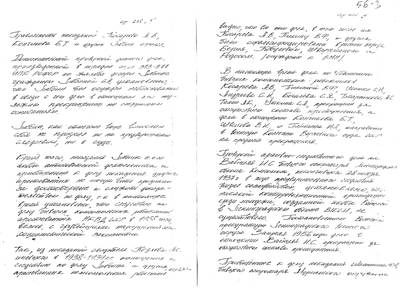

Andreev Sergey Ivanovich,
Artemiev,
Beria Lavrenty Pavlovich,
Vaishlya Joseph Stanislavovich,
Gertsovich Lev Borisovich,
Kobulov Bogdan Zakharovich,
Kozlov Anatoly Sergeevich,
Konchikov Boris Timofeevich,
Konchikov Boris Timofeevich,
Kosarev Alexander Vasilievich,
Lyubin Arkady Iosifovich,
Nasonov, prosecutor,
Paykin Israel Lvovich,
Rhodes Boris Veniaminovich,
Tammy Alexander Karlovich,
Tatarnikov A.S.,
Terekhov Dmitry Pavlovich,
Usenko S.I.,
Utkin Sergey Alekseevich,
Shamonin Fedor Fedorovich,
Shvartsman Lev Leonidovich,
Shvetsov Vsevolod Igorevich
1956
Fund 017 (К-1) / Inventory 1 / Case Любин Аркадий Иосифович
57. Determination of the Military Collegium of the Supreme Court of the USSR dated 08/11/1956 on the annulment of the verdict of the Military Collegium of the Supreme Court dated 02/26/1939 in relation to Lyuba A.I. and dismissal of the case against him.
2 листа, 2 изображения, ксерокопия рукописной копии


Andreev Sergey Ivanovich,
Beria Lavrenty Pavlovich,
Ivanov,
Izmailov,
Kiselev,
Kobulov Bogdan Zakharovich,
Konchikov Boris Timofeevich,
Kosarev Alexander Vasilievich,
Lyubin Arkady Iosifovich,
Paykin Israel Lvovich,
Pikina Valentina Fedorovna,
Rhodes Boris Veniaminovich,
Stepanov,
Shvartsman Lev Leonidovich,
Shvetsov Vsevolod Igorevich
1956
Fund 017 (К-1) / Inventory 1 / Case Крейнович Юрий (Ерухим) Абрамович
058. Statement of Kreinovich Yu.A. dated 07/15/1954 to the Chairman of the Presidium of the Supreme Soviet of the USSR Voroshilov K.E.
18 листов, 18 изображений, ксерокопия, файл (присоединённый)
Beria Lavrenty Pavlovich,
Voroshilov Kliment Efremovich,
Gorky Maxim,
Zhukov Dmitry Petrovich,
Zanin Semyon Fedoseevich,
Karger Nestor Konstantinovich,
Koshkin (Alcor) Yan Petrovich,
Kreinovich Yuri (Eruhim) Abramovich,
Kubersky Vitaly Vasilievich,
Liss,
Luks Karl Janovich,
Mazyuk A. I.,
Marshak Samuil Yakovlevich,
Morgul,
Spiridonov Nikolai Ivanovich (Teki Odulok),
Sukorkin Ivan Stepanovich,
Fedorov, prosecutor,
Chernyakov Zakhary Efimovich,
Chukovsky Nikolai Korneevich,
Shcherba Lev Vladimirovich
1954
Fund 03 (Б-2) / Inventory 1 / Case Нарица Михаил Александрович
59. Article by Naritsa M.A. "Naked Kings", written in 1970, with a preface by his son Naritsa F.M., [after 1995]
15 листов, 15 изображений, машинопись, файл (присоединённый)
Fund 03 (Б-2) / Inventory 1 / Case Сахаров Андрей Дмитриевич
76. Article by Pimenov R.I. “What Andrei Dmitrievich Sakharov was like” about the human rights activities of A.D. Sakharov, published in the section “Chapters from a future book” in the newspaper “Book Review” No. 22 dated 06/01/1990.
1 лист, 1 изображение, газетная/журнальная вырезка

Aikhenvald Yuri Alexandrovich,
Bek Alexander Alfredovich,
Beria Lavrenty Pavlovich,
Hesse Natalia Viktorovna,
Keldysh Mstislav Vsevolodovich,
Kochev Yu.A.,
Malenkov Georgy Maximilianovich,
Malyshev Vyacheslav Alexandrovich,
Maslov Sergey Yurievich,
Medvedev Zhores Alexandrovich,
Medvedev Roy Alexandrovich,
Orlovsky Ernst Semenovich,
Osadchy Mikhail Grigorievich,
Pimenov Revolt Ivanovich,
Prokhorov Alexander Mikhailovich,
Roshchevsky Mikhail Pavlovich,
Sakharov Andrey Dmitrievich,
Tvardovsky Alexander Trifonovich,
Tverdokhlebov Andrey Nikolaevich,
Tendryakov Vladimir Fedorovich,
Trapeznikov Sergey Pavlovich,
Turchin Valentin Fedorovich,
Khariton Julius Borisovich,
Chalidze Valery Nikolaevich,
Shikhanovich Yuri Alexandrovich
1990
Fund 03 (Б-2) / Inventory 1 / Case Сахаров Андрей Дмитриевич
79. Memories of A.D. Sakharov, published in the magazine "Znamya" No. 10, 11, 12 for 1990.
79 листов, 158 изображений, газетная/журнальная вырезка, файл (присоединённый)
* Egor Vasilievich,
* Zinaida Pavlovna,
* Raya,
Avakyan,
Agrest Matest Mendelevich,
Adamsky Viktor Borisovich,
Adzhubey (Khrushcheva) Rada Nikitichna,
Alexandrov Anatoly Petrovich,
Alexandrov Anatoly Sergeevich,
Alexandrovich V.A.,
Alekseeva Liza,
Alikhanov Abram Isaakovich,
Alpert Yakov Lvovich,
Altshuler Lev Vladimirovich,
Amdursky,
Andronikov Irakli Luarsabovich,
Andropov Yuri Vladimirovich,
Arnold Igor Vladimirovich,
Artsimovich Lev Andreevich,
Akhmatova Anna Andreevna,
Babenysheva Marina,
Bavli,
Balashov F.P.,
Bandrovskaya Valentina Vladimirovna,
Barenblatt Grigory Isaakovich,
Barenblatt Isaac Grigorievich,
Bashun Anatoly,
Becker Anna Pavlovna,
Belenky Semyon Zakharovich,
Bellegarde Sergei Konstantinovich,
Beria Lavrenty Pavlovich,
Bernstein Bob,
Bethe Hans Albrecht,
Blokhintsev Dmitry Ivanovich,
Bludov Mikhail Ivanovich,
Boborykin Petr Dmitrievich,
Bogolyubov Nikolai Nikolaevich,
Bonner Elena Georgievna,
Bonner Ruf Grigorievna,
Bor Nils,
Boshyan Gevork Mnatsakanovich,
Brekhovskikh Leonid Maksimovich,
Bronshtein Matvey Petrovich,
Bukovsky Vladimir Konstantinovich,
Bulganin Nikolay Alexandrovich,
Butaeva,
Bukharin Nikolai Ivanovich,
Bykov Konstantin Mikhailovich,
Bane N.P.,
Vavilov Nikolay Ivanovich,
Vavilov Sergey Ivanovich,
Vannikov Boris Lvovich,
Vasilevsky Alexander Mikhailovich,
Veksler Vladimir Iosifovich,
Veresaev (Smidovich) Vikenty Vikentievich,
Witt Alexander Adolfovich,
Vikhirev Alexey Ivanovich,
Vikhireva Zinaida Alekseevna,
Vikhireva Klavdiya Alekseevna,
Vikhireva (Snezhkina) Matryona Alekseevna,
Vishnevsky B.,
Vladimirsky K.V.,
Vlasov Anatoly Alexandrovich,
Volpin (Yesenin-Volpin) Alexander Sergeevich,
Voroshilov Kliment Efremovich,
Vrublevsky,
Vyshinsky Andrey Yanuarievich,
Gavrilov Viktor Yulianovich,
Gagarin Yuri Alekseevich,
Galanskov Yury Timofeevich,
Galich (Ginzburg) Alexander Arkadevich,
Gamov Georgy Antonovich,
Geilikman Boris Tovievich,
Gelfand Israel Moiseevich,
Henry Ernst (Rostovsky Semyon Nikolaevich, Khentov Leonid (Leib) Abramovich),
Georgadze Mikhail Porfirievich,
Gershtein Semyon Solomonovich,
Gessen Elena,
Ginzburg Alexander Ilyich,
Ginzburg Vitaly Lazarevich,
Ginzburg Evgenia Semenovna (Solomonovna),
Gnedin (Gelfand) Evgeny Alexandrovich,
Goldenweiser Alexander Borisovich,
Goldenweiser (Sofiano) Anna Alekseevna,
Goldenweiser Tatyana Borisovna,
Gorkin Alexander Fedorovich,
Gribov Vladimir Naumovich,
Green Ashbel,
Guryanov Pavel,
Davidenko Viktor Alexandrovich,
Dyson Freeman,
Daniel Yuly Markovich,
Dankov S.M.,
Degtyar Mikhail Borisovich,
Dekanozov Vladimir Georgievich,
Dzhelepov Venedikt Petrovich,
Dzerzhinsky Felix Edmundovich,
Dirac Paul Adrien Maurice,
Dmitriev Nikolay Alexandrovich,
Dobrovolsky Alexey Alexandrovich,
Dometti Aglaida Alexandrovna,
Drell Sydney David,
Dubinin Nikolay Petrovich,
Yezhov Nikolay Ivanovich,
Zhdanov Andrey Alexandrovich,
Zhivlyuk Yury Nikolaevich,
Zhukov Georgy Konstantinovich,
Zababakhin Evgeny Ivanovich,
Zavenyagin Avraamy Pavlovich,
Zaitseva Dusya,
Zverev (not a real name),
Zeldovich Yakov Borisovich,
Zubarev Dmitry Nikolaevich,
Zysin Yuri Aronovich,
Ivanov Anatoly Mikhailovich,
Izraileva Rebekka Izrailevna,
Ilyichev Leonid Fedorovich,
Ilyushin Alexey Antonovich,
Ioffe Boris Lazarevich,
Kaganovich Lazar Moiseevich,
Kalugina Faina Petrovna,
Kapitsa Petr Leonidovich,
Kassirsky Iosif Abramovich,
Kaftanov Sergey Vasilievich,
Katsnelson,
Keldysh Mstislav Vsevolodovich,
Kennedy John Fitzgerald,
Kikoin Isaak Konstantinovich (real patronymic Kushelevich),
Kirillin Vladimir Alekseevich,
Kirov Sergey Mironovich,
Kline Edward,
Kletenik D.V.,
Klimov Valentin Nikolaevich,
Kobzarev Igor Yurievich,
Kobulov Bogdan Zakharovich,
Kozlov Boris Nikolaevich,
Kozlov Frol Romanovich,
Kolmogorov Andrei Nikolaevich,
Kompaneets Alexander Solomonovich,
Robert Conquest,
Korolev Sergei Pavlovich,
Korolenko Vladimir Galaktionovich,
Kosygin Alexey Nikolaevich,
Creek Francis,
Kruglov Sergey Nikiforovich,
Kudryavtsev Vsevolod Alexandrovich,
Kudryavtsev Oleg Vsevolodovich,
Kudryavtseva Olga Yakovlevna,
Kuznetsov Viktor Vasilievich,
Kunin Petr Efimovich,
Kurchatov Igor Vasilievich,
Lavrentiev Alexey Lavrentievich,
Lavrentyev Mikhail Alekseevich,
Lakoba Saria Akhmedovna,
Lakoba Nestor Apollonovich,
Landau Lev Davidovich,
Landsberg Grigory Samuilovich,
Lashkova Vera Iosifovna,
Lbov Alexander,
Lebedinsky Alexander Ignatievich,
Leypunsky Ovsey Ilyich,
Lenin (Ulyanov) Vladimir Ilyich,
Leontovich Mikhail Alexandrovich,
Leperovsky,
Lepeshinskaya Olga Borisovna,
Linde Andrey Dmitrievich,
Linde Dmitry Pavlovich,
Lifshits Evgeniy Mikhailovich,
Lifshits Ilya Mikhailovich,
Lurie Richard,
Lysenko Trofim Denisovich,
Lvov Nikolay,
Maksimov Vladimir Emelyanovich (Lev Alekseevich Samsonov),
Malenkov Georgy Maximilianovich,
Malik Yakov Alexandrovich,
Malinovskaya Elena,
Malinovsky Alexander Alexandrovich,
Malov A.N.,
Malov N.N.,
Malyshev Vyacheslav Alexandrovich,
Malyshev F.N.,
Malyshev Fedor Petrovich,
Mandelstam Leonid Isaakovich,
Mandelstam Sergey Leonidovich,
Markish Perets Davidovich,
Markov Moisey Alexandrovich,
Medvedev Zhores Alexandrovich,
Medvedev Roy Alexandrovich,
Merkulov Vsevolod Nikolaevich,
Meshik Pavel Yakovlevich,
Meshcheryakov Mikhail Grigorievich,
Migdal Arkady Beinusovich (Benediktovich).,
Mikoyan Anastas Ivanovich (Ovanesovich),
Mitin Mark Borisovich,
Mitkevich Vladimir Fedorovich,
Mikhalkov Sergey Vladimirovich,
Mikhoels Solomon Mikhailovich,
Mlodzeevsky Anatoly Boleslavovich,
Moiseev Nikolay Dmitrievich,
Molotov Vyacheslav Mikhailovich,
Moskalenko Kirill Semyonovich,
Muzrukov Boris Glebovich,
Negin Evgeniy Arkadevich,
Nedelin Mitrofan Ivanovich,
Nemirovskaya Alexandra (Shurochka),
Nemirovsky Pavel Emmanuilovich,
Nesmeyanov Alexander Nikolaevich,
Nikolsky Mikhail Konstantinovich,
Novikov Ivan Kuzmich,
Norden Alexander Petrovich,
Nuzhdin Nikolay Ivanovich,
Obolensky Valerian Valerianovich,
Obukhov Alexander Mikhailovich,
Okun Lev Borisovich,
Olshansky Mikhail Alexandrovich,
Oparin Alexander Ivanovich,
Oppenheimer Robert,
Orlov Yuri,
Pablo Neruda (birth name: Ricardo Eliaser Neftali Reyes Basoalto),
Pavlov Nikolay Ivanovich,
Pavsha I.V.,
Penkovsky Oleg Vladimirovich,
Pervukhin Mikhail Georgievich,
Pereverzev Dmitry Semenovich,
Perelman Yakov Isidorovich,
Petrovsky Boris Vasilievich,
Plevako Fedor Nikiforovich,
Plisetskaya Maya Mikhailovna,
Plyushch Alexander Lvovich,
Pomeranchuk Isaac Yakovlevich,
Ponomarev Leonid Ivanovich,
Predvoditelev Alexander Savvich,
Protopopov A.N.,
Pumper,
Rabinovich Adolf Iosifovich,
Rabinovich Evsey Markovich,
Rabinovich Matvey Samsonovich,
Radek Sofya Karlovna,
Rakobolskaya Irina Vyacheslavovna,
Ribbentrop Joachim von,
Rokotov Yan Timofeevich,
Romanov Yuri Alexandrovich,
Rothman Tony,
Rudanovsky,
Rumer Yuri Borisovich,
Sahakyan Gurgen Serobovich,
Savishchev (Savushchev?) Konstantin,
Sakata Shoichi,
Samoilov Boris Nikolaevich,
Sarkisov Gaek (Gennady) Bogdanovich,
Sakharov Andrey Dmitrievich,
Sakharov Dmitry Andreevich,
Sakharov Dmitry Ivanovich,
Sakharov Ivan Ivanovich,
Sakharov Ivan Ivanovich,
Sakharov Ivan Nikolaevich,
Sakharov Mikhail Ivanovich,
Sakharov Nikolai Ivanovich,
Sakharov Nikolai Ivanovich,
Sakharov Sergey Ivanovich,
Sakharov Yuri Ivanovich,
Sakharova (Domukhovskaya) Maria Petrovna,
Sakharova Ekaterina Ivanovna,
Sakharova Ekaterina Ivanovna,
Sakharova Irina Nikolaevna,
Sakharova Lyubov Andreevna,
Sakharova (Oliger) Evgenia Alexandrovna,
Sakharova (Sofiano) Ekaterina Alekseevna,
Sakharova Tatyana Andreevna,
Svetlichny Ivan Alekseevich,
Sedov Leonid Ivanovich,
Semenov Alexey Ivanovich,
Semichastny Vladimir Efimovich,
Sergievsky,
Szilard (Szilard) Leo,
Sinai Yakov Grigorievich,
Sinyavsky Andrey Donatovich (Abram Tertz),
Skryabin Alexander Nikolaevich,
Skubur Ekaterina,
Slavsky Efim Pavlovich,
Smagin Boris,
Smirnov Leonid Vasilievich,
Snegov Alexey Vladimirovich (Iosif Izrailevich Falikzon),
Sofiano Alexey Semenovich,
Sofiano Vladimir Alekseevich,
Sofiano Evgeniy Vladimirovich,
Sofiano Konstantin Alekseevich,
Sofiano (Mukhanova) Zinaida Evgrafovna,
Sofiano Tatyana Alekseevna,
Sofronitsky Vladimir Vladimirovich,
Spivak Grigory Veniaminovich,
Stalin Joseph Vissarionovich,
Suslov Mikhail Andreevich,
Takibaev Zhabaga Suleimenovich,
Taksar Tamara,
Tamm Igor Evgenievich,
Teller Edward,
Ter-Martirosyan,
Timashuk Lidiya Feodosyevna,
Timiryazev Arkady Klimentievich,
Timofeev-Resovsky (Ressovsky) Nikolai Vladimirovich,
Titov German Stepanovich,
Tikhonov Andrey Nikolaevich,
Truman Harry,
Trutnev Yuri Alekseevich,
Tupolev Andrey Nikolaevich,
Tyutin Igor Viktorovich,
Umansky Grisha,
Watson James,
Ustinov Dmitry Fedorovich,
Fabrikant Valentin Aleksandrovich,
Faybishenko Vladislav,
Farge Yves,
Fedorov Evgeniy Konstantinovich,
Feinberg Evgeny Lvovich,
Feynman Richard Phillips,
Feldman Elena,
Feodoritov Vyacheslav Petrovich,
Feoktistov Lev Petrovich,
Fishman David Abramovich,
Fomin Petr Fomich,
Fradkin Efim Samoilovich,
Frank-Kamenetsky David Albertovich,
Fuchs Emil Julius Klaus (Klaus Fuchs),
Fursov Vasily Stepanovich,
Khariton Julius Borisovich,
Khaustov Viktor Alexandrovich,
Holloway David,
Khriplovich Iosif Bentsionovich,
Khrushchev Nikita Sergeevich,
Zeitlin Yakov,
Zinger Alexander Vasilievich,
Tsirkov Georgy Alexandrovich,
Tsukerman Veniamin Aronovich,
Chavchanidze Vladimir Valerianovich,
Churchill Winston,
Chesnokov Dmitry Ivanovich,
Shabat Boris Vladimirovich,
Shalnikov Alexander Iosifovich,
Shapiro Zorya Yakovlevna,
Shaskolskaya Marianna Petrovna,
Shafarevich Igor Rostislavovich,
Schweitzer Albert,
Schweitzer Mikhail Abramovich,
Shelkov Vladimir Andreevich,
Shepilov Dmitry Trofimovich,
Shirkov Dmitry Vasilievich,
Shirshov,
Shklovsky Iosif Samuilovich,
Sholokhov Mikhail Alexandrovich,
Shpolsky E.V.,
Shubin Semyon Petrovich,
Shuiskaya Natalia Vasilievna,
Shchelkin Kirill Ivanovich,
Shcherbakov Alexander Sergeevich,
Eisenhower Dwight David,
Eikhe Robert Indrikovic,
Elsgolts Lev Ernestovich,
Engelhardt Vladimir Alexandrovich,
Erenburg Ilya Grigorievich,
Yukawa Hideki,
Yavlinsky,
Yaglom Akiva Moiseevich,
Yaglom Isaac Moiseevich,
Yagoda Genrikh Grigorievich,
Yakir Petr Ionovich,
Yakovlev Alexander Sergeevich,
Yakovlev Dmitry,
Yakushkin Nikolay Vyacheslavovich,
Yankelevich Efrem Vladimirovich,
Yasnov Mikhail Alekseevich
1990
Fund 03 (Б-2) / Inventory 1 / Case Гамсахурдия Звиад Константинович
114. Message “The day jail torturer realed all” dated 02.11.1975 with the text of an article by Shawcross W. and P. Raddway from the Sunday Times newspaper about the political system in Georgia after the death of Stalin and about torture applied to prisoners, in English.
2 листа, 2 изображения, газетная/журнальная вырезка


Andropov Yuri Vladimirovich,
Beria Lavrenty Pavlovich,
Gabunia Mikhail,
Gamsakhurdia Zviad Konstantinovich,
Gersania T.V.,
Inauri Alexey Nikolaevich,
Ismailov (Ismailov) N. U.,
Kardava V.T.,
Mamulov S.,
Medvedev Roy Alexandrovich,
Mzhavanadze Vasily Pavlovich,
Reddaway (Reddaway or Reddaway) Peter Bryan,
Sakharov Andrey Dmitrievich,
Stalin Joseph Vissarionovich,
Skhirtladze,
Usupyan Valiko,
Frolov,
Tsirekidze Yury Grigorievich,
Tsulaya Karlo Kalistratovich,
Shevardnadze Eduard Amvrosievich,
Shawcross William
1975
Fund 03 (Б-2) / Inventory 10 / Case Дело по обвинению Молоствова М.М., Козлова Е.А., Солохина Н.Д. и Гаранина Л.Я., т. 1
128. Minutes of the court session of the Judicial Collegium for Criminal Cases of the Leningrad City Court dated October 15-21, 1958 in the case of Molostov M.M., Solokhin N.D., Kozlov E.A. and Garanina L.Ya. Case sheets 330-469. (attached file)
281 лист, 281 изображение, ксерокопия рукописи
Demidov,
Kurochkin A.,
Lepkovskaya E.,
Levidova Yu.A.,
Vlasov I.G.,
Kugel Emma Lvovna,
Basmanov N.S.,
Trosnov V.F.,
Alekseev,
Molostov Mikhail Mikhailovich,
Solokhin Nikolay Dmitrievich,
Garanin Leonty Yakovlevich,
Kozlov Evgeny Andreevich,
Molostova (Muzhdaba) Margarita Mustafievna,
Fadeeva Tatyana Fedorovna,
Vorchenko Lyudmila Vadimovna,
Sherdakov Vladislav Nikolaevich,
Tersintsev Yury Pavlovich,
Alemaskin Mikhail Alekseevich,
Kolyasnikov Ivan Nikolaevich,
Skvortsov Mikhail Evdokimovich,
Belykh Okat Alekseevich,
Komarov Victor Dmitrievich,
Skrypneva Natalya Nikolaevna,
Tugarinov Vasily Petrovich,
Lenin (Ulyanov) Vladimir Ilyich,
Khrushchev Nikita Sergeevich,
Sokolova Elena Yurievna, Leningrad State University,
Boriskin Vladimir Matveevich,
Molotov Vyacheslav Mikhailovich,
Kaganovich Lazar Moiseevich,
Stalin Joseph Vissarionovich,
Mikoyan Anastas Ivanovich (Ovanesovich),
Gomułka Władysław (Polish: Władysław Gomułka),
Tito Broz Josip,
Beria Lavrenty Pavlovich,
Dudintsev Vladimir Dmitrievich,
Ushatskaya Inessa Avksentievna,
Solokhina Nina Nikolaevna,
Pimenov Revolt Ivanovich,
Trofimov Viktor Ivanovich,
Gidoni Alexander Grigorievich,
Bernadsky Sergey Viktorovich,
Rodionov Nikolai Nikolaevich,
Drozd John Mikhailovich,
Yangutov Robert Semenovich,
Fidarov Marklen Soslanbekovich,
Kudelina Antonina Mikhailovna,
Malenkov Georgy Maximilianovich,
Grishin Viktor Vasilievich,
Trotsky Lev Davidovich,
Shaposhnikov,
Serebryakov Mikhail Vasilievich,
Plekhanov Georgy Valentinovich,
Kozlova Maria Prokhorovna,
Ereshkin Valentin Vasilievich
1958
Documents
Link copied to clipboard
